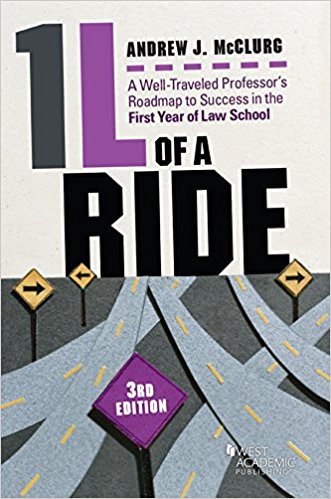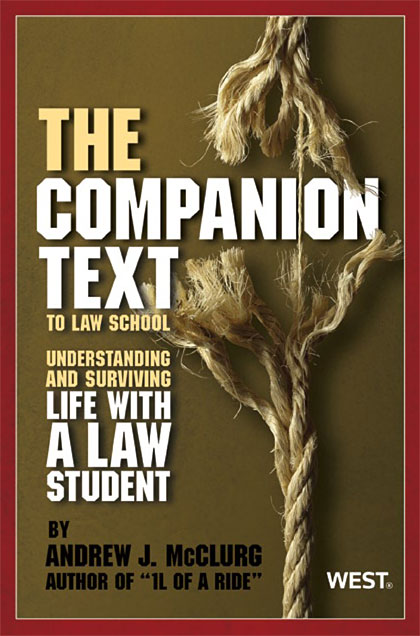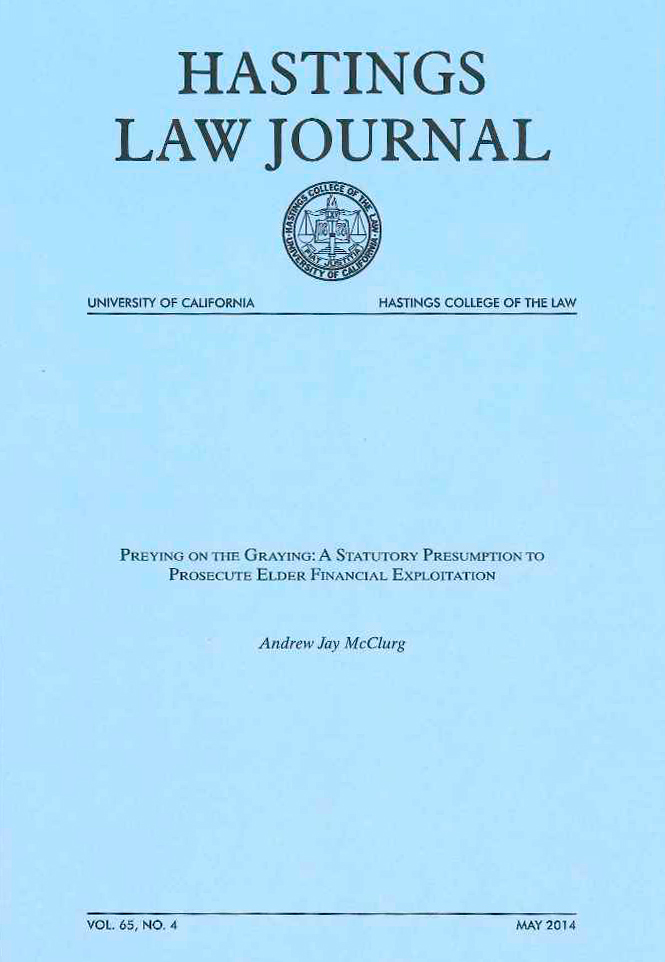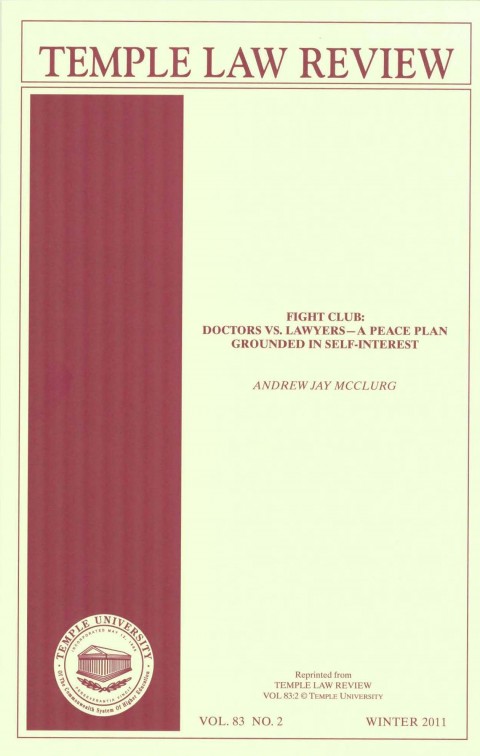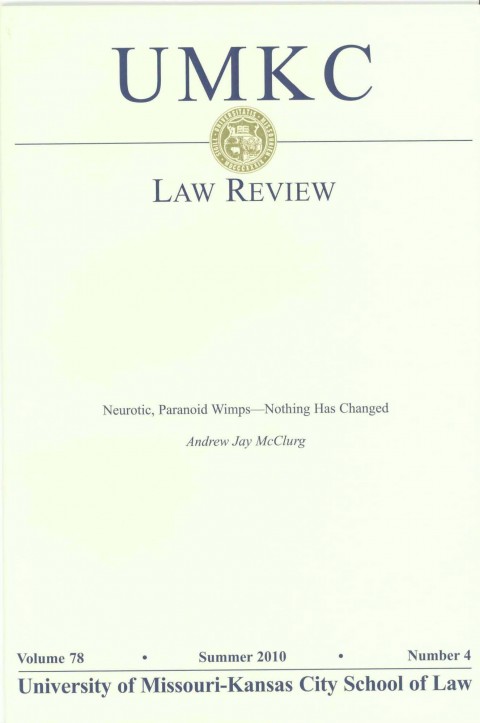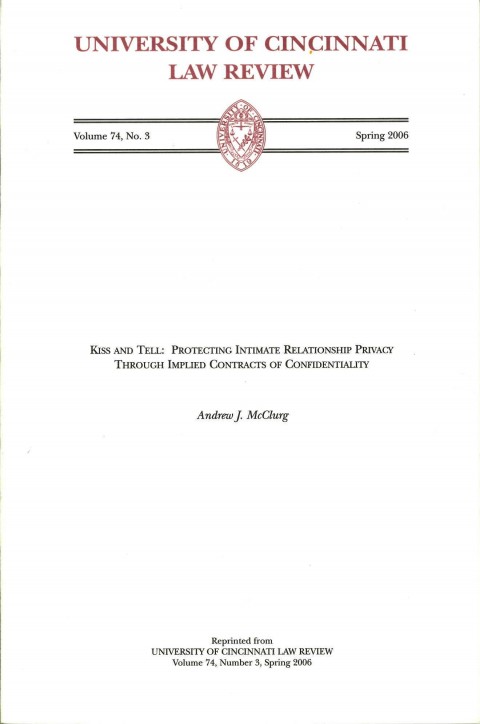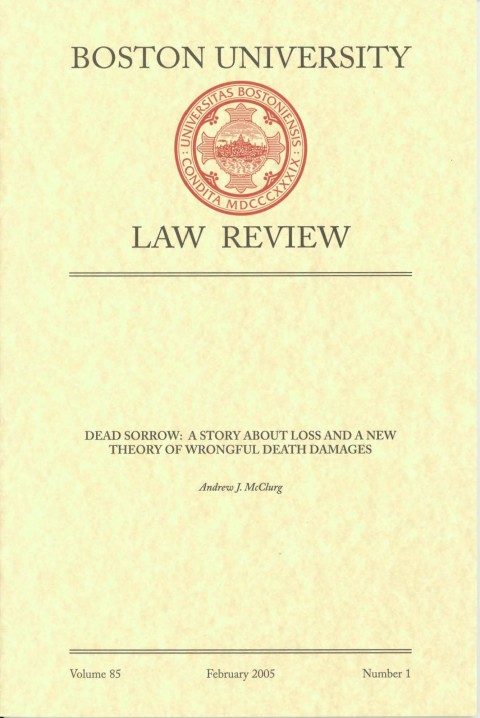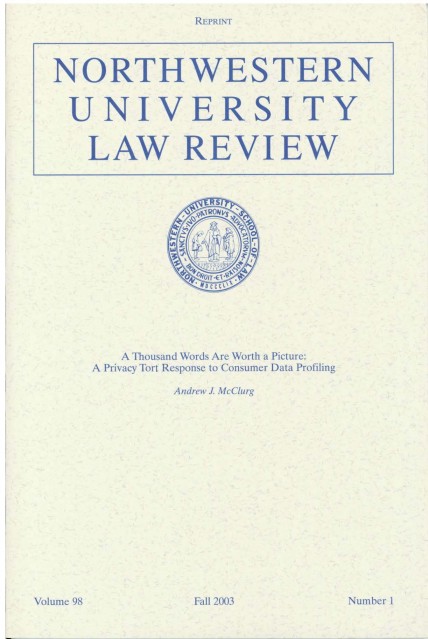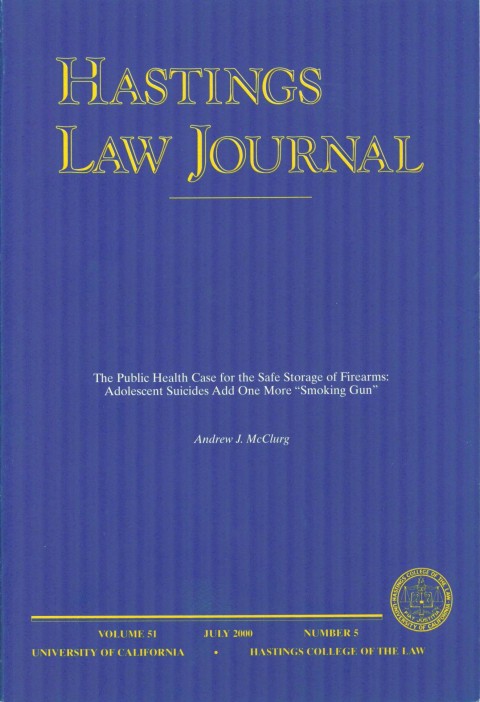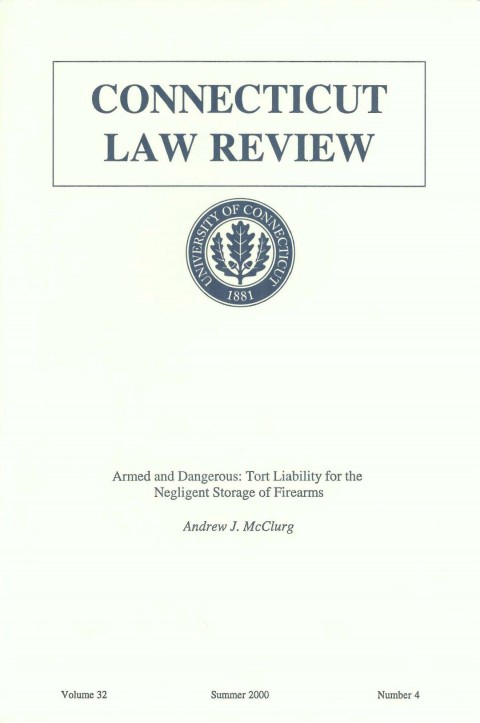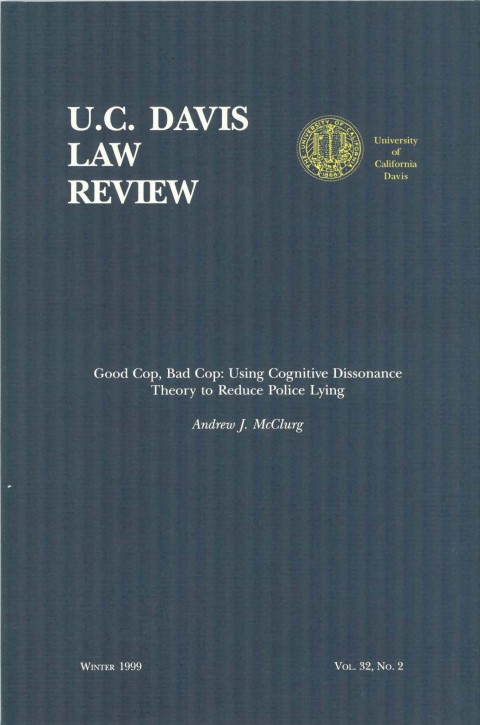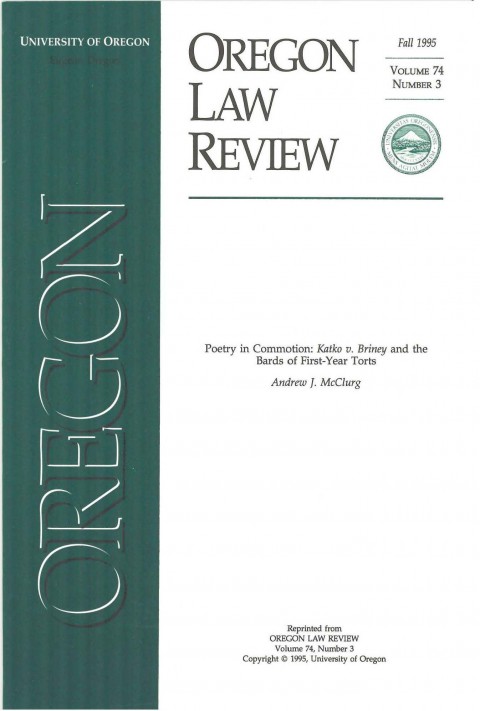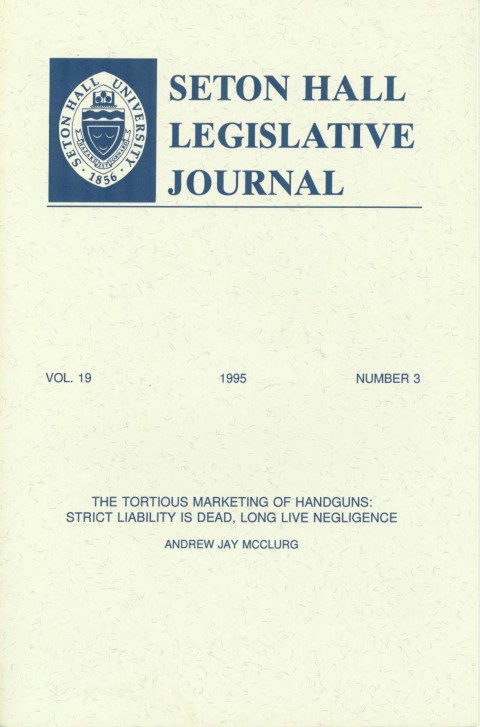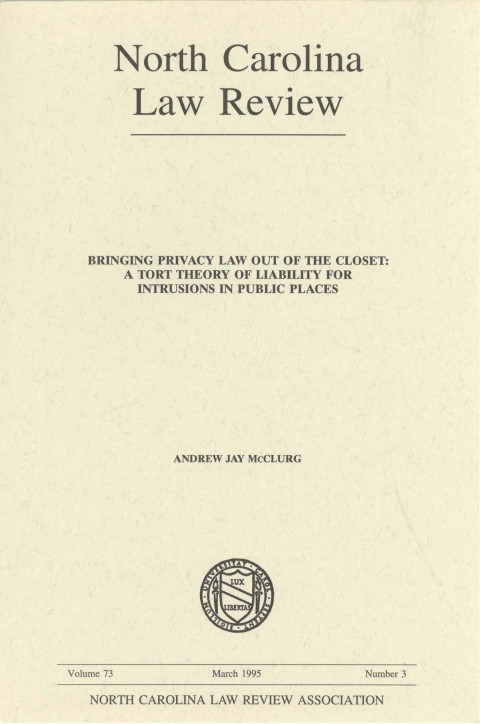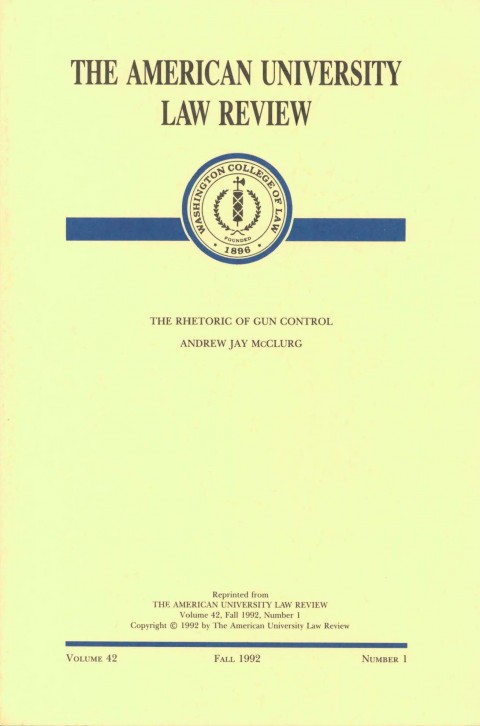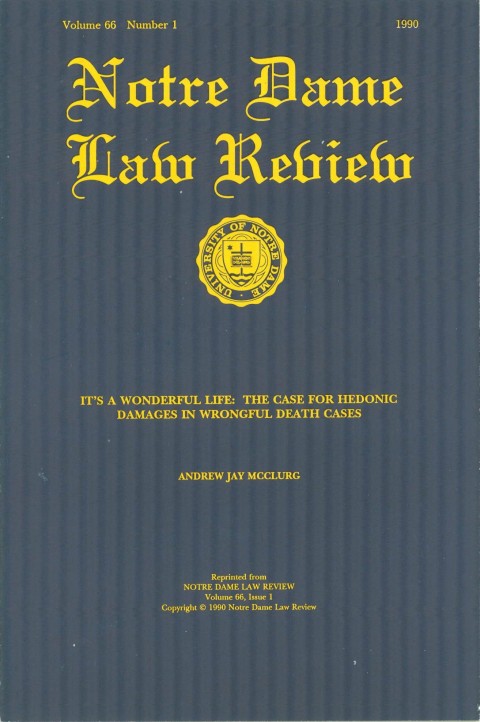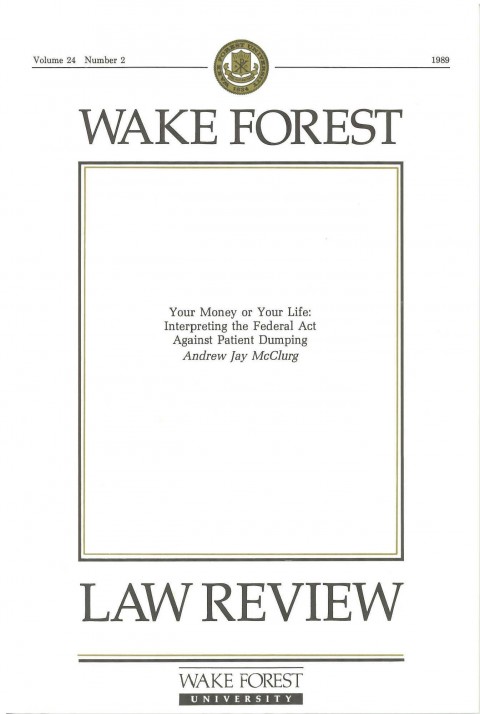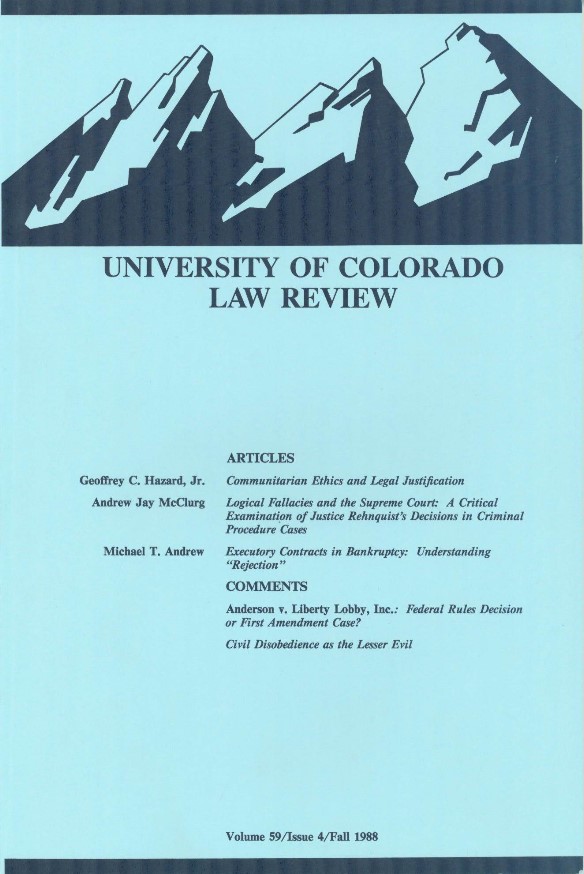August 20th, 2017 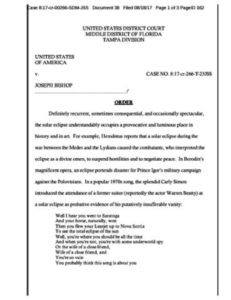 U.S. District Judge Steven “Not So” Merryday denied an Assistant U.S. Attorney’s (AUSA) motion to delay a trial because a witness employed by the Bureau of Alcohol, Tobacco, Firearms and Explosives (ATF) had prepaid for a trip to view the August 21, 2017 solar eclipse in totality. U.S. District Judge Steven “Not So” Merryday denied an Assistant U.S. Attorney’s (AUSA) motion to delay a trial because a witness employed by the Bureau of Alcohol, Tobacco, Firearms and Explosives (ATF) had prepaid for a trip to view the August 21, 2017 solar eclipse in totality.
The court reasoned that the delay would “subordinate the time and resources of the court … to one person’s aspiration to view a ‘total’ solar eclipse for no more than two minutes and forty-two seconds.”
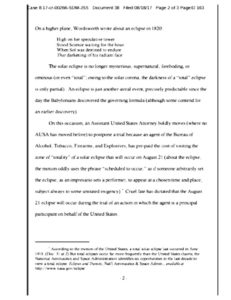 Can’t take issue with the result, but instead of just saying that, the magistrate–perhaps seeking his own two minutes and forty-two seconds of fame–penned a silly too-cute-for-words order built around Carly Simon’s 1972 hit “You’re So Vain.” Can’t take issue with the result, but instead of just saying that, the magistrate–perhaps seeking his own two minutes and forty-two seconds of fame–penned a silly too-cute-for-words order built around Carly Simon’s 1972 hit “You’re So Vain.”
You may recall that Simon’s anonymous, self-absorbed antagonist (suspected to be Warren Beatty) “flew [his] Learjet up to Nova Scotia to see the total eclipse of the sun.” (Speculation has it that Carly was referring to the 1970 total eclipse that was viewable along the East Coast of the United States).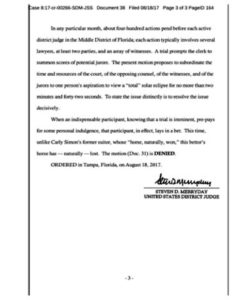
In his order denying the motion to postpone, Judge Merryday mocked the AUSA who filed the motion for “boldly mov[ing] … where no AUSA has moved before” and for “oddly” describing the eclipse “‘scheduled to occur,’ as if someone arbitrarily set the eclipse, as an impresario sets a performer to appear at a chosen time and place.”
He unnecessarily ridiculed the witness for his prepaid “personal indulgence,” again invoking the Carly Simon song, which featured this line immediately preceding “the total eclipse of the sun” line: “Well I hear you went to Saratoga, and your horse naturally won.”
When an indispensable participant, knowing that a trial is imminent, pre-pays for some personal indulgence, that participant, in effect, lays in a bet. This time, unlike Carly Simon’s former suitor, whose “horse, naturally won,” this bettor’s horse has–naturally–lost.
Meanwhile, he diminished the significance of a total solar eclipse as “just another astral event.” The rare August 21 total eclipse will be the first to travel from coast to coast within the United States in nearly 100 years.
–Order, United States v. Joseph Bishop, U.S. District Court, Middle District of Florida, Tampa Div., Case No. 8:17-cr-266-T-23JSS (Aug. 18, 2017) (Thanks to David Barman.)
May 18th, 2015  Stock photo – Not the real guy. Leave it to insurance coverage guru/legal humorist Randy Maniloff to track down the most interesting cases for his monthly publication, Coverage Opinions. Among this month’s excellent articles (which include a mock interview with Tom Brady), Randy revisits his insurance Coverage for Dummies contest with the case of Blank-Greer v. Tannerite Sports, LLC, No. 13-1266 (N.D. Ohio Apr. 21, 2015).
Here are the basic facts, borrowed from Randy’s excerpts from the court’s opinion:
In May 2012, [James] Yaney’s friend, Jason Vantilburg, in anticipation of the birth of his first child, asked Yaney to host a party to celebrate. Yaney and Vantilburg fashioned the party into a ‘diaper shootout,’ where guests could bring diapers for the new baby and enjoy an afternoon shooting guns in Yaney’s backyard. As a ‘grand finale’ to the party, they also decided to blow up an old refrigerator.
In preparation, Yaney used his [Yaney] Motorsports truck to haul the refrigerator from Vantilburg’s home to his property. He then used his trailer to tow a box van to his backyard so that guests had a target to shoot. On the day of the event, Yaney set up the Motorsports truck and trailer as a staging area for guns and ammunition. ***
Towards the end of the event, Yaney and Vantilburg decided it was time to blow up the refrigerator. They hauled the refrigerator from Yaney’s pole barn into the backyard. Guests stood behind tables fifty meters away from where the refrigerator was located. Vantilburg moved into position behind his rifle, fired at the explosives [H2] inside the refrigerator, and detonated them. The refrigerator immediately blew apart and sent shrapnel flying across the yard. A piece of shrapnel hit (guest) Plank–Greer’s hand, nearly severing it.
Read Randy’s full account of the case, which addressed the issue of whether the party host was acting in the scope of employment with respect to insurance coverage from his business. The court said no.
–Blank-Greer v. Tannerite Sports, LLC, No. 13-1266 (N.D. Ohio Apr. 21, 2015)
January 9th, 2015  Don’t think for a minute that Canadian judges can’t keep up with American judges when it comes to Strange Judicial Opinions. Wild and crazy judicial happenings in Canada are here, here and here. Don’t think for a minute that Canadian judges can’t keep up with American judges when it comes to Strange Judicial Opinions. Wild and crazy judicial happenings in Canada are here, here and here.
Now comes a new hit TV series, I mean, an order in a divorce case, entered by Superior Court Justice Pazaratz, where the court analogized the parties’ ugly divorce to the hit television show, Breaking Bad. Excerpts from the order include:
1. Breaking Bad, meet Breaking Bad Parents.
2. The former is an acclaimed fictional TV show whose title needed a bit of explaining: “BREAKING BAD: A southern U.S. expression for when a good person suddenly loses their moral compass and starts doing bad things”.
3. The latter is a sad reality show playing out in family courts across the country. “BREAKING BAD PARENTS: When smart, loving, caring, sensible mothers and fathers suddenly lose their parental judgment and embark on relentless, nasty litigation; oblivious to the impact on their children”.
4. SPOILER ALERT: The main characters in both of these tragedies end up pretty much the same: Miserable. Financially ruined. And worst of all, hurting the children they claimed they were protecting.
5. To prolong the tortured metaphor only slightly, the “urgent” motion before me might be regarded as this family’s pilot episode. Will these parents sign up for the permanent cast of Breaking Bad Parents? Will they become regulars in our family court building, recognizable by face and disposition? Or will they come to their senses; salvage their lives, dignity (and finances); and give their children the truly priceless gifts of maturity and permission to love.
6. Stay tuned.
[The court proceeds to recount the parties’ inability to work together, accusations and counter-accusations, and their deadlock in trying to reach a custody sharing arrangement. The Court decides on a reasonable arrangement before wrapping things up.]
36. One final comment:
37. I hope I didn’t offend the parties with my Breaking Bad Parents analogy. They’re not bad parents. Yet.
38. Mainly, I was trying to give both parties a sobering warning: Stop!
39. Stop being nasty.
40. Stop jockeying for position.
41. Stop playing hardball.
42. Stop acting like you hate your ex more than you love your children.
All good advice, Justice Pazaratz, but you’ve just ruined the potential for the TV series.
–Coe v. Tope, Case No. 2839/14, Ontario Superior Court of Justice (July 3, 2014). Thanks to whoever sent this along. We lost track of the original email. Let us hear from you!
August 14th, 2013  A litigation strategy the judge thought went too boldly beyond … In an order littered with Star Trek references, a litigation strategy involving obtaining the copyright to pornographic movies and then suing people for illegally downloading them irked U.S. District Judge Otis D. Wright (C.D. Cal.) to the extent that he levied hefty sanctions against those involved in various misdeeds.
According to Judge Wright, the plaintiffs had outmaneuvered the legal system:
They’ve discovered the nexus of antiquated copyright laws, paralyzing social stigma, and unaffordable defense costs. And they exploit this anomaly by accusing individuals of illegally downloading a single pornographic video. Then they offer to settle—for a sum calculated to be just below the cost of a bare-bones defense. For these individuals, resistance is futile; most reluctantly pay rather than have their names associated with illegally downloading porn. So now, copyright laws originally designed to compensate starving artists allow, starving attorneys in this electronic-media era to plunder the citizenry.
The following findings of fact flesh out the situation a bit more:
2. AF Holdings and Ingenuity 13 have no assets other than several copyrights to pornographic movies. There are no official owners or officers for these two offshore entities, but the Principals are the de facto owners and officers.
3. The Principals started their copyright-enforcement crusade in about 2010, through Prenda Law, which was also owned and controlled by the Principals. Their litigation strategy consisted of monitoring BitTorrent download activity of their copyrighted pornographic movies, recording IP addresses of the computers downloading the movies, filing suit in federal court to subpoena Internet Service Providers (“ISPs”) for the identity of the subscribers to these IP addresses, and sending cease-and-desist letters to the subscribers, offering to settle each copyright infringement claim for about $4,000.
4. This nationwide strategy was highly successful because of statutory copyright damages, the pornographic subject matter, and the high cost of litigation. Most defendants settled with the Principals, resulting in proceeds of millions of dollars due to the numerosity of defendants.
An apparent Star Trek fan, Judge Wright began his order imposing sanctions by quoting Spock from Star Trek II: The Wrath of Khan: “The needs of the many outweigh the needs of the few.”
Not sure of the exact relevance of this quotation. Was he referring to the needs of the many for illegally downloaded porn?
He continued mining the Star Trek vein at various parts of the order, stating, for example, that “though Plaintiffs boldly probe the outskirts of law, the only enterprise they resemble is RICO. The federal agency eleven decks up is familiar with their prime directive and will gladly refit them for their next voyage” and “[i]t was when the Court realized Plaintiffs engaged their cloak of shell companies and fraud that the Court went to battlestations.”
Order Issuing Sanctions, Ingenuity 13 LLC v. John Doe, Case No. 2:12-cv-8333-ODW(JCx), May 6, 2013, U.S. District Ct., Central District of California. Thanks to Michael Kong.
May 26th, 2013  Federal judge a fan of this venerable exotic dancer. Chief U.S. District Court Judge Fred Biery, W.D. Tex, had a great time writing a preliminary injunction order in a case in which the City of San Antonio passed an ordinance regulating topless dancers, including requiring them to wear more clothes. How much fun did he have? The title of the order gives a good clue:
“The Case of the Itsy Bitsy Teeny Weeny Bikini Top v. The (More) Itsy Bitsy Teeny Weeny Pastie,” with a footnote to—you guessed it—the novelty hit, Itsy Bitsy Teeny Weeny Yellow Polka Dot Bikini (Knapp Records 1960). The order is a combination of lame sexually oriented wordplay and thoughtful analysis. Here are two sample paragraphs of the former (underline added):
An ordinance dealing with semi-nude dancers has once again fallen on the Court’s lap. The City of San Antonio (“City”) wants exotic dancers employed by Plaintiffs to wear larger pieces of fabric to cover more of the female breast. Thus, the age old question before the Court, now with constitutional implications, is: Does size matter?
The Court infers Plaintiffs fear enforcement of the ordinance would strip them of their Profits, adversely impacting their bottom line. Conversely, the City asserts these businesses contribute to reduced property values, violent crime, increased drug sales, prostitution and other sex crimes, and therefore need to be girdled more tightly. Plaintiffs, and by extension their customers, seek an erection of a constitutional wall separating themselves from the regulatory power of City government.
The order then veers into hyper-weirdland, explaining that while no amicus curiae briefs had been filed, the court had the benefit of input from volunteer “curious amigos” who performed on-site inspections. Judge Biery advises the volunteers “they would have enjoyed far more the sight of Miss Wiggles, truly an exotic artist of physical self expression even into her eighties, when she performed fully clothed in the 1960s at San Antonio’s Eastwood Country Club.” He even includes a picture of Miss Wiggles. Er, thanks for that, Judge.
Things settle down at that point with an analysis of the request for preliminary injunction by the plaintiff club owners, pitting the government’s interests in reducing crime and protecting property values against the First Amendment. Under the law, the club owners can get a license and let their dancers wear pasties or operate without a license and make them wear bikini tops.
Judge Biery wasn’t convinced female breasts were the cause of the government’s asserted ills, saying he “doubts several square inches of fabric will stanch the flow of violence and other secondary effects emanating from these businesses” and speculating that “[a]lcohol, drugs, testosterone, guns and knives are more likely the causative agents.”
But he denied the preliminary injunction because the law does not require the government to prove causation in this instance, ending with more provocative wordplay (“Should the parties choose to string this case out to trial on the merits, the court encourages reasonable discovery intercourse as they navigate the peaks and valleys of litigation, perhaps to reach a happy ending.”)
(Postscript: A student sent me this, but many other sources have publicized this order, including Above the Law and the ABA Journal.)
—35 Bar and Grille v San Antonio, 35 Bar & Grille, LLC, et al. v. City of San Antonio, Civil Action No. SA-13-CA34-FB (W.D. Tex., Apr. 29, 2013) (Biery, J.)
October 26th, 2012  In this Halloween-themed case, the plaintiff bought a house, only to learn that it had a reputation in the Village of Nyack, NY, for being possessed by poltergeists, a reputation built in large part on the seller’s previous efforts to promote the house as haunted, which were unknown to plaintiff. On learning of the alleged haunting, plaintiff sued for rescission of the sale contract. In this Halloween-themed case, the plaintiff bought a house, only to learn that it had a reputation in the Village of Nyack, NY, for being possessed by poltergeists, a reputation built in large part on the seller’s previous efforts to promote the house as haunted, which were unknown to plaintiff. On learning of the alleged haunting, plaintiff sued for rescission of the sale contract.
The New York Supreme Court, Appellate Division, over one dissent, ruled for the plaintiff, going against the usual rule in New York of strict caveat emptor (let the buyer beware), which imposed no duty on house sellers to disclose even known defects. Based on the seller’s previous assertions that the house was haunted, the court said the seller was estopped from claiming otherwise and that the house was haunted “as a matter of law.”
So New York property owners take note: there is no duty to report collapsing roofs, faulty foundations, or termite infestations, but, after this opinion, suspected poltergeist infestations must be disclosed. (The case was decided in 1991; New York may have modified its caveat emptor rule since then.)
We’ll let the court–per Judge Rubin–unravel this hair-raiser. Turn the lights low, cuddle up, and prepare for the one and only judicial ghost story, a classic tale of a stranger arriving in a town where things aren’t quite what they seem. [Cue spooky music]:
The unusual facts of this case … clearly warrant a grant of equitable relief to the buyer who, as a resident of New York City, cannot be expected to have any familiarity with the folklore of the Village of Nyack. Not being a “local,” plaintiff could not readily learn that the home he had contracted to purchase is haunted.
Whether the source of the spectral apparitions seen by defendant seller are parapsychic or psychogenic, having reported their presence in both a national publication (“Readers’ Digest”) and the local press …, defendant is estopped to deny their existence and, as a matter of law, the house is haunted.
More to the point, however, no divination is required to conclude that it is defendant’s promotional efforts in publicizing her close encounters with these spirits which fostered the home’s reputation in the community. In 1989, the house was included in a five-home walking tour of Nyack and described in a November 27th newspaper article as “a riverfront Victorian (with ghost).” The impact of the reputation thus created goes to the very essence of the bargain between the parties, greatly impairing both the value of the property and its potential for resale. ….
While I agree… that the real estate broker, as agent for the seller, is under no duty to disclose to a potential buyer the phantasmal reputation of the premises and that, in his pursuit of a legal remedy for fraudulent misrepresentation against the seller, plaintiff hasn’t a ghost of a chance, I am nevertheless moved by the spirit of equity to allow the buyer to seek rescission of the contract of sale and recovery of his down payment.
New York law fails to recognize any remedy for damages incurred as a result of the seller’s mere silence, applying instead the strict rule of caveat emptor. Therefore, the theoretical basis for granting relief, even under the extraordinary facts of this case, is elusive if not ephemeral.
“Pity me not but lend thy serious hearing to what I shall unfold” (William Shakespeare, Hamlet, Act I, Scene V [Ghost] ).
From the perspective of a person in the position of plaintiff herein, a very practical problem arises with respect to the discovery of a paranormal phenomenon: “Who you gonna’ call?” as the title song to the movie “Ghostbusters” asks. Applying the strict rule of caveat emptor to a contract involving a house possessed by poltergeists conjures up visions of a psychic or medium routinely accompanying the structural engineer and Terminix man on an inspection of every home subject to a contract of sale.
It portends that the prudent attorney will establish an escrow account lest the subject of the transaction come back to haunt him and his client–or pray that his malpractice insurance coverage extends to supernatural disasters.
In the interest of avoiding such untenable consequences, the notion that a haunting is a condition which can and should be ascertained upon reasonable inspection of the premises is a hobgoblin which should be exorcised from the body of legal precedent and laid quietly to rest.
The court detailed New York’s strict caveat emptor rule, but ultimately couldn’t stomach the fact that it was the defendant who, in effect, created the defect by broadcasting the house’s haunted status, thereby impairing its value:
In the case at bar, defendant seller deliberately fostered the public belief that her home was possessed. … Where, as here, the seller not only takes unfair advantage of the buyer’s ignorance but has created and perpetuated a condition about which he is unlikely to even inquire, enforcement of the contract (in whole or in part) is offensive to the court’s sense of equity. Application of the remedy of rescission, within the bounds of the narrow exception to the doctrine of caveat emptor set forth herein, is entirely appropriate to relieve the unwitting purchaser from the consequences of a most unnatural bargain.
The dissenting judge wanted to stick with the caveat emptor rule, stating that “if the doctrine of caveat emptor is to be discarded, it should be for a reason more substantive than a poltergeist.”
–Stambovsky v. Ackley,169 A.D.2d 254 (N.Y. Sup. Ct. 1991)
October 4th, 2012 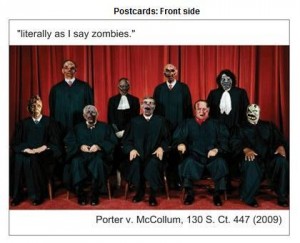 Good news for legally inclined zombie lovers. Joshua Warren has compiled a casebook on Zombie Law that “include[s] case opinions from the over 300 U.S. Federal Court opinions with the word “zombie” (and “zombies”, “zombi”, “zombis”, “zombified”, “zombism”, etc..).” These include cases from the zombified Supreme Court (available as postcards, along with zombie law teeshirts and zombie flashdrives). Good news for legally inclined zombie lovers. Joshua Warren has compiled a casebook on Zombie Law that “include[s] case opinions from the over 300 U.S. Federal Court opinions with the word “zombie” (and “zombies”, “zombi”, “zombis”, “zombified”, “zombism”, etc..).” These include cases from the zombified Supreme Court (available as postcards, along with zombie law teeshirts and zombie flashdrives).
Warren explains that this is a “serious” project. From his promotional website:
The “zombie” in federal courts are very interesting. Aside from the intellectual property cases that provide some reflection on modern zombie fiction, there are also ample metaphoric uses of the word in these judicial writings. Judges have referred to “zombie precedents” and “zombie litigation”. There are zombie corporations, zombie criminals, a significant number are social security cases in which people describe themselves in zombie condition and even a recent mentions of cybernetic zombies.
Unlike other works of zombie academia, the zombies in this book are all real. Most zombie scholarship uses hypothetical zombies as tropes to create entertaining and extreme fact patterns that can be used to explain complex subject matters. This has been used effectively for neuroscience (Schlozman, Voytek), international policy analysis (Drezner), public health (Center for Disease Control), geography (Kickstarter project: Zombie-Based Learning), survival skills (Brooks) amongst other subjects (See Zombie Research Society) including also academics who focus on the fictional character itself (Mogk, Brooks).
This Zombie Law book is different because it does not use zombies as hypotheticals to teach law. It is not conjecture about what zombies are or might be. This book is a compendium of real usages of the actual word in American jurisprudence. This book is a collection of real legal cases that literally include “zombies” (or similar word) in US Federal Court opinions..
The basic outline of the book will separate most cases into issues of corporations, medications, criminals and, of course intellectual property. Major sections will be devoted to Social Security (disability) law, corporate fraud and issues of criminal intent. There are noteworthy cases referring to post traumatic stress disorder and many recent Social Security cases regarding of fibromyalgia. The intellectual property cases are about popular zombie fiction and also so-called “vicious zombi” patents. In general, the idea of zombies in a mall is public domain for copyright but particular forms of zombie products are protected by trademark.
Frequently there is a sort of double meaning in the word. In Social Security cases, the word zombie is found as a symptom of pain, depression and anxiety but also the side effect of medications prescribed for those same symptoms. In criminal law, zombie appear in victim’s description of their assailant’s behavior but also as defense argument against criminal intent. For corporations the ironic question of corporate-personhood begs the question, ‘what is a person?’, which is often the implied question of zombie studies.
For all you law professors and other legal authors who thought there was no niche left to write about, Warren shows you just have to think outside of the box, in this case, the ones buried six feet under.
September 24th, 2012  Betting the professor was this federal judge’s favorite Gilligan’s Island character. In an opinion that is part period-piece shipwreck thriller and part Gilligan’s Island pop-culture fun, Chief U.S. District Judge William Steele (S.D. Ala.) attempted to unravel a dispute over the ownership rights to an unidentified shipwreck off the coast of Alabama. The wreck is believed to be either the Clipper Ship ROBERT H. DIXEY or the British barque AMSTEL.
Several parties, including the United States and Alabama, claimed title to the wreck. Unfortunately, whichever ship it was, it sank more than 150 years ago, leaving Judge Steele to observe in a footnote that historical scholars were better-suited than a federal judge to determine the ship’s identity:
FN4. This procedural posture is highly unusual. For starters, the proper identity of Shipwreck # 1 is a matter better suited for spirited scholarly discourse than black-letter judicial construction. Yet the parties have submitted their dispute to a federal judge, not a 19th century maritime historian. Furthermore, while both sides agree that 100% certainty as to the vessel’s identity is not possible, resolution of this factual issue does not turn on the sort of credibility determinations for which an evidentiary hearing would be appropriate. The underlying events having taken place a century and a half ago, there are no live witnesses to recount the circumstances under which the DIXEY and the AMSTEL sank. Nor are there dueling expert witnesses whose theories might be poked and prodded via cross-examination. Instead, as the DIXEY Claimants succinctly state, “[t]here is what there is.”
But Judge Steele did a pretty good scholarly job himself in recounting the interesting history of both ships, starting with the DIXEY, where he invoked the 1960s sitcom, Gilligan’s Island, for a unifying thread (Gilligan’s Island references have been bolded):
Just sit right back and you’ll hear a tale, a tale of a fateful trip. It did not start in a tropic port, nor aboard a tiny ship. On August 15, 1860, the Clipper Ship ROBERT H. DIXEY set sail that day from New York to Mobile, carrying a cargo described only as “miscellaneous hardware.” The DIXEY reached an anchorage in Mobile Bay on the evening of September 14, 1860. By inopportune coincidence, the DIXEY arrived at the Bay just hours ahead of a Category 1 hurricane. Wary of the approaching storm, Captain Dixey (by all accounts a skipper brave and sure) put out “double anchors and all chain” at 10 p.m., and took “all measures to ride out a storm.”
The hurricane struck at approximately 2:00 a.m. on September 15, 1860. The DIXEY actually weathered the first few hours of the storm well. With the winds out of the south, the DIXEY was sheltered by the buffering presence of Dauphin Island (to the vessel’s south) from the worst of the rough seas, at least initially. After 8:00 a.m., however, the eye of the hurricane passed, and fierce winds shifted to the north. The weather started getting rough, and the mighty ship was tossed. In its anchored position, the DIXEY was exposed to approximately 17 miles of open shallow water stretching all the way to Mobile. As a result, the DIXEY was pounded by the punishing winds and roiling seas. The first anchor’s chain broke at around 10:00 a.m. The DIXEY’s crew began working feverishly to cut away its masts and sails, thereby lightening the ship and reducing its wind exposure, even as the DIXEY took on water for over an hour. If not for the courage of the fearless crew, the DIXEY would have been lost. Alas, the gale continued to worsen and the other anchor chain snapped, causing the DIXEY to be buffeted by the hurricane, tossed around in the shallow water like a child’s toy. The wind and seas pushed the helpless DIXEY south down the shipping channel of Mobile Bay for some 12 miles. [The DIXIE ultimately was pounded to pieces by the storm.]
Judge Steele also recounted the AMSTEL’s fate, another interesting story, but left out any pop culture references. Aw, come on, Judge. As Sammy Hagar sang with Van Halen, you gotta finish what you started. Maybe he ran dry on Gilligan’s Island’s references, but he always could have switched to a Wreck of the Edmund Fitzgerald theme.
In the end, the judge ruled that the ship was the AMSTEL, but ordered the parties to continue gathering evidence and let him know if he got it wrong.
From the scholarly bent of this opinion–setting aside the Gilligan’s Island references–I’m guessing “The Professor” was Judge Steele’s favorite Gilligan’s Island character.
Fathom Exploration, L.L.C. v. The Unidentified Shipwrecked Vessel or Vessels, etc., in rem, Civil Action No. 04-0685-S-M. (S.D. Ala., Mar. 12, 2012).
September 17th, 2012  In this class action against T-Mobile for allegedly reactivating stolen phones after they were reported stolen, the plaintiffs invoked a recipe metaphor from another case, but the U.S. Court of Appeals for the Eleventh Circuit turned it around on them. The court opined the closest the plaintiffs came to explaining the trial court’s alleged error In this class action against T-Mobile for allegedly reactivating stolen phones after they were reported stolen, the plaintiffs invoked a recipe metaphor from another case, but the U.S. Court of Appeals for the Eleventh Circuit turned it around on them. The court opined the closest the plaintiffs came to explaining the trial court’s alleged error
is when they quote (in their reply brief) a metaphor from an opinion in another case: “Just as one bad ingredient can spoil a stew, one error of law can spoil an order.” Gray v. Bostic, 625 F.3d 692, 697 (11th Cir. 2010) … [Explaining Gray as a case where the error was blended in the trial court’s decision and distinguishing it from the instant case where the trial court, in the court’s opinion, stated independent valid grounds for its ruling against plaintiffs.] That was why the error spoiled the stew in Gray. Here, the district court’s decision was not contained in a single pot with blended ingredients but instead was contained in a number of pots containing different ingredients. If a bad ingredient went into some of the pots, that would not spoil what was dished out of a pot that was free of the ingredient.
The Eleventh Circuit upheld the district court’s denial of class certification. Meanwhile, I have a bone to pick with, er, or stir into, the merits of this suit. The federal district court denied class certification on the basis that the value of stolen phones can’t be uniformly determined. Accordingly, common questions of fact did not predominate, as required for the plaintiffs to obtain class certification under the Federal Rules of Civil Procedure. Here is the district court’s take on the absolutely insurmountable problem of valuing stolen phones:
Here, Plaintiffs contend that “in this era of Ebay and other public online sites selling used phones by the millions, determining a particular model phone’s value is a relatively simple matter of online research.” However, they certainly offer no concrete proposal or methodology about how to effectively and accurately manage such online research on a nationwide basis. For example, when conducting online research, would 2011 be the year to use for establishing the value for a used phone of a certain model or would the year in which the phone was misplaced or stolen be the more appropriate time frame? Plaintiffs also ignore how individualized issues relating to the age of the phone, what contents or applications were previously on the phone, and whether the original owner was a heavy or light user of the phone, might affect the value of the used phone. Additionally, Plaintiffs do not address whether loss of use of the phone should be compensable and, if so, suggest how it might be reduced to a formula-type calculation.
If courts aren’t willing to ballpark something as simple as the value of stolen phones, consumer and other class actions are in big trouble, which, of course, they already are under a growing body of legislative restrictions at both the federal and state levels. Assuming the truth of the plaintiffs’ allegations, the effect of the court’s ruling is that every person who had their phone stolen and reactivated after reporting the theft would have to bring a separate lawsuit to get relief, which, of course, isn’t going to happen because pursuing litigation is cost and time prohibitive to all but the most querulous of consumers. The threat of individual consumer lawsuits in cases that, like this one, involve small amounts of damages isn’t a realistic deterrence to corporate misconduct.
But no worries. There won’t be any individual lawsuits anyway because T-Mobile, like most corporations, requires customers to sign or click-through an agreement in which they give up their legal rights to sue in a court of law in favor of binding non-judicial arbitration. (Whether T-Mobile had waived the arbitration clause was another issue in the litigation.)
—Little v. T-Mobile, Case No. 12-10170, U.S. Court of Appeals for the Eleventh Circuit, August 22, 2012. Thanks to Paul Scott.
August 17th, 2012  Court of Appeals used this guy’s tunes to find humor in alleged gun assault. One rule of thumb regarding amusing judicial opinions is that the higher up the judicial hierarchy one climbs, the fewer such opinions one encounters. But here we have the distinguished U.S. Circuit Court of Appeals for the Eleventh Circuit, per Judge Ed Carnes, having fun with a case that probably wasn’t amusing from the plaintiff’s point of view, assuming the allegations of his complaint are true.
As alleged: A mother, a state corrections officer, came home in uniform to find her daughter and plaintiff engaging in intimate relations. The complaint alleges she pulled her gun on the naked plaintiff, threatened to shoot him, forced him to his knees, handcuffed him, tried to have him arrested, and further assaulted and threatened him. He was ultimately released unharmed physically.
The young man sued the mother and the county sheriff, her employer, in a Section 1983 action. The claim against the sheriff was based on the allegation the mother acted under color of state law (in an official capacity) when she allegedly assaulted the plaintiff.
The Eleventh Circuit rejected that claim, endorsing the district court’s position that the mother was no more than “an angry parent who happened to be in uniform, have handcuffs, and a firearm, which she used for the private ends of assaulting and scaring a young man she caught in bed with her daughter.”
Judge Carnes had a great time with the opinion, starting and ending with references to Jim Croce songs. Okay, this is just a wild guess, but I’m thinking Judge Carnes has never been forced naked to his knees, handcuffed, at gunpoint, by someone threatening to shoot him. Here are some excerpts (I substituted “plaintiff, “defendant,” and “defendant’s daughter” for the actors’ names):
In one of his ballads, Jim Croce warned that there are four things that you just don’t do: “You don’t tug on Superman’s cape/ You don’t spit into the wind/ You don’t pull the mask off that old Lone Ranger/ And you don’t mess around with Jim.” He could have added a fifth warning to that list: “And you don’t let a pistol-packing mother catch you naked in her daughter’s closet.”
It all started with a phone call. Nineteen-year-old defendant’s daughter called plaintiff, who was of a similar age, and invited him to her house. Plaintiff responded to the invitation the way most young men over the age of consent would have—he went. …
Then they consented to do what young couples alone in a house have been consenting to do since the memory of man (and woman) runneth not to the contrary. The record does not disclose how long these two young people had known each other in the dictionary sense, but that afternoon in … the bedroom they also knew each other in the biblical sense.
That’s when the mother came home. Discovering plaintiff with her daughter, she allegedly pulled her firearm on him. She apparently asserted that she believed the plaintiff was attacking her daughter.
She told plaintiff that if he moved or did not follow her commands, she would shoot him.
Plaintiff tried to explain that her daughter had invited him to the house, but defendant insisted that he must have broken in. She had the still-naked plaintiff turn around, she handcuffed him, and she made him get down on his knees. After staying there “for a prolonged period,” plaintiff pleaded with defendant that he could not maintain that position any longer. Defendant responded by telling him to bend over or she would shoot him. She “made numerous threats against plaintiff, telling him that she would ‘kill him’ if he did not obey her commands.”
…
The amended complaint and plaintiff’s briefs leave no doubt that he feels mistreated, and with what appears to be some justification. If the allegations are true, defendant’s treatment of plaintiff was badder than old King Kong and meaner than a junkyard dog. She might even have acted like the meanest hunk of woman anybody had ever seen. Still, the fact that the mistreatment was mean does not mean that the mistreatment was under color of law.
Glad at least someone involved in the case had fun, Judge.
–Butler v. Sheriff of Palm Beach County, Case No. 11-13933 (11th Cir., July 6, 2012). Thanks to Paul Scott.
August 11th, 2012  Banana Slugs – Mascot for U.C.-Santa Cruz [Judge Terence T. Evans, U.S. Court of Appeals for the Seventh Circuit, passed away in 2011. Here’s a nice tribute to him on the Marquette law school (where he attended law school) faculty blog.]
In an opinion involving controversy over “Chief Illiniwek,” mascot of the University of Illinois since 1926, Judge Terence Evans of the U.S. Court of Appeals for the Seventh Circuit once again showed his dominance as the nation’s premiere judicial sports buff.
A group of students and faculty who believed the mascot degraded Native Americans brought suit against the university chancellor, seeking a declaratory judgment that the chancellor’s order banning all speech directed toward prospective student athletes without prior permission violated their First Amendment rights. The students and faculty wanted to contact prospective student athletes regarding the controversy.
The court found the policy violated the plaintiffs’ rights, but before getting to the merits, Judge Evans took a substantial detour into sports mascot trivia:
In the Seventh Circuit, some large schools–Wisconsin (Badgers), Purdue (Boilermakers), Indiana (Hoosiers), Notre Dame (The Fighting Irish), DePaul (the Blue Demons), the University of Evansville (Purple Aces), and Southern Illinois (Salukis)–have nicknames that would make any list of ones that are pretty cool. And small schools in this circuit are no slouches in the cool nickname department. One would have a hard time beating the Hustlin’ Quakers of Earlham College (Richmond, Indiana), the Little Giants of Wabash College (Crawfordsville, Indiana), the Mastodons of Indiana University-Purdue University-Fort Wayne (Fort Wayne, Indiana), and the Scarlet Hawks of the Illinois Institute of Technology.
But most schools have mundane nicknames. How can one feel unique when your school’s nickname is Tigers (43 different colleges or universities), Bulldogs (40 schools), Wildcats (33), Lions (32), Pioneers (31), Panthers or Cougars (30 each), Crusaders (28), or Knights (25)? Or how about Eagles (56 schools)? The mascots for these schools, who we assume do their best to fire up the home crowd, are pretty generic–and pretty boring.
“Some schools adorn their nicknames with adjectives–like “Golden,” for instance. Thus, we see Golden Bears, Golden Bobcats, Golden Buffaloes, Golden Bulls, Golden Eagles (15 of them alone!), Golden Flashes, Golden Flyers, Golden Gophers, Golden Griffins, Golden Grizzlies, Golden Gusties, Golden Hurricanes, Golden Knights, Golden Lions, Golden Panthers, Golden Rams, Golden Seals, Golden Suns, Golden Tigers, and Golden Tornados cheering on their teams.
All this makes it quite obvious that, when considering college nicknames, one must kiss a lot of frogs to get a prince. But there are a few princes. For major universities, one would be hard pressed to beat gems like The Crimson Tide (Alabama), Razorbacks (Arkansas), Billikens [Fn.2]
[Fn.2] What in the world is a “Billiken”?
(St.Louis), Horned Frogs (TCU), and Tarheels (North Carolina). But as we see it, some small schools take the cake when it comes to nickname ingenuity. Can anyone top the Anteaters of the University of California-Irvine; the Hardrockers of the South Dakota School of Mines and Technology in Rapid City; the Humpback Whales of the University of Alaska-Southeast; the Judges (we are particularly partial to this one) of Brandeis University; the Poets of Whittier College; the Stormy Petrels of Oglethorpe University in Atlanta; the Zips of the University of Akron; or the Vixens (will this nickname be changed if the school goes coed?) of Sweet Briar College in Virginia? As wonderful as all these are, however, we give the best college nickname nod to the University of California-Santa Cruz. Imagine the fear in the hearts of opponents who travel there to face the imaginatively named “Banana Slugs”?
From this brief overview of school nicknames, we can see that they cover a lot of territory, from the very clever to the rather unimaginative. But one thing is fairly clear–although most are not at all controversial, some are. Even the Banana Slug was born out of controversy. For many years, a banana slug (ariolomax dolichophalus to the work of science) was only the unofficial mascot at UC-Santa Cruz. In 1981, the chancellor named the “Sea Lion” as the school’s official mascot. But some students would have none of that. Arguing that the slug represented some of the strongest elements of the campus, like flexibility and nonagressiveness, the students pushed for and funded a referendum which resulted in a landslide win for the Banana Slug over the Sea Lion. And so it became the official mascot.
Not all mascot controversies are “fought” out as simply as was the dispute over the Banana Slug. Which brings us to the University of Illinois where its nickname is the “Fighting Illini,” a reference to a loose confederation of Algonquin Indian Tribes that inhabited the upper Mississippi Valley area when French explorers first journeyed there from Canada in the early seventeenth century. The university’s mascot, to mirror its nickname–or to some its symbol–is “Chief Illiniwek.” Chief Illiniwek is controversial. And the controversy remains unresolved today. …”
Even if you’re not a sports fan, you have to appreciate a federal appellate judge who uses phrases like “pretty cool” and “pretty boring” in his opinions. I wonder if he talked like that during oral arguments. “Counselor, that was a pretty cool motion you filed the other day, but it was pretty boring.”
R.I.P. Judge Evans. You are missed.
— Crue v. Aiken, 370 F.3d 668, 671–72 & n.2 (7th Cir. 2004). Thanks to Professor Howard Wasserman, a decent sports trivia buff in his own right.
July 14th, 2012  One of Zim's classics. Remember “Golden Guides”? They were sort of the original “Dummies” series for kids, explaining a variety of scientific, geographic, and nature topics in succinct terms understandable even by 10 year olds.
Zim v. Western Pub. Co. arose out of a dispute between the guy who wrote or co-wrote many of these masterpieces—Dr. Herbert Zim—and the Golden Guides publisher, Western Publishing. Zim penned such classics as Rocks and Minerals, Reptiles and Amphibians, Trees, and my personal fav, Fishes.
Judge Goldberg of the U.S. Court of Appeals for the Fifth Circuit apparently also thinks highly of Zim, elevating him to biblical proportions:
In the beginning, Zim [Fn.1] created the concept of the Golden Guides. For the earth was dark and ignorance filled the void. And Zim said, let there be enlightenment and there was enlightenment. In the Golden Guides, Zim created the heavens (STARS) (SKY OBSERVER’S GUIDE) and the earth. (MINERALS) (ROCKS and MINERALS) (GEOLOGY).
[Fn.1] Dr. Zim is a noted science educator with a Ph.D. in science education from Columbia University. His special expertise is in the presentation of scientific subjects to popular audiences. The major focus of his efforts has been the development of a multivolume series of books on scientific subjects, the “Golden Guides.” …
And together with his publisher, Western, he brought forth in the Golden Guides knowledge of all manner of living things that spring from the earth, grass, herbs yielding seed, fruit-trees yielding fruits after their kind, (PLANT KINGDOM) (NON-FLOWERED PLANTS) (FLOWERS) (ORCHIDS) (TREES), and Zim saw that it was good. And they brought forth in the Golden Guides knowledge of all the living moving creatures that dwell in the waters, (FISHES) (MARINE MOLLUSKS) (POND LIFE), and fowl that may fly above the earth. (BIRDS) (BIRDS OF NORTH AMERICA) (GAMEBIRDS). And Zim saw that it was good. And they brought forth knowledge in the Golden Guides of the creatures that dwell on dry land, cattle, and creeping things, (INSECTS) (INSECT PESTS) (SPIDERS), and beasts of the earth after their kind. (ANIMAL KINGDOM). And Zim saw that it was very good.[Fn.4]
[Fn.4] According to Zim’s brief before this court, well over 100 million of the Golden Guide books have been printed under Zim’s name, earning him “millions of dollars” in royalties.
Then there rose up in Western a new Vice-President who knew not Zim. And there was strife and discord, anger and frustration, between them for the Golden Guides were not being published or revised in their appointed seasons. And it came to pass that Zim and Western covenanted a new covenant, calling it a Settlement Agreement. But there was no peace in the land. Verily, they came with their counselors of law into the district court for judgment and sued there upon their covenants.
And they put upon the district judge hard tasks. And the district judge listened to long testimony and received hundreds of exhibits. So Zim did cry unto the district judge that he might remember the promises of the Settlement Agreement. And the district judge heard Zim’s cry, but gave judgment for Western. Yea, the district judge gave judgment to Western on a counterclaim as well. Therefore, Zim went up out of the court of the district judge.
And Zim spake unto the Court of Appeals saying, make a sacrifice of the judgment below. And the judges, three in number, convened in orderly fashion to recount the story of the covenants and to discuss and answer the four questions which Zim brought before them …
Maybe it’s just because I loved Golden Guides, but this one goes in the Strange Judicial Opinions Hall of Fame.
— Zim v. Western Pub. Co., 573 F.2d 1318, 1320–21 (5th Cir. 1978). Thanks to Professor Ken Swift.
July 6th, 2012  Siskel and Kozinski? Judge Alex Kozinski, of the U.S. Court of Appeals for the Ninth Circuit, was well-known for his sparkling prose in writing opinions, but his most classic opinion was U.S. v. Syufy Enterprises, in which he weaved in more than 200 movie titles.
In Syufy, the federal government sued Las Vegas movie-chain owner Syufy for antitrust violations. In affirming the trial court’s dismissal of the antitrust charges, rumor had it that Judge Kozinski wove more than 200 movie titles into the text of his fourteen-page opinion.
But did it really happen? Was it urban legend? Bourbon legend?
It really happened. Daniel Solzman of the Tarlton Library at the University of Texas law school assembled the entire list of movies Kozinski managed to cram into Syufy as part of its Law in Popular Culture Collection. Here are the movie titles in the order they appeared:
M, Suspect, Giant, Nevada, Illegal, Monkey Business, Platoon, David, 8 1/2, The Power, The Competition, Greatest Hurdle, Gone are the Days, Popcorn, Something for Everyone, Manpower, The Producers, Formula, Splash, Shame, Stir, Titanic, Easy Money, No Holds Barred, Upper Hand, Rivals, Rocky, Until September, September, Midway, The Big Picture, Do the Right Thing, Brass Knuckles, The Accused, Humongous, Little Big Man, Chances, Vice Versa, Always, Nuts, The Seven-Ups, Big, Ordinary People, Possessed, Foul Play, The Survivors, Personal Services, Time after Time, Challenge, Testimony, Riding High, Captured, Utopia, Dark Horse, Invitation, Major League, Against all Odds, Fighting Fire with Fire, Trading Places, The End, Country, Losing Ground, Short Circuit, Lock Up, Dead Heat, Personal Best, Absolute Beginners, Staying Alive, Big Business, Network, Shopworm, Witness, High Tide, The Law, Wisdom, The Hand, Guilty, Illicit, Satisfaction, The Victim, Raw Deal, The Evil, Above the Law, Down by Law, Off Limits, The Enforcer, Fear, The Villain, The Weapon, Champion, The Natural, Deliverance, The Disappearance, The Challenge, Running, The Other, Top Gun, Players, The Trial, Paid, Head, The Squeeze, Seven Days, Cold Feet, Gambit Backfire, Contract, Cold Turkey, Lost, Plenty, After Hours, The Judge, The Trap, Leviathan, Stick, Tough Enough, Making It, Risky Business, Squeeze Play, Sitting Ducks, Boomerang, Big Trouble, The Principal, House of Cards, Tribute, America, Target, Paper Tiger, Distance, Local Hero, Being There, Fire Sale, Abandoned, The Lawyer, You and Me, Avalanche, Surrender, The First Time, Hard Choices, Showdown, Fail-Safe, The Great Race, Relentless, The Fountainhead, Out, House, Volunteers, October, 1984, Over the Top, Ran, Trapped, The Gate, Hard Times, Partners, California, Barrier, Five, Colors, Exposed, Switching Channels, Checking Out, Fame, Great Expectations, Without a Trace, Perfect, Out of Bounds, Offbeat, Critic’s Choice, The Longshot, The Sure Thing, Misunderstood, Boom Town, Static, Alien, Things Change, High Hopes, The Jackpot, Drive-in, Performance, New Faces, The Thing, The Crucible, Violated, All the Right Moves, The Creator, Interiors, Clue, Fashion, Winner Take All, Any Number Can Play, Insignificance, The Harder They Fell, Missing, Shakedown, Ruthless Predator, Dangerous, Critical Condition.
Kozinski never confirmed or denied the rumors about intentionally loading up Syufy with movie titles.
— United States v. Syufy Enterprises, Inc., 903 F.2d 659 (9th Cir. 1990); see also The Syufy Rosetta Stone, 1992 BYU L. Rev. 457 (1992).
June 24th, 2012 Maybe there should be an opposite abbreviation to TMI such as NEI (not enough information).
In a case involving a challenge to nuclear waste fees at a site intended to replace the Yucca Mountain disposal site, brought to our attention by way of The BLT: The Blog of LegalTimes, the U.S. Court of Appeals for the District of Columbia admonished the lawyers – in the attention-stealing first footnote no less – for using too many acronyms:
1. We also remind the parties that our Handbook of Practice and Internal Procedures states that “parties are strongly urged to limit the use of acronyms” and “should avoid using acronyms that are not widely known.” Brief-writing, no less than “written English, is full of bad habits which spread by imitation and which can be avoided if one is willing to take the necessary trouble.” George Orwell, “Politics and the English Language,” 13 Horizon 76 (1946). Here, both parties abandoned any attempt to write in plain English, instead abbreviating every conceivable agency and statute involved, familiar or not, and littering their briefs with references to “SNF,” “HLW,” “NWF,” “NWPA,” and “BRC” – shorthand for “spent nuclear fuel,” “highlevel radioactive waste,” the “Nuclear Waste Fund,” the Nuclear Waste Policy Act,” and the “Blue Ribbon Commission.”
Who knew there was a written court rule against acronyms or that George Orwell gave legal-writing advice?
— Nat’l Ass’n of Regulatory Utility Commissioners v. U.S. Dep’t of Energy, Case No. 11-1066 (D.C. Cir., June 1, 2012)
June 17th, 2012  Whatever happened to “Appellant wins”? Back in 2003, in McConnell v. Federal Election Committee, the U.S. Supreme Court cleared up a major legal dispute over campaign financing. Er, well, maybe not completely cleared up.
The basic question was whether the McCain-Feingold Act, a federal statute that imposed restrictions on political contributions, violated the First Amendment free speech rights of potential contributors. A challenging issue no doubt, but certainly not too tough for the mighty U.S. Supreme Court to resolve, right?
With nine justices voting, the result could have been as simple as 8-1, 7-2, 6-3, or 5-4 in favor of one side or the other. The nine wise ones chose a slightly more complicated path. Here is the Court’s actual voting lineup straight out of the case:
STEVENS and O.CONNOR, JJ., delivered the opinion of the Court with respect to BCRA Titles I and II, in which SOUTER, GINSBURG, and BREYER, JJ., joined. REHNQUIST, C. J., delivered the opinion of the Court with respect to BCRA Titles III and IV, in which O.CONNOR, SCALIA, KENNEDY, and SOUTER, JJ., joined, in which STEVENS, GINSBURG, and BREYER, JJ., joined except with respect to BCRA § 305, and in which THOMAS, J., joined with respect to BCRA §§ 304, 305, 307, 316, 319, and 403(b). BREYER, J., delivered the opinion of the Court with respect to BCRA Title V, in which STEVENS, O.CONNOR, SOUTER, and GINSBURG, JJ., joined. SCALIA, J., filed an opinion concurring with respect to BCRA Titles III and IV, dissenting with respect to BCRA Titles I and V, and concurring in the judgment in part and dissenting in part with respect to BCRA Title II. THOMAS, J., filed an opinion concurring with respect to BCRA Titles III and IV, except for BCRA §§ 311 and 318, concurring in the result with respect to BCRA § 318, concurring in the judgment in part and dissenting in part with respect to BCRA Title II, and dissenting with respect to BCRA Titles I, V, and § 311, in which opinion SCALIA, J., joined as to Parts I, II.A, and II.B. KENNEDY, J., filed an opinion concurring in the judgment in part and dissenting in part with respect to BCRA Titles I and II, in which REHNQUIST, C. J.,joined, in which SCALIA, J., joined except to the extent the opinion upholds new FECA § 323(e) and BCRA § 202, and in which THOMAS, J., joined with respect to BCRA §213. REHNQUIST, C. J., filed an opinion dissenting with respect to BCRA Titles I and V, in which SCALIA and KENNEDY, JJ., joined. STEVENS, J., filed an opinion dissenting with respect to BCRA § 305, in which GINSBURG and BREYER, JJ., joined.
Who won? I have no idea.
For embodying in a single voting lineup the reason why the most accurate answer to most legal questions is “It depends,” this case gets into the Strange Judicial Opinions Hall of Fame. If members of the world’s most powerful tribunal are unable to agree on what the law means, how could one expect poor law students to do so?
— McConnell v. Federal Election Comm’n, 540 U.S. 93 (2003). Thanks to Elise Hendricks.
June 9th, 2012  Former Michigan Supreme Court Justice Eugene F. Black Thanks to Graham Bateman for turning Lawhaha.com on to a real character: Justice Eugene F. Black, a judge whose inflammatory dissent-writing makes caustic U.S. Supreme Court Justice Antonin Scalia’s dissents read like love letters in comparison.
Black regularly lashed out at his colleagues on the Michigan Supreme Court, on which he served from 1956-72, holding their feet to the fire when he saw their actions as reckless, destructive, deceptive, partisan, or willful.
For being so outrageous in his outrage, and for having such a sharp, articulate poison pen, Justice Black lands in the Strange Judicial Opinions Hall of Fame.
Black was a judge who took to heart the words of Benjamin Cardozo’s famous ode to dissent-writing, which Black quoted in Guilmet v. Campbell, 188 N.W.2d 601, 611 (Mich. 1971):
Comparatively speaking at least, the dissenter is irresponsible. The spokesman of the court is cautious, timid, fearful of the vivid word, the heightened phrase … Not so, however, the dissenter. He has laid aside the role of the hierophant, which he will be only too glad to resume when the chances of war make him the spokesman of the majority. For the moment, he is the gladiator making a last stand among the lions. (From Selected Writings of Benjamin Nathan Cardozo 353 (Fallon Publications 1947))
Justice Black may have been a gladiator, but I suspect his colleagues had a few other names for him. He wasn’t satisfied to simply disagree in his dissents. He liked to rip his colleagues to shreds in the process. Guilmet provides a good example. The majority held in favor of the plaintiff in a breach of contract action against a surgeon. Black’s dissent began like this:
In these early weeks of 1971 an exuberant new majority of a once great appellate court prepares to launch an unwarned, unprecedented, wholly gratuitous and destructively witless war of “contract liability” upon a brother profession ….
He was just getting warmed up. A little later, he said:
As against this there is no pretense of proffered authority or precedent. My Brothers five just say “This is the law.” That they do with an arrantly dixitized vengeance, for all of the skilled research clerks of Lansing, working with no surcease and without food or drink, never could come up with any kind of respectable or even plausible authority [for the court’s holding].
And then later:
Thus far there appears to the writer still another like bushment the Court should see but does not see, or perhaps is too absorbed to see, dead ahead.
Other examples of Justice Black’s unique style of brethrenly love include:
In re Apportionment of State Legislature, 197 N.W.2d 249, 262 (Mich. 1972) (Black, J., dissenting) (“[T]oo much of that heady stuff known as partisan politics has been steamed into the present proceeding and … this partisan-nominated Court should disqualify itself ….”)
Plumley v. Klein, 199 N.W.2d 169, 173 (Mich. 1972) (Black, J., dissenting) (“The Court has chosen the sleaziest of pleaded causes as opportune for the nullification of [a prior case.] … I cannot hold still before this latest judicial monster.”)
Jones v. Bloom, 200 N.W.2d 196, 207–08 (Mich. 1971) (“[O]ur majority must have labored, conferred, caucused and searched … to find some or any colorable way to overrule [jury’s verdict] … Our reports … are on the shelves of thousands of lawyers and judges. They bear now undeniable witness of both a profaning and deplorable fact; that this temporally seated and largely fledgling Court is bent purposefully upon progressive destruction of all or near all of the great canons and precedential precept which the nationally revered Cooley Court, and the succeeding Fellows Court, have bequeathed to Michigan.”)
Don’t know the merits of any of these cases, but in a day of cautious and tepid judges, you gotta love a judge who was willing to tell it like is (at least as he saw it).
— Citations included in text above. Thanks to Graham Bateman.
June 3rd, 2012 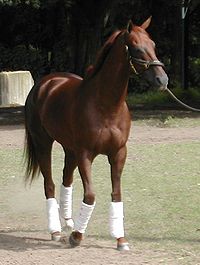 Triple Crown threat Funny Cide caught up in weird judicial opinion. The total weirdness of Florida Court of Appeals Judge Farmer’s opinion in Funny Cide Ventures, LLC v. Miami Herald Publ’g Co. gets the case into Lawhaha.com’s Strange Judicial Opinions Hall of Fame.
Here’s a first in judicial writing: an appellate judge writes an opinion in an offbeat fiction-style based on a tune from Guys and Dolls, can’t get the other judges to go along with his approach, so decides to attach his creative opinion to the court’s per curiam opinion together with a lengthy preface explaining his unique approach to written adjudication.
Confused? Let’s back up. In 2003, Funny Cide won both the Kentucky Derby and the Preakness, one race away from the Triple Crown.
After the Kentucky Derby, the Miami Herald published an article implying that the jockey cheated by using some kind of illegal battery-powered device during the race. The Herald later admitted it made an error and retracted the story. Meanwhile, Funny Cide placed third at the Belmont, missing out on becoming only the twelfth horse in history to win the Triple Crown.
In a lawsuit for injurious falsehood against the Herald, Funny Cide’s owners claimed the article caused substantial damage, including the chance to win the Belmont because “the article caused the jockey to over-ride the horse in the Preakness in an attempt to vindicate himself.”
The defendant moved for summary judgment, which was granted on the ground that the plaintiffs had not alleged direct and immediate damages from the article. The appellate court affirmed in a brief per curiam opinion.
So far, so good.
Then the reader stumbles on Judge Farmer’s … not sure what to call it … tacked on at the end of the court’s opinion. It’s not a concurring or dissenting opinion, and is not labeled as an appendix.
His “attachment” to the majority opinion is not a dissent from the reasoning of his brethren’s opinion, but the boring way in which they expressed it.
Judge Farmer starts by assailing traditional stilted judicial opinion writing, then explains why a humanized, pot-boiler narrative approach might be better. He concludes by suggesting readers compare the two approaches–his and the majority’s–and decide which is better.
Basically, he seemed to be saying: “Hey, I labored over writing this really fun and wild opinion, but these dudes I work with on the court are too straitlaced to get it, so here it is for your reading pleasure.”
Here are excerpts, first, from his attack on traditional judicial opinion writing:
Most [judicial opinions are] … dreary and tedious. …
A surprising number are way too long. There is often a painstaking account of background and trial which turns out to be unnecessary to grasp the essential issues to be decided. Many have extended discussions of rules and principles no one really challenges, or few would dispute. Judges pile on needless details of date, time and place, modified by confusing identifying terms (appellant-cross appellee-defendant) without regard to clarity. Extended comparative quotations alternate with exposition of one sort or another. Legal issues are analyzed through mind-numbing, many-factored “tests”. Each factor is unloaded nit by nit, as though the judges actually decided the dispute in precisely that way. Arcane legal terminology is woven in and out, even though simpler, plainer words could be used. Simplicity, tone, style, voice, personality, levity-all are shunned.
Judge Farmer concedes he’s been guilty of what he describes, then sets out to change his opinion-writing ways:
From the very moment of my appointment as a judge, I have chafed under this norm for appellate opinion writing. How did it become conventional? Who made it required? Why hasn’t it been changed?
I struggled against it. There must be other styles, different tones, alternate voices. Not for every opinion. But for some.
One technique occurred to me. This idea would have an opinion in some of the forms, styles and characteristics associated with fiction. Good fiction is set in human experience. Good fiction illuminates.
***
I had decided that the style of some opinions could-and should-be unconventionally changed for greater openness to all readers. I would try to write some opinions in styles and tones calculated to make legal reasoning clearer for those without law degrees. Then came this case.
When the panel conferred after oral argument, I did not detect any disagreement. … So after thinking on the matter, I conceived of an unconventional approach. I would try a style, a tone, a voice to make apparent even to non-lawyers what I believed is the basic defect in their argument. The very style of the opinion itself would illuminate the legal analysis and outcome.
As it turns out, the other two members of the panel could not endorse the opinion or even some slightly altered version. They had concerns. Some other judges shared them. So I give this explanation for what I wrote, laying my version along side the panel’s substitute. Readers can compare a conventional opinion with an unconventional style-the pious with the impious.
Then comes the opinion. Here’s an excerpt, inspired by the opening song of Guys and Dolls, Fugue for the Tinhorns:
Then the horse won the Preakness Stakes. And it’s not even close. Wins by nearly ten lengths. The horse is so far out front, looks like he could make it past the wire and into the barn before they can take the photo. Hardly anyone asked if the horse ran out of gas for the Belmont. Are you kidding? Racing was all stirred up about the Crown. The feedbox noise grew hot.
Was it a dream, or did I hear stories about a guy who read in the paper the horse wins it all by a half? About another guy who said it was no bum steer, it was from a handicapper that’s real sincere? Even about a third guy who knew this is the horse’s time because his father’s jockey’s brother’s a friend?
Whatever. It’s a lock. Two jewels for the Crown. Make room for the third.
Only, wait a minute. Did I hear another story about this one guy who wasn’t so sure? Said it all depends if it rained last night?
For the life of me, I can’t understand why the other judges on the panel were hesitant to join in this opinion.
— Funny Cide Ventures, LLC v. Miami Herald Publ’g Co., 955 So.2d 1241, 1243–47 (Fla. Dist. Ct. App. 2007). Thanks to Kevin McDowell and James Heelan.
May 27th, 2012  Bird expert "thinks" this might be a bird. In U.S. v. Byrnes, the defendant was convicted of making false statements to a grand jury investigating illegal trafficking in exotic birds. The issue involved the materiality of statements as to whether some illegally imported swans and geese were dead or live when the defendant received them.
To bolster its case, the government called a collector of Australian parrots who testified the defendant had delivered some swans and geese to her. Defense counsel cross-examined the witness, an immigrant from Germany who had difficulty speaking English, in an apparent effort to challenge her credibility as a bird expert. Here’s the interesting colloquy:
Q. Mrs. Meffert, do you recall testifying yesterday about your definition of birds?
A. Yes.
Q. And do you recall that you said that the swans and geese were not birds?
A. Not to me.
Q. What do you mean by that, “not to me?”
A. By me, the swans are waterfowls.
Shortly thereafter, Mrs. Meffert was cross examined as follows:
Q. Are sparrows birds?
A. I think so, sure.
Q. Is a crow a bird?
A. I think so.
Q. Is a parrot a bird?
A. Not to me.
Q. How about a seagull, is that a bird?
A. To me it is a seagull, I don’t know what it is to other people.
Q. Is it a bird to you as well or not?
A. To me it is a seagull. I don’t know any other definition for it.
Q. Is an eagle a bird?
A. I guess so.
Q. Is a swallow a bird?
A. I don’t know what a swallow is, sir.
Q. Is a duck a bird?
A. Not to me, it is a duck.
Q. But not a bird.
A. No, to other people maybe.
The government stipulated that swans and geese are birds.
Because it makes me laugh every time I read it, this opinion gains entry to the Strange Judicial Opinions Hall of Fame.
— United States v. Byrnes, 644 F.2d 107, 110 n.7 (2nd Cir. 1981). Thanks to Walter Fitzpatrick.
May 11th, 2012 U.S. Seventh Circuit Court of Appeals Judge Terence T. Evans, who passed away in 2011, was well-known for his opinions jammed with sports trivia (see here and here).
But in a criminal case involving witness tampering and “too many Murphys” (the defendant, his son and the trial judge were all named Murphy), Judge Evans mined a different pop culture-vein in an opening footnote necessitated by a court reporting error in the trial transcript:
1. The trial transcript quotes Ms. Hayden as saying Murphy called her a snitch bitch “hoe.” A “hoe,” of course, is a tool used for weeding and gardening. We think the court reporter, unfamiliar with rap music (perhaps thankfully so), misunderstood Hayden’s response. We have taken the liberty of changing “hoe” to “ho,” a staple of rap music vernacular as, for example, when Ludacris raps “You doin’ ho activities with ho tendencies.”
Give credit to Ludacris. Cited as authority by the distinguished U.S. Court of Appeals for the Seventh Circuit. Maybe his next release will be a hornbook.
— United States v. Murphy, 406 F.3d 857, 859 n.1 (7th Cir. 2005). Thanks to the several folks who sent this opinion.
April 7th, 2012
 It's official. Tomatos are vegetables according to the Supreme Court. The next time someone raises the age-old debate as to whether a tomato is a fruit or a vegetable, show off your legal acuity (or nerdiness) by informing them you have it on good authority that tomatos are vegetables. No, in fact, make that great authority. Who? The U.S. Supreme Court.
More than 100 years ago, in Nix v. Hedden, Justice Horace Gray, speaking on behalf of a unanimous Supreme Court, ruled that a tomato is a vegetable as a matter of law.
The Tariff Act of 1883 declared a 10 percent duty on all vegetables entering the country, but allowed fruit to enter duty-free. The New York Customs Collector saw an opportunity to increase revenue and declared the tomato to be a vegetable.
Angry importers sued and their case reached the Supreme Court, where Justice Gray said: “[A]lthough botanists consider the tomato a fruit, tomatoes are eaten as a principal part of a meal, like squash or peas, (and all grow on vines), so it is the court’s decision that the tomato is a vegetable.”
— Nix v. Hedden, 149 U.S. 304 (1893). Thanks to Lihwei Lin.
April 4th, 2012  “Excuse me, I’d like to have a few words with you about the litter box issue.” Miles v. City Council of Augusta, GA—starring “Blackie the Talking Cat”—is our kind of case: completely WEIRD, so weird that it qualifies for Lawhaha.com’s Strange Judicial Opinions Hall of Fame.
The plaintiffs, Carl and Elaine Mills, were an unemployed, married couple who owned Blackie, a cat who could allegedly speak English. The plaintiffs were entrepreneurs in the true American mold, making their entire living marketing Blackie’s unique vocal abilities to the public. Although the closest Blackie ever came to making the big time was a $500 appearance on “That’s Incredible” in 1980, he generated steady income for Carl and Elaine by talking to strangers on the street in return for contributions.
After receiving complaints, the Augusta Police Department warned Carl and Elaine that they needed to obtain a business license to continue peddling Blackie’s talents on the streets of Augusta. Plaintiffs sued the city, alleging the occupational license tax was unconstitutional.
The whole opinion is interesting, but the craziest part was the trial judge’s disclosure in a footnote of an ex parte street encounter with Blackie (some paragraph breaks inserted):
In ruling on the motions for summary judgment, the Court has considered only the evidence in the file. However, it should be disclosed that I have seen and heard a demonstration of Blackie’s abilities.
The point in time of the Court’s view was late summer, 1982, well after the events contended in this lawsuit. One afternoon when crossing Greene Street in an automobile, I spotted in the median a man accompanied by a cat and a woman. The black cat was draped over his shoulder. Knowing the matter to be in litigation, and suspecting the cat was Blackie, I thought twice before stopping. Observing, however, that counsel for neither side was present and that any citizen on the street could have happened by chance upon this scene, I spoke, and the man with the cat eagerly responded to my greeting.
I asked him if his cat could talk. He said he could, and if I would pull over on the side street he would show me. I did, and he did. The cat was wearing a collar, two harnesses and a leash. Held and stroked by the man Blackie said “I love you” and “I want my Mama.”
The man then explained that the cat was the sole source of income for him and his wife and requested a donation which was provided. I felt that my dollar was well spent …
I never understood why a cat that could talk didn’t become more famous.
— Miles v. City Council of Augusta, Ga., 551 F. Supp. 349, 350 n.1 (S.D. Ga. 1982). Thanks to Richard McKewen.
April 1st, 2012 A pro se litigant in Arkansas appealed a trial court decision granting custody of her child to the biological father and ordering that the child’s birth name be changed. The trial court granted the custody change and ordered the child’s name be changed to “Samuel Charles.” Not a bad name, but why order a change? Personally, I liked the original name: “Weather’By Dot Com Chanel Fourcast.”
For making us laugh out loud, this order gets into the Strange Judicial Opinions Hall of Fame.
Here’s the colloquy in which the perplexed trial judge asked the mother to explain the child’s birth name:
The Court: I simply do not understand why you named this child — his legal name is Weather’By Dot Com Chanel Fourcast Sheppard. Now, before you answer that, Mr. – the plaintiff in this action is a weatherman for a local television station?
Sheppard: Yes.
The Court: Okay. Is that why you named this child the name that you gave the child?
Sheppard: It – it stems from a lot of things.
The Court: Okay. Tell me what they are.
Sheppard: Weather’by — I’ve always heard of Weatherby as a last name and never a first name, so I thought Weatherby would be — and I’m sure you could spell it b-e-e or b-e-a or b-y. Anyway, Weatherby.
The Court: Where did you get the “Dot Com”?
Sheppard: Well, when I worked at NBC, I worked on a Teleprompter computer.
The Court: All right.
Sheppard: All right, and so that’s where the Dot Com [came from]. I just thought it was kind of cute, Dot Com, and then instead of — I really didn’t have a whole lot of names because I had nothing to work with. I don’t know family names. I don’t know any names of the Speir family, and I really had nothing to work with, and I thought “Chanel”? …
The Court: Well, where did you get “Fourcast”?
Sheppard: Fourcast? Instead of F-o-r-e, like your future forecast or your weather forecast, F-o-u, as in my fourth son, my fourth child, Fourcast. It was —
The Court: So his name is Fourcast, F-o-u-r-c-a-s-t?
Sheppard: Yes.
The Court: All right. Now, do you have some objection to him being renamed Samuel Charles?
Sheppard: Yes.
The Court: Why? You think it’s better for his name to be Weather’by Dot Com Chanel —
Sheppard: Well, the —
The Court: Just a minute for the record.
Sheppard: Sorry.
The Court: Chanel Fourcast, spelled F-o-u-r-c-a-s-t? And in response to that question, I want you to think about what he’s going to be — what his life is going to be like when he enters the first grade and has to fill out all [the] paperwork where you fill out — this little kid fills out his last name and his first name and his middle name, okay? So I just want – if your answer to that is yes, you think his name is better today than it would be with Samuel Charles, as his father would like to name him and why. Go ahead.
Sheppard: Yes, I think it’s better this way.
The Court: The way he is now?
Sheppard: Yes. He doesn’t have to use “Dot Com.” I mean, as a grown man, he can use whatever he wants.
The Court: As a grown man, what is his middle name? Dot Com Chanel Fourcast?
Sheppard: He can use Chanel, he can use the letter “C.”
The Court: And when he gives his Birth Certificate — is it on his birth certificate as you’ve stated to the Court? Does his Birth — does this child’s Birth Certificate read “Weather’by Dot com” —
Sheppard: That’s how I filled out the paperwork for his —
The Court: — Chanel Fourcast?
Sheppard: Yes, and for his Social Security card, I filled it out as Weather’by F. Sheppard.
The Court: All right.
The Arkansas court of appeals upheld the trial judge’s ruling based largely on its finding that the birth name could subject the child to embarrassment.
— Sheppard v. Speir, 157 S.W.3d 583, 587–88 (Ark. Ct. App. 2004). Thanks to David Eanes.
February 18th, 2012  Congratulations to the new parents. The Court so orders. In a Kansas federal district court, the defendants’ lawyer asked for a trial continuance because it conflicted with the date on which his wife was having a baby.
The plaintiffs’ lawyers opposed the continuance, which “surprised” the judge. “Irritated” is probably more accurate. Judge Eric Melgren not only granted the motion for continuance, but chastised the objecting lawyers while ordering that the new parents be congratulated:
Defendants seek a brief continuance, noting that one of their counsel …, along with his wife, is expecting their first child due on July 3. Given the proposed length of trial and the famous disregard that newborns (especially first-borns) have for such schedules, and given that the trial is scheduled in Kansas City while the new [baby’s] arrival is scheduled in Dallas, Defendants move this Court for a continuance.
This in itself would not be remarkable, but in reviewing the motion the Court was more than somewhat surprised to read that “Plaintiffs have refused to agree to continue the trial setting and have indicated that they intend to oppose this Motion.”
Well, every party is entitled to file an opposition to a motion, and hoping that perhaps Defendants’ had mis-characterized the vigor of Plaintiffs’ opposition, we have eagerly awaited Plaintiffs’ defense of its opposition. The Memorandum in Opposition arrived yesterday, and it was, sadly, as advertised.
First, Plaintiffs make a lengthy and spirited argument about when Defendants should have known this would happen, even citing a pretrial conference occurring in early November as a time when [Plantiffs’ lawyer] “most certainly” would have known of the due date of his child, and even more astonishingly arguing that “utilizing simple math, the due date for [the] child’s birth would have been known on approximately Oct. 3, or shortly thereafter.”
For reasons of good taste which should be (though, apparently, are not) too obvious to explain, the Court declines to accept Plaintiffs’ invitation to speculate on the time of conception of the … child.
[The plaintiffs also argued that the defendants had five lawyers, presumably implying they could continue with the trial without soon-to-be dad. The court pointedly noted that the plaintiffs also had five lawyers.]
Finally, Plaintiffs argue that surely [Plaintiffs’ lawyer] will have sufficient time to make it from the Kansas City trial to the Dallas birth, even helpfully pointing out the number of daily, non-stop flights between the two cities; and in any event complain of the inconvenience of this late requested continuance.
Certainly this judge is convinced of the importance of federal court, but he has always tried not to confuse what he does with who he is, nor to distort the priorities of his day job with his life’s role. Counsel are encouraged to order their priorities similarly.
Defendants’ Motion is GRANTED. The Ermans are CONGRATULATED.
IT IS SO ORDERED.
Did the judge come down too hard on the plaintiffs’ lawyers for objecting to the continuance? Not knowing the parties or the history of the case, it’s difficult to assess the appropriateness of the judge’s order, but trials involve substantial planning and scheduling. Changing them on short notice can not only delay justice, but be very expensive for the parties.
On the other hand, life does go on outside of cases and having a baby is a pretty big deal. His personal advice that lawyers strive to reach a proper work-life balance is unchallengeable, but easier said than done for practicing litigators.
—Order on Motion to Continue, Jayhawk Capital Management, LLC v. LSB Industries, Inc., Case No. 08-2561-EFM (U.S. Dist. Ct., E.D. Kan., Apr. 12, 2011). Thanks to a judge-friend who prefers anonymity.
February 10th, 2012 What is it about Texas federal district court judges named “Sam” that makes them so ornery? First, we had the notorious U.S. District Judge Samuel Kent from San Antonio (see here, here, here, and here). Now U.S. District Judge Samuel Sparks from Austin (see here and here) comes along to fill the void.
Regrettably, while most law schools do a good job screening and training students, some students manage to graduate from and pass state bar exams who lack competent skills. Not knowing the actors, we have no basis for arguing with Judge Sparks’ evaluation of the lawyer named (we left him unnamed) in the order below, but bludgeoning him so harshly in a permanent public record seems over the top (some paragraph breaks inserted):
The Court has already turned down two extremely tempting offers to transform this case from a boring old federal lawsuit into an exciting, politically-charged media circus. As any competent attorney could have predicted, the Court declines the latest invitation as well.
However, the Court is forced to conclude [name omitted], the attorney whose signature appears on this motion, is anything but competent. A competent attorney would not have filed this motion in the first place; if he did, he certainly would not have attached exhibits that are both highly prejudicial and legally irrelevant; and if he foolishly did both things, he surely would not be so unprofessional as to file such exhibits unsealed.
A competent attorney who did those things would be deliberately disrespecting this Court and knowingly shirking his professional responsibilities, offenses for which he would be lucky to retain his bar card, much less an intact bank balance.
For [name omitted]’s sake, and because the Court has no time to hold a sanctions hearing—in part because it must take time out of deciding the actual legal issues in this case to address the self-serving entreaties of attention-seekers like [name omitted]—the Court assumes [name omitted] is as incompetent as he appears. Rather than sanction him, the Court simply does what [name omitted] would have done if he was a competent professional, and seals attachment 7 to his motion.
I have no problem with judges dressing down lawyers in a very direct way when they deserve it. In fact, I wish more judges would do it. But putting such a personal attack in a written order that will last forever may not be the best way to go.
–Order, Texas Medical Providers Performing Abortion Services v. Lakey, Case No. A-11-Ca-486-S (W.D. Tex., Aug. 22, 2011). Thanks to Gaspar Forteza.
January 7th, 2012 A judicial friend from Florida sent along a case of first impression involving a parental rights determination between a birth mother and a biological mother that she calls “a law professor’s dream case.” It does sound a bit like a law school exam question—a very difficult one.
The case involved two women in a committed relationship who wanted to have a child. Ova from one of the women were removed, fertilized by donated sperm, and implanted in the other woman, who then gave birth to the child. Thus, one woman was the biological mother and one was the birth mother, an unusual situation to be sure.
Only the birth mother’s name appeared on the child’s birth certificate. For years, the two women reared their child together but, when the relationship failed, the birth mother, without telling the biological mother, fled to Australia with the child.
The trial court reluctantly ruled that only the birth mother was the legal mother but invited appeal of his decision. The Florida Fifth District Court of Appeal reversed, ruling that both women had parental rights to the child.
My judicial friend pointed out that this is a case begging, and no doubt destined, for scholarly attention by law professors and law students, although Judge Thomas D. Sawaya, writing for the majority, might shiver at the thought.
Judge Sawaya was not impressed that the only authority for the birth mother’s position that only gestational mothers have maternal rights were: law review articles and a Tennessee case that relied solely on a law review article.
Regarding law review articles relied on by the birth mother, the judge commented: “We do not believe that law review articles written by students and professors establish the common law.”
About the Tennessee case, Sawaya said: “The common law does not come from law students and professors who write law review articles, and we hardly think it comes from a decision rendered by a Tennessee court that does nothing more than cite a law review article as the source.”
Hmm, I guess that depends on how one defines “the common law.” The Tennessee case is part of the body of judicial precedent that forms the common law. It might not be persuasive precedent, but isn’t it still part of the common law? And simply because a judicial opinion relies on a law review article doesn’t remove the opinion from the realm of common law.
Courts cite law review articles frequently, including the U.S. Supreme Court, and there are innumerable instances of law review articles–including some written by students–that have turned the tide of the common law. As just one example, the products liability doctrine of market-share liability, first articulated by the California Supreme Court in Sindell v. Abbott Laboratories, was conceived from a student-written Note in the Fordham Law Review.
As an aside, my judge-friend was troubled that the majority’s analysis seemed to treat the child as a piece of property, giving no consideration to the best interests of the child, an issue the concurring opinion also focused on.
—T.M.H. v. D.M.T. , Case No. 5D09-3559 (Fla. 5th DCA, Dec. 23, 2011)
December 29th, 2011  Expert's testimony had more holes in it than this guy. In December 2011, the U.S. Seventh Circuit Court of Appeals, per Judge Richard Posner, reversed a jury verdict in favor of an airline against Fed Ex for $65,998,411, the precise amount the airline had requested in damages.
One issue was the admissibility of complex testimony regarding the damages calculations by the airline’s expert witness, a forensic accountant named Morriss. Posner was not impressed by the expert’s regression analysis testimony:
Morriss’s regression had as many bloody wounds as Julius Caesar when he was stabbed 23 times by the Roman Senators led by Brutus. We have gone on at such length about the deficiencies of the regression analysis in order to remind district judges that, painful as it may be, it is their responsibility to screen expert testimony, however technical; we have suggested aids to the discharge of that responsibility. The responsibility is especially great in a jury trial, since jurors on average have an even lower comfort level with technical evidence than judges. The examination and cross-examination of Morriss were perfunctory and must have struck most, maybe all, of the jurors as gibberish. It became apparent at the oral argument of the appeal that even ATA’s lawyer did not understand Morriss’s analysis; he could not answer our questions about it but could only refer us to Morriss’s testimony.
Posner continued, saying: “If a party’s lawyer cannot understand the testimony of the party’s own expert, the testimony should be withheld from the jury. Evidence unintelligible to the trier or triers of fact has no place in a trial.” Posner suggested the reason the jurors returned a verdict for the exact amount, to the penny, that the airline sought was because they had no clue how to compute the damages.
That all makes perfect sense, but I feel for both the trial judge and the airline’s lawyer–and, of course, the jurors.
Trial judges are required to prescreen expert testimony for reliability, but that’s often practically impossible in highly technical areas such as engineering, medicine, and, in this case, regression analyses. The lawyers aren’t in much better of a position.
Judges and lawyers are smart and have well-developed critical-thinking skills, but those qualities don’t enable them to magically master bodies of technical knowledge in which they have no training. Many scholars have proposed enlisting expert judges and juries in technical, complex cases.
Of course, in the end, Posner was right. If an expert can’t explain how he how arrived at his conclusions in a way that laypersons–including judges and lawyers–can understand, the testimony should be excluded.
—ATA Airlines, Inc. v. Federal Express Corp., Case Nos. 11-1382, 11-1492, 7th Cir., Dec. 27, 2011. Thanks to Larry Buser.
December 23rd, 2011 Nathan Koppel of the Wall Street Journal wrote an interesting front-page article about judges who use humor in their opinions, quoting McClurg and citing to Lawhaha.com.
Koppel explored the ongoing debate of whether and to what extent judges should use their written products as avenues for amusement.
What do you think?
Meanwhile, in the article, U.S. Ninth Circuit Court of Appeals Judge Alex Kozinski, a Lawhaha.com Hall of Famer, opined that Canadian judges are too boring and staid. Koppel quoted Kozinski saying: “I like my Canadian colleagues, but, boy, when it comes to reading their opinions, it’s like wading through molasses.”
But that’s not always true. Koppel cited one example of Canadian judicial humor and we have a couple other good ones here and here.
December 16th, 2011
 Friend your trial judge on Facebook. Facebook is creating a quickly growing pile of novel legal issues in a variety of areas. Here’s one of the first to reach a state supreme court: Does a witness’ wishing a trial judge happy birthday on the judge’s Facebook page violate the rules on ex parte communications?
The plaintiff in Onnen v. Sioux Falls Independent School District # 49-5 worked as the registrar for Southeast Technical Institute in Sioux Falls—an entity of the Sioux Falls School District. Plaintiff was terminated from employment in August 2007 due to improprieties relating to the registrar’s duty to verify a student’s compliance with graduation requirements. Among other things, some 28 students had been improperly awarded degrees, while 40-50 students entitled to a diploma did not receive one. The plaintiff appealed the termination. The trial court affirmed the decision and the South Dakota Supreme Court affirmed the trial court’s decision.
Among the issues raised on appeal, the plaintiff argued that a “major witness” for the School District had improperly engaged in an ex parte communication with the trial judge by wishing him “Happy Birthday” on the judge’s Facebook profile page. The court held that the trial judge was not required to disqualify himself and that an uninvited and unresponded-to happy birthday greeting on Facebook does not rise to the level of an improper ex parte communication.
I’m assuming the witness (who apparently was a distant relative of the judge) was a Facebook friend of the judge to be able to post a birthday greeting. If so, is that a problem? Some states have rules prohibiting judges from being on Facebook. Is that a free speech violation? An interesting legal question raised by social networking–one of first of what is going to be a long list.
— Onnen v. Sioux Falls Independent School District, Case No. 49-5, 2011 S.D. 85 (2011). Thanks to Professor Roger Baron.
December 15th, 2011  Rats, agitated about their shrinking legal rights after judge rules that squirrels are better than them. In a 1954 Georgia case, an insured sued his insurance company for property damage caused by a squirrel. The insurance company denied coverage under an exclusion for “vermin.” The issue was whether squirrels are vermin or some higher grade species. The court ruled for the plaintiff, stating (some paragraph breaks inserted):
The brief of counsel for the defendant in error (which, incidentally; includes an excellent recipe for squirrel stew) concludes with the following words, with which this court is inclined to agree:
“‘Vermin’ is a mighty harsh word to hurl at our little friend the squirrel. He has long been well considered and much thought of as a pet and an attractive addition to the scenery of any city, garden, or country yard. He is praised in song and story as a shining example to mankind of industry and thrift. It is respectfully submitted that this court should not label the little fellow as nothing more than ‘vermin’.”
It is all the easier to agree with this encomium, as the question of whether squirrels are vermin was submitted to the jury, and the plaintiff offered without objection a wealth of technical and opinion evidence to the effect that it is not so classified (vermin being “any noxious, mischievous or disgusting animal”), whereas the defendant failed to place our furry friend within the limitations of this category.
He certainly does not belong there as a matter of law, and as a matter of fact we are well content to leave the verdict undisturbed, there being no evidence to the contrary.
Nutkin the Squirrel would be pleased. As someone pointed out in a comment, this case is amusing, but also a good lesson in the importance of paying attention to every word when drafting legal documents, especially documents such as insurance policies that by their very nature depend on definitions.
— North British & Mercantile Ins. Co. v. Mercer, 82 S.E.2d 41 (Ga. App. 1954). Thanks to Paul Scott.
December 10th, 2011 U.S. District Judge Sam Sparks down in Austin, TX, peeved by the conduct of the lawyers in a pending case, chastised them for being “unable to practice law at the level of a first year law student” and ordering them to attend a kindergarten party at the courthouse. Here are the pertinent parts of his order:
You are invited to a kindergarten party … in Courtroom 2 of the United States Courthouse, … Austin, Texas.
The party will feature many exciting and informative lessons, including:
• How to telephone and communicate with a lawyer
• How to enter into reasonable agreements about deposition dates
• How to limit depositions to reasonable subject matter
• Why it is neither cute nor clever to attempt to quash a subpoena for technical failures of service when notice is reasonably given; and
• An advanced seminar on not wasting the time of a busy federal judge and his staff because you are unable to practice law at the level of a first year law student.
Invitation to this exclusive event is not RSVP. Please remember to bring a sack lunch! The United States Marshals have beds available if necessary, so you may wish to bring a toothbrush in case the party runs late.
This is the second time Judge Sparks has berated lawyers regarding their kindergarten skill-set.
Sparks’ boss, U.S. Fifth Circuit Court of Appeals Judge Edith Jones, was not amused by the “cute” order. Abovethelaw.com, via the Texas Lawyer, reported an email from Judge Jones to Judge Sparks that said in part:
It has not escaped my attention, or that of my colleagues or, I am told, nationally known blog sites that you have issued several ‘cute’ orders in the past few weeks. The order attached below is the most recent.
Frankly, this kind of rhetoric is not funny. In fact, it is so caustic, demeaning, and gratuitous that it casts more disrespect on the judiciary than on the now-besmirched reputation of the counsel. It suggests either that the judge is simply indulging himself at the expense of counsel or that he is fighting with counsel in what, as Judge Gee used to say, is surely not a fair contest. It suggests bias against counsel.
Guess we won’t be seeing any Sparks flying in Texas for a while.
— Order, Morris v. Coker, Case Nos. A-ll-MC-712-SS, A-ll-MC-713-SS, A-ll-MC-714-SS, A-ll-MC-7IS-SS, W.D. Tex., Aug. 26, 2011. Thanks to Professor Jodi Wilson, Douglas Giuliano, and others.
December 4th, 2011  Goldfish have rights, so quit flushing them down toilets. In People v. Garcia, the defendant appealed his conviction on multiple charges arising from a domestic assault episode that included stomping on some poor kids’ pet goldfish.
Judge James Catterson’s opinion explored the intriguing legal question of whether goldfish qualify as “animal companions” under statutes imposing enhanced felony penalties for abusing such companions.
The opinion started with an interesting history of animal domestication:
The earliest known domestic animal appears to be the dog, a companion to mankind as early as 15,000 B.C. Goats, sheep, pigs and cows followed in domestication in the next ten thousand years. Horses, however, did not succumb to the lure of mankind’s presence until 4000 B.C. The domestication of fish is believed to have begun much later, in China during the Tang Dynasty, around 620 A.D. The common goldfish (Carassius Auratus), a member of the carp family that was first domesticated in China, is now the most commonly kept aquarium fish. The goldfish’s leap from domesticated fish to family pet and companion may have happened as early as 1368 during the Ming Dynasty. The goldfish’s popularity in the West began as the first public aquarium opened in London in 1853. Keeping goldfish as companions and pets in the United States has been popular since that time.
The criminal statute at issue defined “companion animal” as any dog or cat or “other domesticated animal normally maintained in or near the household of the owner or person who cares for such other domesticated animal.” The defendant argued that goldfish don’t qualify.
Here’s a healthy excerpt of Judge Catterson’s terse, well-reasoned analysis of the issue:
The defendant contends that a fish is not a companion animal because it is not domesticated and because there is no reciprocity or mutuality of feeling between a fish and its owner, such as there is between a dog or a cat and its owner.
[The defendant cites to Am. Jur. 2d, which] defines “domesticated animals” as those that “no longer possess the disposition or inclination to escape,” and claims that “if dropped in a pond and offered the opportunity to swim away, a goldfish will do so without any hesitation and not look back”. He maintains that the statute’s reference to “any other” domesticated animal limits “companion animals” to those that are similar to dogs or cats, that is, those with a degree of sentience sufficiently elevated to enable them to enter into a relationship of mutual affection with a human being. Furthermore, “[b]eloved household pets (fish) may be, but ‘companion animals’ in the same vein as dogs or cats they are not”.
The defendant’s contention that all household pets are equal but some are more equal than others is manifestly not derived from the statute. The Legislature simply did not require a reciprocity of affection in the definition of “companion animal.” To the contrary, the statutory language is consistent with the People’s contention that “domesticated” is commonly understood to mean “to adapt (an animal or plant) to life in intimate association with and to the advantage of humans”. Thus, a goldfish such as the one herein is a domesticated rather than a wild animal within the common meaning of the term. Moreover, the goldfish was, as the statute requires, “normally maintained in or near the household of the owner or person who cares for [them].” Indeed, acknowledging that the goldfish is one of the most common household pets, defense counsel stipulated at trial that there are “millions of fish owners throughout the country”.
The defendant’s argument that goldfish are not domesticated animals because given the opportunity they would leave home is without merit. While this trait arguably distinguishes fish from dogs and, probably to a lesser extent cats, it fails to take into account that many other animals commonly considered pets, such as hermit crabs, gerbils, hamsters, guinea pigs and rabbits, would depart for less confining venues and greener pastures if given the opportunity. Loyalty, if that is what it is, is merely another characteristic urged by defendant-but not included by the Legislature-as a defining feature of a companion animal.
Moreover, [the statute] provides that “[n]othing contained in this section shall be construed to prohibit or interfere in any way with anyone lawfully engaged in hunting, trapping, or fishing ….” (emphasis added). This provision would be superfluous if a fish could not be considered a companion animal.
— People v. Garcia, 29 A.D.3d 255, 257, 260–61 (N.Y. App. Div. 2006). Thanks to Dan Green.
December 4th, 2011  Judge Carlin LOVED this guy. A unanimous Strange Judicial Opinions Hall of Fame opinion is Cordas v. Peerless Transportation Co., penned in 1941 by Judge Carlin (no relation to George) of the New York City Court.
The defendant was a chauffeur and the victim of an armed car-jacking by a fleeing robber who threatened to blow the chauffeur’s brains out. In fright, the chauffeur slammed on the brakes and jumped out of the vehicle, which kept moving and hit the plaintiff pedestrian and her children (fortunately, injuries were slight).
The case stands for the unremarkable principle that under the basic negligence standard of reasonable care “under the circumstances,” people aren’t expected to exercise as much care in emergency situations as in non-emergencies where they have time to weigh and deliberate. It also stands as a literary masterpiece of judicial opinion writing.
Full appreciation of this classic can come only with a full reading, but here’s how it starts:
This case presents the ordinary man–that problem child of the law–in a most bizarre setting. As a lowly chauffeur in defendant’s employ he became in a trice the protagonist in a breath-bating drama with a denouement almost tragic. It appears that a man, whose identity it would be indelicate to divulge, was feloniously relieved of his portable goods by two nondescript highwaymen in an alley near 26th Street and Third Avenue, Manhattan; they induced him to relinquish his possessions by a strong argument ad hominem couched in the convincing cant of the criminal and pressed at the point of a most persuasive pistol.
Carlin apparently was a learned Shakespeare fan. In excusing the chauffeur from liability for jumping out of the moving vehicle, Carlin said:
If the philosophic Horatio and the martial companions of his watch were ‘distilled almost to jelly with the act of fear’ when they beheld ‘in the dead vast and middle of night’ the disembodied spirit of Hamlet’s father stalk majestically by ‘with a countenance more in sorrow than in anger,’ was not the chauffeur, though unacquainted with the example of these eminent men-at-arms more amply justified in his fearsome reactions when he was more palpably confronted by a thing of flesh and blood bearing in its hand an engine of destruction which depended for its lethal purpose upon the quiver of a hair.
Translation: It’s not negligent to react in fright when a carjacker has a gun pointed at your head.
— Cordas v. Peerless Transp. Co., 27 N.Y.S.2d 198, 199, 201 (City Court of N.Y. 1941). Thanks to all the folks who sent in this classic.
November 28th, 2011 Kentucky Judge Martin J. Sheehan was happier than a pig in … on second thought, we won’t try to imitate his unusual judicial writing style here. But he was darn happy that a case settled. How happy? Let’s hear it from him:
And such news of an amicable settlement having made this Court happier than a tick on a fat dog because it is otherwise busier than a one legged cat in a sand box and, quite frankly, would have rather jumped naked off of a twelve foot step ladder into a five gallon bucket of porcupines than have presided over a two week trial of the herein dispute, a trial which, no doubt, would have made the jury more confused than a hungry baby in a topless bar and made the parties and their attorneys madder than mosquitoes in a mannequin factor [the jury trial is cancelled].
Glad you’re pleased, Judge!
— Kisel v. Schwartz & Maines & Ruby Co., Case No. 09-CI-00165, Kenton Circuit Ct., Ky, Jul. 19, 2011. Thanks to Mary Mulherin, Andrei Bogos and others.
November 28th, 2011  Home of the Missouri Court of Appeals? Ol’ Frank Zotter happened upon this little ol’ case and we reckon we’re mighty glad he did.
In State v. Knowles, the Missouri Court of Appeals, a good ol’ bunch of guys and gals from over in them parts, took up an appeal where the trial judge had tossed out a criminal information for receiving stolen property. Well, shucks, we’ll just let the court tell y’all about it:
Old Dave Baird, the prosecuting attorney up in Nodaway Count, thought he had a case against Les Knowles for receiving stolen property, to-wit, a chain saw, so he up and files on Les.
Now Les was a bit impecunious, so the judge appointed him a lawyer, old Dan Radke, the public defender from down around St. Joe. Now, Dan, he looks at that old information and decides to pick a nit or two, so he tells the judge that the information old Dave filed against Les is no good …. Dan says Dave charged that Les “kept” the stolen chain saw and that’s not against the law. You don’t commit that crime by “keeping” the chain saw, says Dan; the law says you commit the crime of “receiving” if you “retain” the saw, and that’s not what Dave charged Les with, and the judge should throw Dave out of court. And that’s exactly what the judge did.
But old Dave was not having any of that. No, sir! …
Bystanders could plainly see the fire in old Dave’s eyes. He was not backing down. Sure. Dave could simply refile and start over with a new information by changing only one word. Strike “kept”; insert “retained.” But that is not the point. Dave knows he is right.
And so he is.
So we’ll just send the case back to Judge Kennish and tell the boys to get on with the prosecution.
— State v. Knowles, 739 S.W.2d 753, 754 (Mo. Ct. App. 1987). Thanks to Frank Zotter.
November 28th, 2011  Spouses now have to resort to old-fashioned eavesdropping in Alabama. Think of all the reasons people choose to live in different locales: job opportunities, climate, family ties, economic conditions, the ability to wiretap one’s spouse …
That last one might not have come readily to mind, but a U.S. Eleventh Circuit Court of Appeals judge thinks it could play into some couples’ relocation decisions. Read on:
An Alabama woman sued her former husband under the federal wiretapping act for taping her phone conversations made from within the marital home. The trial court granted summary judgment to the husband on the basis of a 1974 Fifth Circuit case, Simpson v. Simpson, which held that spouses can secretly tape each other’s conversations because of an implied interspousal wiretapping exception to the federal statute.
The Eleventh Circuit initially affirmed the summary judgment, relying on Simpson, but on rehearing en banc, reversed, overruling Simpson and the implied exception. It also ruled that the decision applied retroactively.
In dissent, Chief Judge Edmonson questioned whether it was fair to make the decision retroactive since some privacy-invading spouses might have relied on the exception in choosing to live within the Eleventh Circuit (which encompasses Alabama, Florida and Georgia). Edmonson wrote:
I am not trying to be facetious; but before today, some spouses might have chosen to live in the Eleventh Circuit because they could wiretap their own telephone without being liable under federal law. Even if we think it unlikely that someone would live in our Circuit to avoid liability under federal law for wiretapping their spouse, it is our job to ensure that someone cannot be punished retroactively for doing so, as the act was clearly lawful.
In his concurring opinion, Judge Carnes addressed the Chief Judge’s concern satirically:
I suppose, then, a conversation between a couple sitting around their breakfast table in, oh say, Colorado (the Tenth Circuit having rejected Simpson years ago) might have gone something like this:
Jim: Honey, I’ve been thinking, we ought to move to Alabama.
Liz: But Sweetheart, I thought you liked living in Colorado.
Jim: I do, Sugar, but there’s a problem.
Liz: What’s troubling you, Sweetie?
Jim: Well, Punkin’, Colorado is in the Tenth Circuit, and its federal appeals court has held that if I wiretap your private conversations without your knowledge and consent, I may have to pay you damages if you find out and sue me in federal court. But if we move to Alabama, which is in the Eleventh Circuit, its Simpson decision will allow me to invade your privacy electronically without having to worry about your having a civil claim against me in federal court.
Liz: But Honeybun, doesn’t Alabama’s criminal eavesdropping statute make it a crime to covertly record conversations without the consent of at least one of the parties to the conversation?
Jim: It does, Snookums, but all I’m worried about is the potential civil cause of action in federal court, not having to serve time in the state slammer.
Liz: You’ll look so good in jailhouse stripes, my Love. When do we move?
— Glazner v. Glazner, 347 F.3d 1212, 1228 n.13, 1223 (11th Cir. 2003) (Edmonson, C.J., dissenting, and Carnes, J., concurring). Thanks to Lisa Lin.
November 27th, 2011 David Cheifetz, Lawhaha’s friend from the north, sent in this Canadian court opinion about the judicial pecking order. David wrote:
Here is the pithiest and funniest summary of “stare decisis” ever written. Judge Cardozo’s explanation in “The Nature of the Judicial Process” may be the best justification and explanation, but it doesn’t hold a candle to what you’re about to read for wit and succinctness. The below summary comes from a decision by a Master of the Queens Bench of Alberta, Canada. A Master is a judge in all but name whose role is deciding preliminary motions in civil matters. The Master involved, Master Funduk, is noted for his witty judgments. The Queens Bench is the trial division of Alberta’s highest court. In the Canadian system, the highest court of any province is always the province’s Court of Appeal, even if the highest provincial trial court is called the Superior or the Supreme Court of the province. Here’s how Master Funduk summed up his role (some paragraph breaks inserted):
Any legal system which has a judicial appeals process inherently creates a pecking order for the judiciary regarding where judicial decisions stand on the legal ladder.
I am bound by decisions of Queen’s Bench judges, by decisions of the Alberta Court of Appeal and by decisions of the Supreme Court of Canada.
Very simply, Masters in Chambers of a superior trial court occupy the bottom rung of the superior courts’ judicial ladder. I do not overrule decisions of a judge of this Court.
The judicial pecking order does not permit little peckers to overrule big peckers. It is the other way around.
— South Side Woodwork (1979) Ltd. v. R.C. Contracting Ltd., [1989] A.J. No. 111, 95 A.R. 161 at 166–67 (Alta. Q.B.). Thanks to David Cheifetz.
November 27th, 2011  Nothing better than wholesome "fresh vegetables." Great news for the diet-conscious. Frozen batter-dipped french fries are a “fresh vegetable” under the Perishable Agricultural Commodities Act, according to U.S. District Judge Richard Schell, Beaumont, Texas. And so are cheeseburgers!
Kidding about the cheeseburgers, but it’s true about the french fries. Although the court did not explicitly rule that french fries are fresh vegetables, that’s the legal effect of the opinion.
The ruling applies only to commerce, not nutrition, regulations, which focus on assuring buyers of agricultural commodities that they are getting what they paid for.
— Fleming Companies, Inc. v. U.S. Dep’t of Agriculture, 322 F.Supp.2d 744 (E.D. Tex. 2004). Thanks to Melanie Ware.
November 27th, 2011  More appropriate publication vehicle than the Northeast Reporter? A lawsuit brought by a woman who got a fishbone lodged in her throat while eating a bowl of fish chowder at a Boston restaurant moved the Massachusetts Supreme Court to write an opinion devoted more to the joys of New England fish recipes than actual law.
The legal dispute is an old one: To what extent is food containing a harmful ingredient a defective product when the substance is a natural one as opposed to a foreign one?
Most modern courts apply a reasonableness test that looks at whether the substance was one a consumer would reasonably expect to find in a prepared dish, but the Massachusetts Supreme Court in this 1964 case adopted the older approach that there is no liability for harm-causing natural substances (i.e., bones as opposed to pieces of glass) in food.
Reading the opinion, it wasn’t hard to predict the defendant was going to win in the end. The court reminisced fondly about the history of fish dishes, recounted several recipes for the same, and included statements such as “we consider that the joys of life in New England include the ready availability of fresh fish chowder.”
The court went so far as to note that “[a] namesake of the plaintiff, Daniel Webster, had a recipe for fish chowder which has survived into a number of modern cookbooks and in which the removal of fish bones is not mentioned at all.”
The court concluded:
[W]e consider a dish which for many long years, if well made, has been made generally as outlined above. It is not too much to say that a person sitting down in New England to consume a good New England fish chowder embarks on a gustatory adventure which may entail the removal of some fish bones from his bowl as he proceeds. We are not inclined to tamper with age old recipes by any amendment reflecting the plaintiff’s view of the effect of the Uniform Commercial Code upon them.
This is a must-read opinion for all products liability lawyers and anyone looking for a good fish-chowder recipe.
— Webster v. Blue Ship Tea Room, Inc., 198 N.E.2d 309, 312 (Mass. 1964). Thanks to Daniel Green.
November 27th, 2011 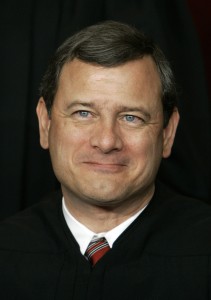 U.S. Supreme Court Chief Justice John Roberts let loose his inner-Raymond Chandler. It’s not often that members of the world’s most powerful judicial tribunal have fun with their opinion-writing, but now, following in the great tradition of hard-boiled crime writers like Raymond Chandler, Dashiell Hammett, and Ross MacDonald comes … U.S. Supreme Court Justice John Roberts? Yup.
In Pennsylvania v. Dunlap, a mundane drug case, Justice Roberts, dissenting from a denial of cert review, explored his inner Joe Friday. Here’s how his dissent started out:
North Philly, May 4, 2001. Officer Sean Devlin, Narcotics Strike Force, was working the morning shift. Undercover surveillance. The neighborhood? Tough as a three dollar steak. Devlin knew. Five years on the beat, nine months with the Strike Force. He’d made fifteen, twenty drug busts in the neighborhood.
Devlin spotted him: a lone man on the corner. Another approached. Quick exchange of words. Cash handed over; small objects handed back. Each man then quickly on his own way. Devlin knew the guy wasn’t buying bus tokens. He radioed a description and Officer Stein picked up the buyer. Sure enough: three bags of crack in the guy’s pocket. Head downtown and book him. Just another day at the office.
Roberts proceeded, in a much more traditional fashion, to disagree with the Pennsylvania Supreme Court’s decision that the officer lacked probable cause to arrest the defendant.
Because it’s the only case we know of where a U.S. Supreme Court justice, a conservative one at that, had fun in an opinion, this opinion joins the Strange Judicial Opinions Hall of Fame.
— Pennsylvania v. Dunlap, 129 S. Ct. 448, 448 (2008). Thanks to Joel Dipippa.
November 27th, 2011 You know a judicial document is going to be a great read when it is captioned:
Order Denying MAAF’s Motion to Preclude the French Phrase ”Quel Jeu Doit-on Jouer Vis-à-vis des Autorités de Californie?” From Being Translated as “What Game Must We Play With the California Authorities?”
This opinion from U.S. District Judge A. Howard Matz (C.D. Cal.) stemmed from the judge’s frustration in overseeing a series of over-litigated lawsuits arising from the collapse of a California insurance company. The motion giving rise to the order, after all, was the twentieth motion in limine the judge had addressed in recent days.
Judge Matz seemed irritated that “some of the French litigants caught up in these complicated cases are still coping with the ‘mystifying’ peculiarities of American courts. They appear to assume, for example, that no judge is capable of using common sense (and perhaps some pre-existing familiarity with French) to understand a straightforward French phrase.”
The motion turned on the meaning of the French word “jeu” in a document addressed to one of the French defendants. The document posed a question: “Quel jeu doit-on jouer vis-à-vis des autorités de Californie?” The California Insurance Commissioner’s expert asserted the question translates to: “What game must we play with the California authorities?” The defendant’s expert claimed it means: “What approach must we take with the California authorities?”
Judge Matz accused the defendant’s expert of playing games with the court (paragraph breaks inserted):
If M. Simonet [composer of the document] was not speaking about a “game,” surely Ms. Zarelli [defendant’s expert translator] is playing one. The problems with her declaration are abundant. First, she relies only on a French-to-French dictionary. Wouldn’t the fairest, most reliable way to ascertain the correct English meaning of “jeu,” as M. Simonet used it, be to consult a French to English dictionary?
That’s what the Commissioner’s expert translator does: she points to Harrap’s Shorter Dictionnaire. . . . And what does that more reliable source reveal? Zut alors! Of the many definitions and examples of how “jouer” and “jeu” are translated, almost all are perfectly consistent with how “jeu” was translated in the document that MAAF seeks to keep out: as a “game,” and often with a connotation of “trickery.” Harrap’s even translates “jouer le jeu” as “to play the game.” It translates other examples of the use of “jeu” into such familiar, straightforward English words andphrases as “all this fooling around;” “what’s your game?;” “to play into one’shands . . ..”
Moreover, as the Commissioner’s language expert points out, the definition that Ms. Zarelli happened to choose — “manière d! agir” — includes, if one bothers to take the complete entry into account, which Ms. Zarelli did not do — “manège” and “stratagème.” The connotations of those terms are hardly helpful to MAAF; they mean “ploy” or “trick.” In short, both the literal meaning and the context in which M. Simonet asked his not-so-rhetorical question “Quel jeu doit- on jouer vis-à-vis des autorités de Californie?” is entirely consistent with “What game must we play with the California authorities?”
Judge Matz must have been enjoying himself by this point because he added a closing footnote comparing the bravery and last name of the plaintiff’s lawyer—one “Ney”—to “Ney, the Duc d’Elchingen and Prince de la Moskova,” an army commander who Napoleon once called “the bravest of the brave.”
What did the lawyer do that was so brave? He had the nerve (“considerable fortitude,” as Matz put it) to file what the judge considered to be a ridiculous motion.
— Garamendi v. Altus Fin. S.A., Case No. CV-99-2829 (CWx) (C.D. Cal, Feb. 10, 2005). Thanks to Michael Barclay
November 27th, 2011 State v. Terrazas, a 1999 case out of the Texas Court of Criminal Appeals, turned on the meaning of a statement made by a state investigator to a defendant that led to the defendant confessing. The issue reminded dissenting Judge Price of a legal brainteaser from the movie Let Him Have It based on the controversial true story of a young man who was hanged for murder in 1953. Here’s Judge Price’s footnote on the matter (paragraph breaks inserted):
1. This issue calls to mind the film “Let Him Have it” which was based on the famous Derek Bentley Confession case in post-WWII England.
Two boys who were trying to break into a building were cornered on a rooftop by a policeman. One of the boys had a gun. The policeman calmly reached out his hand and asked the boy to hand over the gun.
The other boy said, “Let him have it.” The boy with the gun pulled the trigger and killed the officer.
What did the phrase, “Let him have it,” really mean? There are two possibilities: “Hand over the gun!” Or “Shoot him!” A British jury decided upon the second possibility and the boy, a retarded young man named Derek Bentley was convicted of murder and hanged.”
The legal tip from this case is that it’s always smarter to always use nouns and articles rather than pronouns when responding to police commands.
— State v. Terrazus, 4 S.W.3d 720, 729 (Tex. Crim. App. 1999) (Price, J., dissenting). Thanks to Senior Judge James Barlow.
November 27th, 2011  When one is not enough. Wait. That’s not right. It’s Judge Jacob Hart of the Eastern District of Pennsylvania. Can’t be too careful about those typos. Just ask the plaintiff’s lawyer in Devore v. City of Philadelphia.
Judge Hart reduced his attorney’s fee award by $60,000 based on the poor quality of his written work, which, according to the judge, was “careless to the point of disrespectful.” The defendants described it even less charitably, as “vague, ambiguous, unintelligible, verbose and repetitive.” And those were the things they liked about it. Kidding.
The court noted that throughout the litigation, counsel identified the court as: “THE UNITED STATES DISTRICT COURT FOR THE EASTER [sic] DISTRICT OF PENNSYLVANIA,” adding that “[c]onsidering the religious persuasion of the presiding officer, the ‘Passover District’ would have been more appropriate.”
The priceless part (and what elevated the case into the Strange Judicial Opinions Hall of Fame) was the lawyer’s written response to the assertion that his fees should be reduced because of typos:
As for there being typos, yes there have been typos, but these errors have not detracted from the arguments or results, and the rule in this case was a victory for Mr. Devore. Further, had the Defendants not tired [sic] to paper Plaintiff’s counsel to death, some type [sic] would not have occurred. Furthermore, there have been omissions by Defendants, thus they should not case [sic] stones.
Judge Hart said that the above errors would have been “brilliant” if intentional, but that, based on the lawyer’s filings, “we know otherwise.”
Concluding that the lawyer’s filings wasted a lot of the court’s and the defendants’ time, the court halved the lawyer’s requested hourly rate from $300 per hour to $150. Non-lawyers might consider it amusing that a lawyer whose work is so poor that the court publicly disses him could still earn $150 an hour, but to be fair to the lawyer, he obtained a good result in the case for his clients. Also, the judge commended him for his in-court work.
May this case be a lesson to all law students out there who discount the value of their legal writing courses, not to mention their eighth-grade English courses. Cheers for Judge Hurt.
— Devore v. City of Philadelphia, No. 00-3598, 2004 U.S. Dist. LEXIS 3635, at *7–8 (E.D. Pa., Feb. 20, 2004). Thanks to Cynthia Cohan and Professor Howard Wasserman.
November 27th, 2011 Tax law is not known for its literary prose, but a U.S. Tax Court judge, in a case involving some challenged business deductions by a theater professor aiming to be a playwright, explained that tax law actually has a long literary history (interesting footnotes omitted):
It is a truth little remarked on by scholars that tax law has been a fount of literature for 5,000 years. The oldest literary work still extant–the Epic of Gilgamesh–is a long narrative of a friendship begun during a protest against government exactions. In more recent times, some of our language’s most notable authors have used fiction to delve into tax policy: consider Shakespeare’s criticism of the supply-side effects of a 16-percent tax rate; Swift’s precocious suggestion of a system of voluntary assessment; and Dickens’ trenchant observation on the problems of multijurisdictional taxing coordination ….
The prof didn’t fare too well before the court. In an opinion divided into a Prologue, Act I, Act II and Epilogue, the court agreed that the petitioner “approached his playwriting in a business-like manner,” but disallowed many of his business deductions, including, for example, approximately 100 expenditures for “Performances, Viewing.”
Petitioner testified at trial “that every time he listens to a CD or watches a movie, he is engaged in playwriting and not recreation.” The court found this to be a “less than candid” assessment of his business expenses.
— Calarco v. Comm’r of Internal Revenue, T.C. Summ. Op. 2004-94, Docket No. 1530-03S, (T.C. July 20, 2004). Thanks to Paul Scott and Cynthia Cohen.
November 27th, 2011  U.S. District Judge James C. Paine – A totally awesome dude. [U.S. District Judge James C. Paine, Southern District of Florida, passed away in 2010 after 28 years of distinguished service on the federal bench.]
In a 1992 case, U.S. District Judge James Paine (or maybe a law clerk) took pains to spice up an order rejecting federal removal jurisdiction by managing to work in several references from the movie “Wayne’s World.”
These include subheadings like “Hurling Chunks” and “NOT!”, and the observation that the attempted removal of the case from state to federal court “is untimely and is a defect deemed ‘way’ improvident.”
He concluded his trip to Wayne’s World as follows: “In short, Prime Time’s most bogus attempt at removal is ‘not worthy’ and the Defendants must ‘party on’ in state court.”
To which we say, “WHOA, Judge Paine, was, like, a totally awesome judicial dude!”
— Noble v. Bradford Marine, Inc., 789 F. Supp. 395 (S.D. Fla. 1992). Thanks to Melissa Williamson.
November 27th, 2011 The Federal Rules of Civil Procedure permit any electronic document to be e-filed until midnight on the due date. Microsoft electronically filed a motion for summary judgment 4 minutes and 27 seconds late on the night of June 26, 2003.
Microsoft’s adversary in the litigation, Hyperphase Technologies, Inc., incensed by this grievous rule breach, filed a motion to strike the motion for summary judgment as untimely.
U.S. Magistrate Stephen L. Crocker, clearly annoyed, blessed us with this sarcastic order:
In a scandalous affront to this court’s deadlines, Microsoft did not file its summary judgment motion until 12:04:27 a.m. … I don’t know this personally because I was home sleeping, but that’s what the court’s computer docketing program says, so I’ll accept it as true.
Microsoft’s insouciance so flustered Hyperphase that nine of its attorneys [names omitted] promptly filed a motion to strike …. Counsel used bolded italics to make their point, a clear sign of grievous inequity by one’s foe. True, this court did enter an order … ordering the parties not to flyspeck each other, but how could such an order apply to a motion filed almost five minutes later? Microsoft’s temerity was nothing short of a frontal assault on the precept of punctuality so cherished by and vital to this court.
Wounded though this court may be by Microsoft’s four minute and twenty-seven second dereliction in duty, it will transcend the affront and forgive the tardiness. Indeed, to demonstrate the evenhandedness of its magnanimity, the court will allow Hyperphase on some future occasion in this case to e-file a motion four minutes and thirty seconds late ….
— Hyperphrase Techs., Inc. v. Microsoft Corp., 56 Fed. R. Serv. 3d (Callaghan) 467 (W.D. Wis. 2003). Thanks to Cynthia Cohan.
November 26th, 2011 U.S. Court of Appeals for the Third Circuit reversed a district judge in Pennsylvania, finding impropriety in the fact that the judge’s opinion dismissing plaintiff’s claims was “nearly identical” to a proposed order and opinion submitted by defendants’ lawyers.
The court had previously expressed its disapproval of trial courts adopting proposed “findings of fact and conclusions of law” submitted by the prevailing parties in litigation, although it said that such copying would not be ground for reversal unless the findings were clearly erroneous. This situation was different, according to the court, because it involved an “opinion”:
Here, however, we are not dealing with findings of fact. Instead, we are confronted with a District Court opinion that is essentially a verbatim copy of the appellees’ proposed opinion.
…
Judicial opinions are the core work-product of judges. They are more than findings of fact and conclusions of law; they constitute the logical and analytical explanations of why a judge arrived at a specific decision. They are tangible proof to the litigants that the judge actively wrestled with their claims and made a scholarly decision based on his or her own reason and logic. When a court adopts a party’s proposed opinion as its own, the court vitiates the vital purposes served by judicial opinions.
Certainly, the court seems correct in ruling that parties to litigation have a fair and reasonable expectation that the judge, not the parties, should be the one to articulate the reasons for the decision.
However, the court’s distinction between ghostwritten opinions and ghostwritten findings of fact and conclusions of law doesn’t hold up. Opinions and Findings of Fact and Conclusions of Law are the same thing, differing only in format. Both documents dispose of the losing party’s claims and give the reasons why.
And in fairness to the trial judge, it should be noted that he was following a common practice, as evidenced by the fact that the plaintiff’s lawyer devoted only one footnote of the appellate brief to the issue.
After my first trial as a young lawyer a million years ago, the trial judge–who was highly regarded and ultimately elevated to the Florida Supreme Court–called our firm, said our client had won, and asked us to draft an opinion to send to him. Ghostwriting for judges is as old as … well, ghostwriting.
— Bright v. Westmoreland County, 380 F.3d 729, 732 (3rd Cir. 2004).
November 26th, 2011 Or maybe not. A pro se litigant filed a Notice of Appeal in the U.S. District Court for the Western District of Washington stating:
I hereby am informing you that I am appealing the a****** Ronald B. Leighton’s decision in this matter.
You have been hereby served notice. You’re not getting away with this s*** that easy.
Signed this 10th day of July 2006
George C. Swinger, Jr.
Plaintiff/Pro Se
— Swinger v. Cole, Case No. 3:04-CV-05348-RBL (W.D. Wash. July 12, 2006). Thanks to Scott Cole.
November 26th, 2011 Legalese embraces redundancy. Legalese embraces redundancy. Legalese … sorry, just getting in the spirit. In a convoluted dispute regarding a real estate conveyance, Judge Mark P. Painter, Ohio Court of Appeals, First District, offered his common sense take on the phrase “free and clear title” and other legal redundancies:
Free and clear mean the same thing. Using both is an unnecessary lawyerism. Free is English; clear is from the French clere. After the Norman Conquest, English courts were held in French. The Normans were originally Vikings, but after they conquered the region of Normandy, they became French; then they took over England. But most people in England, surprisingly enough, still spoke English. So lawyers started using two words for one and forgot to stop for the last nine hundred years.
So free and clear do not mean separate things; they mean, and were always meant to mean, exactly the same thing. Just as null and void and due and payable mean the same thing. All of these couplets are redundant and irritating lawyerisms. And they invite just what has happened here—an assertion that they somehow have different meanings.
The Norman Conquest was in 1066. We can safely eliminate the couplets now.
What’s your favorite legal redundancy?
— Kohlbrand v. Ranieri, 823 N.E.2d 76, 78 (Ohio Ct. App. 2005).
November 26th, 2011  Dangerous product? A large guy (280-90 pounds) ironically won a one-week trip to Hawaii as a reward for selling more than $20,000 in diet products. But in a lawsuit against Hanes, the underwear maker, he alleged his “dream trip” went awry due to allegedly defective briefs which “gaped open and acted like a sand belt on my privates,” causing injury.
We’ll let the court elaborate on this interesting products liability case:
Plaintiff testified that by the second day in Hawaii he was in debilitating pain. However, … he ignored the pain until he returned to Pensacola two weeks later. He explained he was able to ignore the pain because he was enjoying himself so much on this long anticipated vacation that he did not dwell on or focus on the pain to any degree.
Plaintiff testified he believed sand that he picked up in his swim trunks while enjoying the Hawaiian surf had irritated his penis. Over the next few days he and his wife “walked all over the place” until his condition worsened to the point that he “could hardly walk.” Plaintiff testified his inability to walk was caused by defendant’s defective manufacturing of his underwear which caused his “fly” to gap open. The gap resulted in his penis protruding from his underwear, whereupon the edges of the opening abraded his penis like “sandpaper belts.” …
Under cross examination plaintiff admitted he never examined his penis to assess the problem and/or treat the problem. He testified he is a “belly-man” and his “weight” prevents him from looking down and seeing his penis. He further testified he declined to use the hotel mirror to view the “injury” because that is “not something he would do.” He also testified he did not ask his wife to examine his penis because he would never ask her to do such a thing, nor would he want to let her know about his pain because it would have “ruined her vacation” as well. …
So how does one prove a complex products liability case like this one? How else? Bring on the experts! Nothing like an in-court reenactment to drive home a point (will resist the obvious “if they do not fit, you must acquit” joke):
Both the plaintiff and the defendant’s expert demonstrated the “tensions” that are placed on men’s underwear. This was done by holding the allegedly “defective” underwear and placing it under various “stresses” while comparing it with similar briefs made by other manufacturers, as well as other old, worn out Hanes brand briefs owned by plaintiff.
The uncontroverted expert testimony was that once a man’s genitalia are adjusted in his briefs, “vertical tension” is far greater than horizontal tension and there is no tendency for the fly to “gap.”
Based on the expert testimony, the judge concluded that “it was clear to the court that plaintiff’s underwear would not have ‘gaped’ open as contended by plaintiff because the tension load on men’s underwear is vertical and not horizontal.” The court speculated that it was more likely that plaintiff’s problems were caused by the “plaintiff’s manner of getting into his underwear,” which was to put them on at the same time as his pants.
The surprising legal lesson of this case is that expert testimony about tighty-whities fit can apparently pass scrutiny as scientifically valid under Daubert.
— Freed v. Hanes Brands, Inc., Case No. 2009 SC 003087 (Fla. Escambia County Ct. Oct. 12, 2009). Thanks to Cecile Mendizabel and others.
November 26th, 2011 Thanks to Oregon Circuit Judge G. Philip Arnold for sending us Franklin v. Oregon. The opinion details the plight of Oregon federal district Judge James M. Burns and a unique prison inmate named Harry Franklin back in 1983. Their longterm relationship was on the rocks when Burns penned these opening words:
This is another chapter in the Harry Franklin saga. No longer am I tempted to call it the final chapter, as desirable as that would be to me. I mention mournfully that only the finality of death—his or mine—would enable the other of us to use the term “final” in that way. And, of course, if mine comes first, I have no doubt that another judge will someday express lamentations such as these.
Franklin was a prolific inmate litigator. Burns had already dismissed 37 cases he filed, only to receive two dozen more. These were on top of 45 other lawsuits filed by the inmate, which were dealt with by a different judge.
Here are some of the claims Judge Burns had to contend with:
– A claim for $3 million damages for mental frustration suffered by Franklin when a Portland television station allegedly misidentified a “14 wheeler tractor and trailer rig” as an “18 wheeler.”
– A claim for “Harassment by Water” arising from the Oregon State Prison’s sprinkling of the prison yard during summer months, which prevented Franklin from finding a dry place to lie down.
– A claim that the Oregon State Prison wrongfully bakes its desserts in aluminum rather than stainless steel pans.
How did the inmate decide which of his claims had merit? In his words:
FN1. “The Lord spoke to me, and he told me to file these lawsuits and said, ‘You will win big in your lawsuits,’” the heavy-set, white haired convict said. “He showed me an enormous elephant. He said that the elephant represents the big, gray courts, which is the government. Anyway, I was leading this elephant through every section of this penitentiary,” he said. “I was writing on a yellow legal pad. Each place we came to I’d jot something down and slap the sheet onto the elephant. And they all stuck. The Lord told me the sheets were suits. I never could get over that monstrous elephant.”
— Franklin v. Oregon, 563 F. Supp. 1310, 1316–17 & n.1 (D. Or. 1983). Thanks, Judge.
November 24th, 2011  A $600,000 jury verdict for losing psychic powers sounds ridiculous, and likely the grossly misunderstood McDonald’s coffee spill case, Haimes v. Temple University has been abused as a tool to whip up on trial lawyers and the tort system. But as with the McDonald’s case, Haimes got twisted in the telling. A $600,000 jury verdict for losing psychic powers sounds ridiculous, and likely the grossly misunderstood McDonald’s coffee spill case, Haimes v. Temple University has been abused as a tool to whip up on trial lawyers and the tort system. But as with the McDonald’s case, Haimes got twisted in the telling.
Plaintiff Judith Richardson Haimes brought a medical malpractice action against defendant after a CT scan allegedly caused her chronic and disabling headaches and prevented her from practicing her occupation as a psychic. A jury awarded her $600,000 after a four-day trial.
Wow! But pro-tort reform accounts of the case omit two critical facts. First, that the trial judge specifically instructed the jury it could NOT award damages for loss of her psychic abilities, and, second, that the court threw out the plaintiff’s verdict.
Having cleared that up, the most interesting part of the case was the testimony pertaining to her psychic abilities. The plaintiff presented several police officers as witnesses who testified that plaintiffs’ psychic abilities had helped them solve cases. One special agent testified that he sought plaintiff’s advice in solving five to seven homicide cases and that information provided by plaintiff proved to be 80-90 percent accurate. The opinion describes detailed information plaintiff provided to help solve a variety of cases. It’s interesting.
— Haimes v. Temple University Hosp., 39 Pa. D. & C.3d 381 (Pa. Ct. Com. Pl. 1986). Thanks to Cynthia Cohan.
November 24th, 2011 This from a judicial friend who prefers anonymity: a disciplinary action against a judge who likes to hand out acorns. Sound odd? It gets odder. The acorns contained condoms and he handed them out to women he didn’t know. Here’s the story:
A Pennsylvania magistrate judge from Intercourse, Pennsylvania (that’s right, Intercourse) attended a continuing education course in nearby Harrisburg. While there, the judge approached two women, neither of them known to him, and presented them with some acorns. He encouraged them to try them and to return the following day to let him know how they liked them.
The women subsequently cracked open the nuts and discovered that the judge had hollowed them out, inserted condoms (foil removed), and resealed the acorns. The distressed women called the police.
The police cited the judge for disorderly conduct. When questioned at the station, the judge told police he intended his actions as a joke.
The criminal charges were dismissed, but the police lodged an ethics complaint. While the Pennsylvania Court of Judicial Discipline said the conduct was “not funny” and that the judge’s preoccupation with acorns was “mystifying,” the court—made up of one judge, two lawyers and three laypersons—found that the conduct did not violate the canons of ethics by bringing the judiciary into disrepute.
Part of the court’s reasoning was “we cannot ignore … the fact that condoms are regularly given out to children by our government.”
My friend was surprised the judge wasn’t disciplined, but I also find it strange that he was arrested. Unjudicial conduct to be sure, but a crime?
— In re: Isaac H. Stoltzfus, Pa. Court Of Judicial Discipline, Case No. 4 JD 11, Aug. 17, 2010.
November 24th, 2011 According to North Carolina Judge David K. Fox, General Court of Justice, Transylvania County, “Teenaged boys were created to mumble darkly whilst doing yard work to justify their existence on earth and their room and board.”
That’s just one of many pearls offered by Judge Fox in a temporary support order in a divorce case, an order as hilarious as it is skillfully articulated.
The facts are extensive, but basically, the husband, a doctor, was seeking relief from support payments to his ex-wife, who, along with her kids, was living quite well on the ex-hubby’s income while declining to seek substantial work of her own.
The wife had been a nurse, a fact not surprising to Judge Fox, who commented “[t]hat, as predictable as death and taxes, doctors marry nurses for second and subsequent unions.”
Neither the wife nor husband, according to Judge Fox, had managed to adjust their respective lifestyles in light of the doc’s substantially declining income attributable to shifts in the healthcare industry. The result, said Judge Fox, was “an ongoing mathematical economic train wreck.”
Part of the problem was that, “since separation, the Parties have undertaken to continue their relationship based upon the constitution and bylaws of the Jerry Springer Show.” The wife’s grown kids from a prior marriage weren’t helping matters either, causing Judge Fox to remark that “[i]t is a mercy that [the husband’s] children by his prior marriage are in Illinois.”
The comment about teenage boys came in response to the fact that the wife was forking out $250 a month for yard work instead of making her healthy 17-year-old son get off his duff and push a lawnmower.
While Judge Fox’s sympathies seemed to lie with the husband, the doc didn’t escape unscathed. Judge Fox described him as “rotund” and “a vessel of ill health, both actual and potential.”
But good news! The husband had “acquired a reciprocal, apparently romantic, interest in a local female (working in the health-delivery industry, of course),” causing the judge to speculate “that this relationship likely is the primary reason he has begun to address his weight problem with some increase in beneficial exercise, including the muscular effort of pushing aside the dinner plate more frequently.”
The judge granted the husband support relief and everyone else comic relief. This summary doesn’t do justice to Judge Fox’s order. The overall tone, while definitely somewhat sarcastic, is not mean-spirited. He seemed genuinely concerned about the parties’ well-being, but also frustrated by their apparent inability to grasp their economic straits.
— Order in Temporary Support, Bodie v. Bodie, Case No. 08-VVD-334 (N.C. Dist. Ct., July 11, 2006). Thanks to Andrew J. Dolson.
November 24th, 2011 Judge Mark Painter, Ohio First District Court of Appeals, took some lawyers to task for moving to strike their opponent’s appellate brief for exceeding the page limitations set by rule, apparently even redrafting portions of the brief in the process:
Not wishing to let stand a brief they consider too long, counsel for appellant … have moved this court to strike [appellees’ brief] … contending the brief (1) put the citations in footnotes (where they belong!); and (2) uses footnotes to “get around” the page limit. And counsel even goes so far as to redraft their opponent’s brief, inserting the jumble of letters and numbers into the paragraphs—even the references to the record. Thus bollixed up and unreadable, the brief comes out to 38.5 pages, instead of the regulation 35. Egad. …
Our dreary day has been enlivened by the thought that lawyers care about one another’s prose so much as to redraft it. And that this dispute is so close that it may turn on a few extra pages of a lawyer’s argument. We can’t wait to read the final version—or maybe we should wait for the movie.
As to citations, they belong in footnotes. Putting goofy letters and numbers in the middle of paragraphs destroys readability. We had to do that with typewriters, just as we had to use underlining because typewriters did not have italics. No more.
Judge Painter did agree with the objectors that the other side shouldn’t have used so many speaking footnotes. He “venture[d] a guess that this court’s eventual opinion resolving this dispute will be fewer than 20 pages,” and suggested to both sides that “less is usually more” when it comes to legal drafting.
— M&M Metals Int’l, Inc. v. Continental Casualty Co., 870 N.E.2d 167, 167 (Ohio Ct. App. 2006).
November 24th, 2011 Sometimes you just need to know when to fold ‘em.
In a 1963 divorce case, the wife accused the husband–a dentist–of adultery with several of his patients. The husband vigorously contested the allegations. Fifteen hundred pages of testimony later, the case made it to the New Jersey Superior Court, which had to decide whether the evidence proved adultery.
The husband had creative explanations for every bit of damning evidence. For example, when the wife produced a film she found of the husband inserting a speculum into a nude patient in his office, he said he was conducting medical research. Remember, he’s a dentist.
On another charge, the wife claimed she came into the husband’s office one day to find him having sex on his dental couch with a nude patient identified in the case as “Mrs. G.” The husband denied having sex with Mrs. G. He said he was merely carrying her to the couch because of her sudden loss of consciousness while he was removing a denture. (No explanation as to why she was nude.)
He maintained his denial even in the face of a diary entry he made on the same date with reference to Mrs. G that said “[C]aught!” He explained that this was actually a medical entry meaning that the denture “caught” in Mrs. G’s mouth tissue while he was removing it.
The opinion is jammed with other elaborate, laughable denials that make for some interesting reading.
— Lowenstein v. Lowenstein, 190 A.2d 882 (N.J. Super. Ct. 1963). Thanks to Seymour Margulies.
November 24th, 2011  George W. Bush -- Sued by whales. Lawhaha.com obviously has great fondness for judges who liven up their opinions with humor and other writing spice, but a case from the U.S. Court of Appeals for the Ninth Circuit shows why judges need to exercise care in stirring in these ingredients.
In a suit brought against George W. Bush and Donald Rumsfeld on behalf of all whales, dolphins, and porpoises, the Ninth Circuit had to decide whether animals have standing to sue on their own behalf under the Endangered Species Act and other federal statutes.
The plaintiff was “the Cetacean Community,” a name chosen by the Cetaceans’ self-appointed attorney for all of the world’s whales, porpoises, and dolphins. The Cetaceans challenged the U.S. Navy’s use of low frequency sonar used to detect enemy submarines because the sonar harms marine life.
Bush and Rumsfeld moved to dismiss on the ground that the animals lacked standing to bring suit. The district court agreed and dismissed the action.
The animals appealed, relying on a statement made in a previous environmental case—Palila v. Hawaii Dep’t of Land and Natural Resources—in which the Ninth Circuit had indicated that an endangered member of the honeycreeper family, the Hawaiian Palila bird, had standing to sue on its own behalf. The specific language was that the bird “has legal status and wings its way into federal court as a plaintiff in its own right.”
The court had to decide whether the Palila language was binding precedent or only loose dicta. It ruled it was the latter, calling the statements “little more than rhetorical flourishes.”
With respect to the substantive issue, the court added that “It is obvious that an animal cannot function as a plaintiff in the same manner as a juridically competent human being.” Hmm, perfect entry for making a political joke about one of the defendants, but we try to stay apolitical.
The fact that courts have held monkeys, whales, and assumely all other non-human species (along with their human champions) lack standing to seek protection from the judicial system raises a troubling question: Who’s left to look out for them?
— Cetacean Cmty. v. Bush, 386 F.3d 1169 (9th Cir. 2004). Thanks to Daniel Green.
November 24th, 2011
 Prosecutor used Celine Dion's and Enya's music to soften up jury. Salazar v. Texas was a grisly murder case involving a victim and alleged dope dealer named Jonathon. Jonathon’s cohorts turned on him and killed him by beating him with baseball bats and strangling him with wire.
At the punishment phase of the trial, over the objection of defense counsel, the state played a professionally edited video montage of Jonathon’s life, complete with music by Enya and Celine Dion!
The defendant appealed on the ground that the videotape was prejudicial. Here’s how the appellate court described the videotape (paragraph breaks inserted):
This video is an extraordinarily moving tribute to Jonathon Bishop’s life. It consists of approximately 140 still photographs, arranged in a chronological montage. Music accompanies the entire seventeen-minute video and includes such selections as “Storms in Africa” and “River” by Enya, and concludes with Celine Dion singing, “My Heart Will Go On,” from the movie Titanic.
Almost half of the approximately 140 photographs depict the victim’s infancy and early childhood. The pictures show an angelic baby, surrounded by loving parents, grandparents, unidentified relatives, and other small children. Later photographs show Jonathon as a toddler, playing the piano, frolicking at the beach with other friends, happily riding on a carousel, laughing in a field of bluebonnets, and cuddling with a puppy.
The video also includes numerous annual school pictures showing Jonathon’s progression from a cheerful child to a equally cheerful young man. It catalogs his evident and early prowess as a young soccer player and eventually as a football player. There is a picture of him and his date, presumably going to their prom, and more candid shots of the victim and his teen-age buddies. The video includes many family reunion portraits showing Jonathon’s entire extended family.
Understandably, this professional and polished production portrays Jonathon in a very positive light and it is entirely appropriate for a memorial service. The music, too, is appropriately keyed to the various visuals, sometimes soft and soothing, then swelling to a crescendo chorus. In sum, it is a masterful portrait of a baby becoming a young man. It is also extraordinarily emotional.
The court held it was reversible error to admit the videtape into evidence on the ground that its relevance was outweighed by its prejudicial value, stating:
[The] prejudicial effect is enormous because the implicit suggestion is that the appellant murdered this angelic infant; he killed this laughing, light-hearted child; he snuffed out the life of the first-grade soccer player and of the young boy hugging his blond puppy dog.
— Salazar v. State, 90 S.W.3d 330, 333–34, 337 (Tex. Crim. App. 2002). Thanks to Texas Senior Judge James Barlow.
November 24th, 2011 Goshgarian v. George involved warring neighbors, one of whom continually dumped dirty water from his swimming pool onto the other’s property.
The water-dumping defendant came up with the imaginative, if not quite legally sound, argument that, since the County of Fresno had an easement on the property for the drainage and disposal of water, the individual defendant should have the same right.
The court was downright astonished by the creativity of the argument (paragraph breaks inserted):
Only a mind unburdened by the ephemeral shackles of legal training and gloriously free of the stultifying pomposities of precedent and stare decisis could have formulated the epiphanous principle that what the public may do as an entity, so may individual members of the public do, acting in their individual capacities.
Appellate counsel for cross-complainants, with an imagination dulled by years of legal training, evidently lacked the audacity to appreciate cross-defendants’ argument and misinterpreted (and diminished) it as a mundane attack upon the sufficiency of the evidence to support the jury’s finding of trespass.
Not so. Cross-defendant Mr. George is on the wave front of the expanding legal universe, Prometheus unbound by the strictures of logic and reason that constrain lawyers and judges in their quotidian professional functions.
There is just one problem. The easement is for storm drain water, not mosquito infested swimming pool effluent.
— Goshgarian v. George, 161 Cal. App. 3d 1214, 1222–23 (1984). Thanks to Eli Ben-Shmuel.
November 24th, 2011 Judge Mark Painter, a judge on the Ohio Court of Appeals, sent in a couple of his own funny opinions. The first one he wrote back when he was a municipal court judge. Lawhaha.com clings steadfastly to being a family friend site, but it’s not easy when a primary source of Strange Judicial Opinions is that haven for adult-oriented material known as the National Reporter System.
In State v. Parenteau, the defendant was charged with public indecency. We’ll let Judge Painter explain what happened:
Defendant was part of a “lingerie fashion show” at a nightclub named “Scandals” in western Hamilton County. The charge arose from the modeling by defendant of a lace brassiere which was alleged by the officer to be “see-through,” in that the officer testified he could observe a nipple area through the lace fabric. Defendant was apprehended after she had retired to a back room to change her clothing. The officers asked Parenteau for the clothing she was wearing, which they confiscated.
The evidence produced in court included a lace brassiere, a pair of underpants, stockings, and a small square of pantyhose fabric. The panties and stockings were not relevant, considering that the charge was not based upon anything in connection with the defendant’s lower anatomy. Defendant testified that she wore the pantyhose fabric under the bra in order to be certain that it was not transparent in the area of the nipple. Defendant further stated that she was wearing two such squares, one on each breast, during the performance, but that only one was in evidence, since she had already removed her bra when she was arrested, and the other square had dropped out and was not recovered by the officers. An additional witness testified that she saw defendant cutting pantyhose to make the squares before she dressed. Much ado was made about whether one or two squares were worn, but in the court’s view of the law, the existence or nonexistence of the pantyhose material within one side of the brassiere is not controlling.
The question presented is whether the defendant can be convicted of public indecency … for wearing a lace brassiere which totally covered her breasts, but was partially transparent, or “see through.” If so, does the insertion of pantyhose material, rendering the brassiere less “see through,” change the result?
The result turned on the meaning of “private parts” as used in the public indecency statute. Judge Painter cited numerous sources supporting the proposition that “private parts,” as used in the law, refers to the genital area only. As such, he acquitted the defendant.
— State v. Parenteau, 564 N.E.2d 505, 505 (Ohio Mun. 1990).
November 24th, 2011  Chick Iverson left his mark in more ways than one. California lawyer Frank Zotter sent in Iverson v. Iverson, a California divorce case in which the trial judge, in Frank’s words, “demonstrates once again the wisdom of the old saying, ‘it’s best to keep your mouth shut and have everyone think you a fool than to open it and leave no doubt.’”
The case involved the validity of a prenuptial agreement and the question of which of the parties had initiated the idea of marriage. The trial judge concluded that surely the wife had pursued the marriage. After all, the judge said, she was “lovely,” but “[h]ad nothing going for her except for her physical attractiveness.” Specifically, she “did not have much of an education, and did not have much of a background in business, and did not have much by way of material wealth.”
The judge simply couldn’t fathom the notion that the husband, Chick Iverson, would have been crazy enough to pursue marriage when “[h]e had just gone through a divorce which cost him a million dollars.” Marriage, the judge said, “would be the last thing on his mind. And why, in heaven’s name, do you buy the cow when you can get the milk free, as we used to say. And, so, he’s getting the milk free. And Cheryl is living with him in his home.”
The Court of Appeals reversed, ordering a new trial before a different judge on the basis that the trial judge’s sexist perceptions of the couple’s relationship made it impossible for the wife to have received a fair trial.
Who the hell was Chick Iverson? The case makes it sounds like he’s a big deal and he must have been because he told John Wayne he wanted The Duke to be best man at the wedding. Internet research discloses Iverson was the first Volkswagen dealer in L.A.
McClurg footnote: A source who requested anonymity sent this interesting follow-up information about the Iverson case:
Chick Iverson and John Wayne were best friends. That’s why John Wayne was the best man at his wedding to Mrs. Iverson. Mr. Iverson has since passed away and is actually buried next to John Wayne.
Chick Iverson owned the first VW dealership in Orange County, not LA. He imported the first Porsches to the west coast after WWII, and established a Volkswagen, Porsche, Rolls Royce, Audi and Chevrolet dealership in Newport Beach in the 60s which was sold in the 80s. It was the largest and best selling Volkswagen dealership in the United States.
Mr. Iverson made a hefty sum selling the wonderful bug to many a hippie. Mr. Iverson and Cheryl Iverson had a bitter divorce that would rival any Dynasty episode. The judge’s screw-up with his comments costs Mr. Iverson close to a million dollars in attorneys’ fees as he was paying for his attorney and Mrs. Iverson’s. Eventually, Mr. Iverson won and the prenuptual agreement was upheld.
Another McClurg footnote: More inside info about the colorful Chick Iverson, courtesy of Carl “Skip” Williams, a friend and former employee:
“Who the hell is Chick Iverson?” I had to laugh when I read that. You’re not from Orange County, CA. Let me add these few choice pieces to the article.
John Wayne and Chick were like Oprah and Gail. John Wayne was the Godfather to Chick’s son, who died at the age of 21 when he took a used Jaguar of the lot and ran off the cliff on his way to Laguna. Chick introduced John Wayne to his wife who worked on his ranch in South America. Chick Iverson was the executor to John Wayne’s Estate and controlled all the money for his children.
Chick Iverson was lucky in business and a genius. He was the son of immigrants. He had the largest cattle ranch in Oregon and the sixth largest in the US. He started as a salesman selling cars, with a high school education. His biggest decision was a fluke. He worked his way from salesman to general manager at a Porsche dealership in Chicago. He then opened up the first Porsche dealership in Orange County. Two years later he went looking to add another brand. His first choice was American Motors, second was Volkswagen.
When he decided to go with American Motors; he invited the representatives over to his house. One made a remark that offended his wife, so he went with Volkswagen and the rest is history.
— In re Marriage of Iverson, 11 Cal. App. 4th 1495, 1499 (1992). Thanks to Frank Zotter.
November 24th, 2011 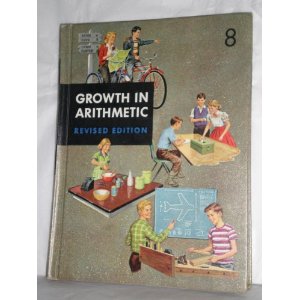 Eighth-grade math book held to be controlling authority by a federal appellate court. You gotta love an opinion that begins:
In this appeal we are asked to determine whether “.82″ is the equivalent of “82%.” Having successfully completed grammar school, we are able to answer the question in the affirmative.
An unsuccessful bidder for an offshore oil and gas lease brought suit against the Secretary of the Interior for awarding the contract to a competitor. The plaintiff offered a royalty of “73.45689%” in its bid. A competitor offered a royalty bid of “.82165.” The Secretary construed the competitor’s bid as one for 82.165 percent, and awarded the contract to it based on it being the higher bid.
The plaintiff asserted the Secretary acted arbitrarily and capriciously in construing .82165 to be 82.165 percent. The trial court agreed and entered judgment for the plaintiff.
The U.S. Court of Appearls for the Fifth Circuit reversed, relying on as its primary source of authority an eighth-grade math book called “Growth in Arithmetic,” which the Court said asked and answered the pertinent question: “Do you know how to change a per cent to a decimal?”
— Oil & Gas Futures, Inc. of Tex. v. Andrus, 610 F.2d 287, 287–88 (5th Cir. 1980). Thanks to Frank Zotter.
November 24th, 2011 Why waste words? Wouldn’t it be nice if more judges could cut to the chase like Judge J.H. Gillis of the Michigan Court of Appeals? Here’s his entire opinion in Denny v. Radar Indus., Inc.:
J.H. Gillis, Judge.
The appellant has attempted to distinguish the factual situation in this case from that in Renfroe v. Higgins Rack Coating and Manufacturing Co., Inc. (1969), 17 Mich. App. 259, 169 N.W.2d 326. He didn’t. We couldn’t.
Affirmed. Costs to appellee.
As the most succinct judicial opinion known to Lawhaha.com, Judge Gillis’ effort enters the Strange Judicial Opinions Hall of Fame.
— Denny v. Radar Indus., Inc., 184 N.W.2d 289 (Mich. App. 1970). Thanks to Richard McKewen.
November 24th, 2011  Judge used Leann Rimes tunes to solve her contract dispute. In Rimes v. Curb Records, Inc., country music sensation LeAnn Rimes sought to void a recording contract on the basis that she was a minor when she signed it. Judge Jerry Buchmeyer, one of the original legal humorists, upheld a forum selection clause in the contract and granted the defendant’s motion to transfer the case to Tennessee—and he did it all to the tune of LeAnn’s hit songs.
Here’s a sample (footnotes omitted):
STATEMENT OF FACTS
(To be sung to the tune of LeAnn Rimes, “How Do I Live.” Copr. & (R) 1997 Curb Records, Inc.)
LeAnn Rimes
A very rich and famous star
Wasn’t so rich in times afar
But what a talent she had!
Enter Curb
To sign a contract, they hoped
After her talent they scoped
They saw the cash in her eyes
But LeAnn
Who at twelve was hardly dumb herself
Wanted to retain her future wealth
Oh
If you could have seen
Baby those attorneys changed everything
But so many lines!
They missed one thing.
CHORUS #1
Why did you sign, LeAnn Rimes?
So long ago
Off on that choice of forum?
Your attorneys didn’t know?
They made lots of changes, but one thing survived …
Forum clause, to that clause, what weight do we give?
INSTRUMENTAL INTERLUDE
VERSE #3
Many times
Back and forth from judge to attorney
Both in Texas and in Tennessee
There was so much to review
And LeAnn
With a guardian to oversee
She disavowed her own minority
Oh
Now she believes
Her age will invalidate everything
She ever signed
We must decide
CHORUS #2
How do we read the forum clause?
Binding or no?
How could she see, at age twelve
Or truly know
That the Curb-Rimes relations, would never survive?
Forum clause, to that clause, how much weight do we give?
Judge Buchmeyer wrote separate lyrics for the “Legal Analysis” and “Conclusion,” making the opinion a LeAnn Rimes Greatest Hits collection.
— Rimes v. Curb Records, Inc., 129 F. Supp. 2d 984, 985–86 (N.D. Tex. 2001). Thanks to Melissa Williams.
November 24th, 2011 Ohio Court of Appeals Judge Mark Painter combined humor and common sense in Gibson v. Donahue, where the plaintiff was injured being thrown from her horse, which was spooked by two Irish Setters that the defendant allowed to run free in an area restricted to equestrian use.
Talk about creative lawyering. The defendant tried to escape liability by relying on an Ohio statute intended to provide tort immunity for riding stable owners and horse show operators for injuries resulting from the inherent risks of equine activity (a statute Painter said “is noteworthy mainly for using the word ‘farrier’ ten times”).
Judge Painter observed that the case was one of first impression, “probably because no one before has been audacious enough” to try to extend the statute to a situation like this one.
Defendant did have a slim statutory leg to stand on. The statute extends immunity to “an equine activity sponsor, equine activity participant, equine professional, veterinarian, farrier, or other person.” However, Judge Painter said that for defendant’s construction to prevail, the statute would have to be read as applying to “any other person in the whole world.” Construed as defendant argued, “[a] person who negligently crashes an airplane into the crowd at an equine event would thus be immune to liability.”
By the way, a farrier is a blacksmith. Remember that if you’re a law student in Ohio. It might be on the bar exam.
— Gibson v. Donahue, 772 N.E. 2d 646, 648, 650 (Ohio Ct. App. 2002).
November 24th, 2011  Ohio Court of Appeals Judge Mark Painter writes some amusing opinions. He had a bit more leeway to let loose back when he was a municipal judge presented with some highly unusual fact patterns. Ohio Court of Appeals Judge Mark Painter writes some amusing opinions. He had a bit more leeway to let loose back when he was a municipal judge presented with some highly unusual fact patterns.
In State v. Kirchner, the defendant was charged with aggravated menacing and resisting arrest. It all started just because he wanted to hang out one night at home with some friends–with a five-foot dead snake nailed to his door. Read on and enjoy:
The evidence adduced presented, at the very least, a bizarre situation. Cincinnati Police Officers Randy Froehlich and Steve Means received a radio dispatch to an address … in the “Over-the-Rhine” section of Cincinnati. The reason for the dispatch was “man nailing snake to door.”
Upon the officers’ arrival … they did in fact discover a five-foot-long black snake which had been nailed through its head to the door of defendant’s apartment. Though the record is silent on the point, assumedly the snake was deceased.
Quite naturally, the officers knocked on defendant’s door, which defendant answered, and sought to question defendant concerning the snake. The officers asked if they could come in and talk with the defendant, to which he replied, “no.” The entire situation deteriorated from that point forward, resulting in the events in this court.
Quite obviously, the defendant had a right, under the Fourth Amendment to the United States Constitution, to refuse to allow the officers to enter absent a warrant or perhaps exigent circumstances, which did not exist in this case. Of course, a prudent man would have talked with the officers to resolve the situation, but the Constitution applies to both prudent and imprudent men.
Defendant testified that the snake was not his, he had not nailed it to the door, and since it was not his snake, he did not believe it to be his responsibility to remove it. Defendant believed that the caretaker of the apartment building would eventually remove the snake, which had been hanging for approximately eight hours. Defendant did not wish to converse with any police officer, because he and his friends were engaged in a social visit, involving the use of Wild Irish Rose wine.
[A struggle ensued when the defendant stepped back and put his hands on his hips. A folding knife in a sheath was on his belt. The officers interpreted his movement as “going for” the knife. They drew their weapons, disarmed and arrested the defendant.]
The question remains as to what, if any, laws the defendant had violated. It might be noted that no charges were filed against anyone in connection with the mistreatment of the snake. Under Cincinnati Municipal Code Section 701-11, “[n]o person shall … cruelly beat, mutilate … any animal …..” An “animal” is defined … as follows: “‘[a]nimal’ shall, for the purposes of Sections 720-11 and 720-13, mean and include every living dumb creature.” The above definition would obviously include a snake, though the inartful wording might imply that it would be perfectly legitimate to torture a talking parrot. Be that as it may, since the defendant denied nailing the snake to the door, the officers were evidently not able to determine the identity of the nailor, the nailee obviously being unable to testify.
We do not find that defendant’s actions … constitute the crime of aggravated menacing. Perhaps the entire matter could be classified under “aggravated foolishness,” though there is no section in the Revised Code proscribing such conduct. If there were, our jails would be a great deal more crowded than they are presently.
Judge Painter found sufficient evidence to support a conviction of the defendant for resisting arrest.
— State v. Kirchner, 483 N.E.2d 497, 498–99 (Ohio Mun. 1984).
November 24th, 2011 Baseball fans may enjoy this opinion from Ohio Court of Appeal Judge Mark Painter. In a taxpayer suit against the Cincinnati Reds and the City of Cincinnati alleging failure of the city to collect stadium rent from the Reds, Judge Painter managed to lighten up the complex legal analysis by sprinkling baseball phrases throughout the 20-page opinion.
Judge Painter offers this succinct play-by-play in the opening paragraph:
In keeping with the less than stellar history of stadium construction in Cincinnati is this lawsuit involving the Cincinnati Reds, Cincinnati, and Hamilton County. It has twisted and turned, parties have been thrown out and substituted, and none of the parties can agree on the rules of the game. The Reds, Cincinnati, Hamilton County, the taxpayer-plaintiff, and the trial court have become enmeshed in a series of procedural and legal double plays and errors. It is difficult to determine who, if anyone, is on first.
We resolve the case by calling the plaintiff out.
— City of Cincinnati ex rel. Ritter v. Cincinnati Reds, 782 N.E.2d 1225, 1229–30 (Ohio Ct. App. 2003).
November 24th, 2011  Imagine you and me. How can you not love U.S. District Judge William G. Young, chief judge for the District of Massachusetts, for his candor and willingness to come clean on an error he made in a case?
Confronted with a motion for new trial based in part on his allegedly erroneous jury instructions, he stated candidly: “[D]espite case-specific guidance from the court of appeals, I botched the instructions to the jury.”
Even better, Judge Young began his opinion in Suboh v. Borgioli by setting forth the lyrics to “a derisive ditty going around the courthouse” set to the music of “Happy Together” by the Turtles.
The original version of “Happy Together,” penned by Gary Bonner and Alan Gordon, reached No. 1 on the Billboard charts the week of Mar. 25, 1967. I’m not sure this version (from a group of lawyers who call themselves the Bar and Grill Singers) poking fun at the high-mindedness of federal judges, will reach that level of success, but it’s still fun.
Here’s a taste of the song as set forth in Judge Young’s opinion:
Imagine me as God. I do.
I think about it day and night.
It feels so right
To be a federal district judge and know that I’m
Appointed forever.
…
[CHORUS]
I’m a federal judge
And I’m smarter than you
For all my life.
I can do whatever I want to do
For all my life.
Appointed Forever, Bar & Grill Singers.
— Suboh v. Borgioli, 298 F. Supp. 2d 192, 194 (D. Mass. 2004). Thanks to Michael Hirschowitz.
November 22nd, 2011 Good news if you’re involved in a legal dispute with a monkey. The primate–not you, the other one–lacks standing to sue.
That’s the short answer in a long opinion from the 73rd Judicial District Court in Bexar County, Texas in which nine chimps and monkeys sued their keeper.
Ohio State University (OSU) entered into an agreement with Primarily Primates, Inc. (PP), a Texas entity, to transfer ownership of nine chimpanzees and three new world monkeys. In return for PP agreeing to provide lifetime care for the primates, OSU agreed to pay a substantial amount to construct a facility for them and to provide an endowment to help care for them.
After the primates were shipped to PP, two of them died and a third escaped from its cage. A couple months later, attorneys purporting to represent the remaining primates (named Sarah, Harper, Emma, Keeli, Ivy, Seba, Darrell, Rain and Ulysses) filed suit against PP alleging breach of contract.
But the court held the monkeys did not have standing to bring suit and affirmed the trial court’s dismissal of the action. Adding three humans as “interested parties” didn’t help save the monkeys’ case.
Hope those monkeys and chimps are okay.
Meanwhile, Senior Judge James Barlow, San Antonio, TX, longtime supporter of lawhaha.com, commented in a letter that he “did not think we should encourage making Texas the dumping ground for a bunch of Yankee chimps to start with.” But, he added, that was a policy question.
— Sarah v. Primarily Primates, Inc., 255 S.W.3d 132, 135–36 (Tex. App. 2008). Thanks to Judge Barlow.
November 22nd, 2011  Mr. Spock for Supreme Court. In an otherwise dry (due to subject matter), but well-written opinion involving legislative police power and retroactive laws, Texas Supreme Court Justice Don R. Willett invoked the ultimate high authority for Baby Boomers everywhere.
No, not the U.S. Supreme Court. Star Trek!
Quoting the utilitarian principle that “the needs of the many outweigh the needs of the few,” Justice Willett cites to Charles Dickens and Mr. Spock from Star Trek II: The Wrath of Khan. Here’s the footnote:
The film references several works of classic literature, none more prominently than A Tale of Two Cities. Spock gives Admiral Kirk an antique copy as a birthday present, and the film itself is bookended with the book’s opening and closing passages. Most memorable, of course, is Spock’s famous line from his moment of sacrifice: “Don’t grieve, Admiral. It is logical. The needs of the many outweigh …” to which Kirk replies, “the needs of the few.”
As Star Trek sources go, The Wrath of Khan is a good one. Definitely more authoritative than, say, The Trouble with Tribbles.
— Robinson v. Crown Cork & Seal Co., 54 Tex. Sup. J. 71, 99 n.21 (Tex. 2010). Thanks to Tamara Davis by way of wired.com.
November 22nd, 2011  One-third of the way toward resolving lawyer disputes. Fed up with wrangling lawyers, U.S. District Judge Gregory A. Presnell (M.D. Fla.) came up with a novel dispute resolution procedure: the game of “rock, paper, scissors.”
In what Judge Presnell called “the latest in a series of Gordian knots that the parties have been unable to untangle” without court assistance, the parties were unable to agree on a location for a deposition.
The judge directed the lawyers to convene at a neutral site, and if they couldn’t agree on even that much, to meet on the steps of the federal courthouse. He further instructed that:
Each lawyer shall be entitled to be accompanied by one paralegal who shall act as an attendant and witness. At that time and location, counsel shall engage in one (1) game of “rock, paper, scissors.” The winner of this engagement shall be entitled to select the location for the 30(b)(6) deposition ….
Actually, rock, paper, scissors resolutions are anything but novel. Although there are competing theories of the origin of the game, according to Wikipedia, the Chinese invented during the Ming dynasty, where warlords allegedly played a similar contest called shoushiling, which can be translated to “hand-command.” The warloads used the game to decide, among other things, where depositions would be held and whose head would get cut off.
So who won? It might not matter. Rumor has it the appeal will be decided by eeny, meeny, miny, moe.
— Avista Mgmt., Inc. v. Wausau Underwriters Ins. Co., Case No. 6:05-cv-1430-Orl-31JGG, 2006 U.S. Dist. LEXIS 38526 (M.D. Fla., June 6, 2006). Thanks to Brian Abramson and Jeff James.
November 21st, 2011 Would a reasonably prudent dog batter a postal worker, negligently knock over a vase with a wagging tail or trespass on property to urinate or defecate?
Maybe we’ll find out, now that a court has held that a dog in a dog-bite case was to be judged by a “reasonable dog” standard.
In Kirkham v. Will, an Illinois intermediate appellate court held that, in deciding whether the defense of provocation applied in a dog-bite case, the appropriate test to apply was the “reasonable dog” standard; that is, how a reasonable dog would have reacted to the plaintiff’s presence under similar circumstances.
How a reasonably prudent person would have behaved under a given set of circumstances is one of the great imponderables of tort law that jurors, law students, lawyers, judges and law professors struggle with every day. Despite manifold attempts to define the standard, answers remain elusive.
We entrust the decision to jurors because they presumably know how reasonable people would act. Are they competent to determine how reasonable dogs would act? I can see it now, ads for expert witnesses in “Canine Behavior.”
— Kirkham v. Will, 724 N.E.2d 1062, 1065 (Ill. App. Ct. 2000). Thanks to Darius Asly.
November 21st, 2011 Nothing funny about U.S. v. Pipkins, a case involving RICO convictions for several “pimps,” including convictions for using underage woman as prostitutes. But it certainly qualifies as “strange,” given the Eleventh Circuit’s elaborate explanation of the complex hierarchy and jargon of pimping and prostitution, which in this case even included instructional videos for both pimps and prostitutes. Here are some excerpts:
[E]ach pimp kept a stable of prostitutes with a well-defined pecking order. At the top of each pimp’s organization was his “bottom girl,” a trusted and experienced prostitute or female associate. Next in the pimp’s chain of command was a “wife-in-law,” a prostitute with supervisory duties similar to those of the bottom girl. A pimp’s bottom girl or wife-in-law often worked the track in his stead, running interference for and collecting money from the pimp’s other prostitutes. The bottom girl also looked after the pimp’s affairs if the pimp was out of town, incarcerated, or otherwise unavailable.
The pimps also recognized a hierarchy among their own. “Popcorn pimps,” “wanna-bes,” and “hustlers” were the least respected, newer pimps. A “guerilla pimp” (as other pimps and prostitutes considered Moore) primarily used violence and intimidation to control his prostitutes. Others were regarded as “finesse pimps,” who excelled in the psychological trickery needed to deceive juvenile females and to retain their services. Finally, “players” (apparently, in this case, Pipkins) were successful, established pimps who were well-respected within the pimp brotherhood. …
The pimping subculture in Atlanta operated under a set of rules, presented in the video called Really Really Pimpin’ in Da South. This videotape was made in Atlanta by Pipkins and Carlos Glover, a business associate. Really Really Pimpin’ in Da South featured prominent Atlanta pimps, including Pipkins, explaining the rules of the game. This video, along with its companion piece, Pimps Up Hoes Down, outlined the pimp code of conduct, and was repeatedly shown to new pimps and prostitutes alike to concisely explain what was expected of a prostitute. The origin of Pimps Up Hoes Down is unknown. In essence, these videos taught that prostitutes were required to perform sexual acts, known as “tricks” or “dates,” for money. … Despite the pimps best efforts to subjugate their prostitutes, the rules allowed a prostitute to move from one pimp to another by “choosing.” This was accomplished by the prostitute making her intentions known to the new pimp, and then presenting the new pimp with money, a practice known as “breaking bread.” The new pimp would then “serve” the former pimp by notifying him that the prostitute had entered his fold. The former pimp was bound to honor the prostitute’s decision to choose her new pimp. A prostitute who frequently moved from pimp to pimp was known as a “Choosey Susie.” And, a prostitute might “bounce” from pimp to pimp by moving among different pimps without paying for the privilege of choosing.”
The court also detailed extensive physical abuse against prostitutes as part of the “rules govern[ing] a prostitute’s conduct,” mentioned that one defendant used his prostitutes to “entertain[ ] members of a municipal police force at his home,” and noted that the pimps “operated as a price-fixing cartel” to regulate prices for prostitution services.
If you ever thought prostitution was a “victimless crime,” go read this opinion.
— United States v. Pipkins, 378 F.3d 1281, 1285–86 (11th Cir. 2004). Thanks to Paul Scott.
November 21st, 2011  Simon and Garfunkel - Noted admiralty law experts. In U.S. v. McPhee, the defendants were charged with conspiracy to import marijuana, after their boat, the Notty, was intercepted by Coast Guard cutters off the coast of Florida.
A key jurisdictional issue was whether the boat was intercepted within the territorial waters of the Bahamas. Defendants argued it was, on the basis that the interdiction occurred within 12 miles of Saint Vincent Rock, which defendants asserted is a Bahamian island. The government argued that Saint Vincent Rock is only a “rock” and does not qualify as an “island.”
The U.S. Court of Appeals for the Eleventh Circuit agreed with the government, although it conceded the question was not without its nuances, citing Simon & Garfunkel as authority (paragraph breaks inserted):
FN 9. The Government argued that the Notty was in international waters or on the “high seas” because “Saint Vincent Rock is a rock. If it was an island, it would be called Saint Vincent Island, not Saint Vincent Rock.” Ultimately, we must determine whether it is a rock or an island according to the statutory definitions provided by the Archipelagic Act.
We note in passing that for some purposes, the label is not altogether satisfying. Thus, for example, in the metaphysical sense, we can discern no reason why something could not be both a rock and an island at the same time.
See Paul Simon and Art Garfunkel, I am a Rock, on Sounds of Silence (Columbia 1966) (“A winter’s day, in a deep and dark December. I am alone, gazing from my window, to the streets below, on a freshly fallen silent shroud of snow. I am a rock, I am an island. I’ve built walls, a fortress deep and mighty, that none may penetrate. I have no need of friendship, friendship causes pain. It’s laughter and it’s loving I disdain. I am a rock, I am an island. Don’t talk of love. Well I’ve heard the word before. It’s sleeping in my memory. I won’t disturb the slumber of feelings that have died. If I never loved, I never would have cried. I am a rock, I am an island. I have my books and my poetry to protect me. I am shielded in my armor. Hiding in my room, safe within my womb, I touch no one and no one touches me. I am a rock, I am an island. And a rock feels no pain. And an island never cries.”).
The court did note, however, that “neither Simon nor Garfunkel has been identified as a nautical expert.”
Maybe the government could have bolstered its jurisdictional case by citing John Mellencamp and arguing that the “R.O.C.K. [was] in the U.S.A.”.
— United States v. McPhee, 336 F.3d 1269, 1279 n.9 (11th Cir. 2003). Thanks to Michael Hirschkowitz.
— See also United States v. Horn, 185 F. Supp. 2d 530, 551 n.37 (D. Md. 2002) (“She blinded me with science!”). Thanks to Kevin Cross for providing this Thomas Dolby-influenced citation in the same vein pop-music theme as McPhee, in proper Bluebook-form no less.
November 21st, 2011 It turns out that the f-word holds a long pedigree in judicial opinion-writing. John Baker sent in an 1846 Missouri opinion reputed to contain the first judicial mention of the word.
In Edgar v. McCutchen, McCutchen sued Edgar for slander. The slanderous allegation was, according to the court, “carnal knowledge of a mare, and the word ‘f**k’ [asterisks added; court used unabridged version] was used to convey the imputation.” After the plaintiff received a verdict, the defendant made a motion to arrest the judgment “for the reason that the word used to convey the slander, was unknown to the English language.”
If only that were true. The court disagreed and affirmed the plaintiff’s judgment.
Follow up: Kevin McDowell wrote to confirm that:
It appears to be true that Edgar v. McCutcheon (1846) is the first case to discuss the “F” word. The Indiana Supreme Court relied on the case in Linke v. Kelley, 25 Ind. 278 (1865), finding that although the word is “not to be found in any vocabulary of the English language, [it]is as well understood as any other English word.” The court said it isn’t found in “standard lexicons” because of its “vulgarity.” This was a case of a braggart saying he (you know what) to a woman “one hundred times.” The court did it to him in turn.
— Edgar v. McCutchen, 9 Mo. 768, 768 (1846). Thanks to John M. Baker and Kevin McDowell.
November 20th, 2011  Don't know much about history. In a convoluted libel case, the defendant, a lawyer, argued on appeal that the plaintiff’s counsel delivered a prejudicial, inflammatory closing argument.
But the bigger problem was that his historically based closing argument—which invoked Jesus Christ, Julius Caesar, the Philistines and Mennonites—was off on the facts. Here’s an excerpt:
You may remember when Christ was preaching the gospel, in the Holy Roman Empire that Julius Caesar was Emperor of Rome. As Christ was making his way toward Rome, the Mennonites and the Philistines stopped him in the road and they sought to entrap him. They asked Christ: ‘Shall we continue to pay tribute unto Caesar?’ And you will remember, in the Book of St. Matthew it is written that Christ said: ‘Render ye unto Caesar the things that are Caesar’s and unto God the things that are God’s.
Inspiring perhaps, but the lawyer made a few teensy-weensy historical errors. His timeline, for example, was a off a little. Okay, a lot. Six to eight centuries. The court pointed out the faux pas:
The Holy Roman Empire did not come into existence until about 800 years after Christ. Julius Caesar, who was never Emperor of Rome, was dead before Christ was born. Christ was never on His way to Rome and the Philistines had disappeared from Palestine before the birth of Christ. The Mennonites are a devout Protestant sect that arose in the Sixteenth Century A.D.
Some good news for the lawyer though. The judge was impressed he could cram so much misinformation into one short excerpt. As the judge said it, the argument excerpt “is noteworthy only because of the ease with which the speaker crowded into one short paragraph such an abundance of misinformation.”
Give him credit for that. If the lawyering thing doesn’t work out, he could go to work for a cable news network.
— Hall v. Brookshire, 285 S.W.2d 60, 66–67 (Mo. Ct. App. 1955). Thanks to Judge James Barlow.
November 20th, 2011 A federal judge in Oklahoma, annoyed by delays in carrying out his order to commit a defendant to a medical facility, managed to maintain a perfect judicial temperament and sense of humor on hearing the news that the parties had worked out everything out on their own–without bothering to tell the judge. His “on the one hand, but on the other hand” order is a masterpiece of balance and even-handedness.
“On the one hand,” the court was grateful that the government and the defendant were able to cooperate in setting a date for the defendant to report.
“On the other hand,” the court said, “the court might be somewhat justified in experiencing annoyance at being left out of the loop in making a decision that is vested in its sound discretion. ‘Oh right, somebody better remember to tell the judge…’”
“On the one hand,” the court wanted to give due consideration to the fact that the defendant was 80 years old and was receiving treatment for a heart condition by a neurosurgeon.
“On the other hand,” the court asked, “how long may a defendant avoid imposition of justifiable court orders merely because of his age and medical condition? Where does it end? Anarchy? Dogs and cats living together?”
In the end, the court threw in the towel and agreed to let the defendant report on the date agreed to by the government. Or as the court put it: “[T]he court will be content to let imposition of its orders be held hostage by the vagaries of the schedule of some neurosurgeon in Oklahoma City.”
— Order, United States v. Stipe, Case No. 07-TP-001-RAW (E.D. Okla., May 5, 2008). Thanks to Debra Schwartz.
November 20th, 2011  U.S. District Judge Sam Sparks does not enjoy lawyers he perceives as having kindergarten skill-sets. In 2011, U.S. District Judge Sam Sparks, Western District of Texas, got in trouble with his bosses at the Fifth Circuit Court of Appeals for ordering the lawyers in a case to attend a kindergarten party. It wasn’t the first time Judge Sparks used kindergarten references to berate lawyers.
In a 2004 case called Klein-Becker, LLC v. Stanley, Judge Sparks expressed his “disgust” with squabbling among the lawyers in a barrage that began with his expressing doubt as to whether the lawyers had ever attended kindergarten and ended by telling him them to “get a life” (some paragraph breaks inserted):
When the undersigned accepted the appointment from the President of the United States of the position now held, he was read to face the daily practice of law in federal courts with presumably competent lawyers. No one warned the undersigned that in many instances his responsibility would be the same as a person who supervised kindergarten.
Frankly, the undersigned would guess the lawyers in this case did not attend kindergarten as they never learned how to get along well with others. Notwithstanding the history of filings and antagonistic motions full of personal insults and requiring multiple discovery hearings, earning the disgust of the this Court, the lawyers continue ad infinitum.
[Court recounts current dispute in which, despite the court’s order allowing a pleading to be filed on July 23, 2004, defendants’ counsel filed a motion for reconsideration, claiming the pleading should have been filed July 19.]
The Court simply wants to scream to these lawyers, “Get a life” or “Do you have any other cases?” or “When is the last time you registered for anger management classes?”
Neither the world’s problems nor this case will be determined by a … [pleading] which is four days later, even with the approval of the presiding judge.
If the lawyers in this case do not change, immediately, their manner of practice and start conducting themselves as competent to practice in the federal court, the Court will contemplate and may enter an order requiring the parties to obtain new counsel.
Judge Sparks wrapped up by saying that if it wasn’t already clear from the tone of the order, the motion for reconsideration was denied. Hmm, I think he was pretty clear.
— Klein-Becker, LLC v. Stanley, Case No. A-03-CA-871-SS, 2004 U.S. Dist. LEXIS 19107, at *4–6 (W.D. Tex. July 21, 2004). Thanks to Michael Barclay.
November 18th, 2011  Family friendly depiction of the injury. Doe v. Moe, a May 2005 Massachusetts appellate case, gives a whole new meaning to the idea of safe sex. A guy sued his long-time girlfriend (ex-girlfriend?) for negligence when an ill-advised change in position during consensual intercourse resulted in him suffering a fractured penis. (The opinion gives details about how the accident occurred.)
In a case of first impression, the court struggled to arrive at an appropriate and workable standard of care to apply to private consensual sexual conduct. The court noted:
There are no comprehensive legal rules to regulate consensual sexual behavior, and there are not commonly accepted customs or values that determine parameters for the intensely private and widely diverse forms of such behavior.
Accordingly, the court concluded that the general negligence standard of reasonable care under the circumstances was inappropriate for consensual sex-physical injury cases.
Instead, the court said the plaintiff needed to show conduct rising to the level of “wanton or reckless.” The court opined that while the trial record might support a finding that the defendant’s conduct exposed plaintiff to a risk of harm, it did not support a finding of wanton or reckless conduct.
The case does raise an interesting legal issue. With so many different preferences and positions and idiosyncratic fantasies and fetishes, is there such a thing as a standard of “ordinary and reasonable care” for sex?
— Doe v. Moe, 827 N.E.2d 240, 245 (Mass. Ct. App. 2005). Thanks to David Keller and Professor Howard Wasserman.
November 18th, 2011 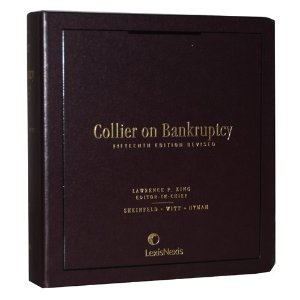 No, not this bankruptcy expert. The other one. Bankruptcy Judge A. Jay Cristol (S.D. Fla.) was vexed by a bankruptcy statute saying that if an individual debtor in a voluntary chapter 7 or 13 case fails to file certain information within 45 days of filing his petition, the case shall be “automatically dismissed” on the 46th day.
Judge Cristol struggled with the statutory riddle of how a case could be automatically dismissed without court action or even a docket entry.
He decided to analyze the question in the style of one of the foremost experts in bankruptcy. Nope, not Collier.
I do not like dismissal automatic,
It seems to me to be traumatic
I do not like it in this case,
I do not like it any place.
As a judge I am most keen
To understand, What does it mean?
How can any person know
what the docket does not show?
What is the clue on the 46th day?
Is the case still here, or gone away?
…
It goes on for several more verses. Rumor has it the Cat in the Hat appeared pro hac vice on behalf of the debtor.
— In re Riddle, 344 B.R. 702, 703 (Bankr. S.D. Fla. 2006). Thanks to Kevin McDowell.
November 18th, 2011 As Paul Scott wrote when he sent in a federal district court opinion involving an excessive force claim against a Georgia police officer, it’s not too hard to figure out which side’s going to win the case when the court’s decision starts out by measuring the plaintiff’s sprained-wrist claim against “the rights of those thousands of American soldiers” who fought and died on D-Day in World War II:
This case demonstrates the proclivity of American citizens today to search for legal causes of action to redress every imaginable wrong. As we commemorate the 60th anniversary of the Allied’s invasion of Normandy during World War II, the Court must decide in this case whether the rights those thousands of American soldiers fought and died for on the beaches of France include legal recourse for a sprained wrist suffered by someone who was arrested for, and subsequently convicted of, the obstruction of a law enforcement officer.
Surprise! The plaintiff lost (the court granted defendant’s motion for summary judgment).
— Mladek v. Day, 320 F. Supp. 2d 1373, 1374 (M.D. Ga. 2004). Thanks to Paul Scott.
November 18th, 2011 Several grounds exist for a judge denying a lawyer’s motion. Now we have a new one: incomprehensibility.
Displeased with a lawyer’s inartful motion-drafting, U.S. Bankruptcy Judge Leif M. Clark (W.D. Tex.) entered an order captioned “Order Denying Motion for Incomprehensibility.” The judge couldn’t figure out what the heck the defendant was requesting in a motion titled, “Defendant’s Motion to Discharge Response to Plaintiff’s Response to Defendant’s Response Opposing Objection to Discharge.”
Judge Clark said: “The court cannot determine the substance, in any, of the Defendant’s legal argument, nor can the court even ascertain the relief that the Defendant is requesting. The Defendant’s motion is accordingly denied for being incomprehensible.”
Perhaps worried that the defendant might miss his point, Judge Clark appended a footnote in which he invoked the following quotation from the Adam Sandler movie, Billy Madison:
Mr. Madison [Sandler’s character], what you’ve just said is one of the most insanely idiotic things I’ve ever heard. At no point in your rambling, incoherent response was there anything that could even be considered a rational thought. Everyone in this room is now dumber for having listened to it. I award you no point, and may God have mercy on your soul.
— Order Denying Motion for Incomprehensibility, In re King, Case No. 05-56485-C, Feb. 21, 2006. Thanks to Sharee Moser.
November 18th, 2011  In an Arizona case, the plaintiff’s lawyer asked the defendant’s lawyer to go to lunch to discuss some pending issues. Defense counsel refused, so the plaintiff did what anyone would do when they get rejected for a lunch date: file a “Motion to Compel Acceptance of Lunch Invitation.” In an Arizona case, the plaintiff’s lawyer asked the defendant’s lawyer to go to lunch to discuss some pending issues. Defense counsel refused, so the plaintiff did what anyone would do when they get rejected for a lunch date: file a “Motion to Compel Acceptance of Lunch Invitation.”
Here’s what Judge Pendelton Gaines, Superior Court of Maricopa County, Arizona, had to say in granting the unusual motion:
Conversation has been called “the socializing instrument par excellence” (Jose Ortega y Gasset, Invertebrate Spain) and “one of the greatest pleasures in life” (Somerset Maugham, The Moon and Sixpence). John Dryden referred to “Sweet discourse, the banquet of the mind” (The Flower and the Leaf).
Plaintiff’s counsel extended a lunch invitation to Defendant’s counsel “to have a discussion regarding discovery and other matters.” Plaintiff’s counsel offered to “pay for lunch.” Defendant’s counsel failed to respond until the motion was filed.
Defendant’s counsel distrusts Plaintiff’s counsel’s motives and fears that Plaintiff’s counsel’s purpose is to persuade Defendant’s counsel of the lack of merit in the defense case. The Court has no doubt of Defendant’s counsel’s ability to withstand Plaintiff’s counsel’s blandishments and to respond sally for sally and barb for barb. Defendant’s counsel now makes what may be an illusory acceptance of Plaintiff’s counsel’s invitation by saying, “We would love to have lunch at Ruth’s Chris with/on . . .” Plaintiff’s counsel.[fn1]
[fn1] Everyone knows that Ruth’s Chris, while open for dinner, is not open for lunch. This is a matter of which the Court may take judicial notice.
Plaintiff’s counsel replies somewhat petulantly, criticizing Defendant’s counsel’s acceptance of the lunch invitation on the grounds that Defendant’s counsel is “now attempting to choose the location” and saying that he “will oblige,” but Defendant’s counsel “will pay for its own meal.”
There are a number of fine restaurants within easy driving distance of both counsel’s offices, e.g., [court lists fine restaurants in the Phoenix area]. Counsel may select their own venue or, if unable to agree, shall select from this list in order.
Each side may be represented by no more than two (2) lawyers of its own choosing, but the principal counsel on the pending motions must personally appear.
The cost of the lunch will be paid as follows: Total cost will be calculated by the amount of the bill including appetizers, salads, entrees and one non-alcoholic beverage per participant.[fn3]
[fn3] Alcoholic beverages may be consumed, but at the personal expense of the consumer.
[McClurg note: Alcohol and feuding lawyers? Bad idea, judge.]
A twenty percent (20%) tip will be added to the bill (which will include tax). Each side will pay its pro rata share according to number of participants. The Court may reapportion the cost on application for good cause or may treat it as a taxable cost under ARS § 12-331(5).
During lunch, counsel will confer regarding [various matters in the case]. [fn4]
[fn4] The Court suggests that serious discussion occur after counsel have eaten. The temperaments of the Court’s children always improved after a meal.
Then the judge gave the parties something to chew on by proceeding in the same order to strike the plaintiff’s proposed amended complaint.
— Rulings on Pending Motions, Physicians Choice of Arizona, Inc. v. Miller, Case No. CV2003-020242 (Ariz. Super. Ct. July 21, 2006). Thanks to Robert Greer.
November 17th, 2011 You don’t have to be a famous judge or blessed with a crazy case to write a Hall of Fame Strange Judicial Opinion. Here we have a low-level New Zealand trial judge trying to educate his appellate court masters about life down in the “real world” trial court-trenches, and a good-humored, self-effacing reply from the appellate court.
In New Zealand, an appeal over a $100 fine for failure to register “a handsome German Shepherd named Ben” apparently irritated the overworked trial judge. In a memorandum, the judge sought to educate the high court about the process for administering justice in his humble court at the bottom of the judicial hierarchy:
Your honour may not be familiar with the manner in which “Minor Offences” are dealt with in this Court. Notices of Prosecution . . . are surreptitiously placed in the Judge’s “In Tray” at frequent and irritating intervals, usually in his or her absence. They come in stacks and bundles … [The trial judge proceeds to describe the variety of matters crying out for his daily attention, including applications for Massage Parlor licenses, truancy notices, underage drinking citations, etc.]
The Judge peruses the mountain of files with great care and then imposes whatever he or she deems appropriate. No hearing is held. No defendant or counsel are present. No submissions are made. No tears are shed. No howls of derision are heard from the gallery. … No anxious mother suckles a fretful child. There are no sideways glances or rolling back of eyes from counsel’s table and certainly no titters are heard to run around the Court.
The Judge sits alone in his chambers and affixes his facsimile signature to the Information Sheet perhaps muttering silent curses to himself as he does so. …
I hope this short memorandum may assist Your Honour in dealing with this appeal.
High Court Justice Grant Hammond (pretty sure this is him–please correct if wrong), chragined, contrasted the trial judge’s mundane existence with the grandeur of his much more regal appellate court, describing how on the day of the hearing over the hundred-dollar appeal, “[i]n full High Court regalia we processed bewigged and black-robed through several levels” of the court building.
It was clear Justice Hammond felt awkward about “tinkering” with the trial judge’s work. He quoted political philosopher Jeremy Bentham’s description of court systems as “a fathomless and boundless chaos, made up of fiction, tautology, technicality and inconsistency, and the administration of it a system of exquisitely contrived chicanery which maximises delay and the denial of justice.”
In the end, Hammond’s court reduced the fine to $20 because the appellant didn’t have the money to pay the higher fine.
— Lowe v. Auckland City Council (High Court, Auckland, AP44/93, 12 May 1993, Hammond, J.). Thanks to Lina Lim.
November 17th, 2011  Changing venue because of a volcano? Sure, it sounds far-fetched, but don’t blow your stack. Changing venue because of a volcano? Sure, it sounds far-fetched, but don’t blow your stack.
It really happened in U.S. v. McDonald, a 1990 federal bribery prosecution in Alaska. Fearful that an unpredictable volcano named Mt. Redoubt would act up and disrupt the trial, Judge James M. Burns granted a motion to change venue for the trial from Fairbanks, Alaska to Tacoma, Washington.
Judge Burns noted he could find “no precedent for changing venue because of an earthquake, hurricane, tornado, flood, volcanic eruption, or other natural disaster,” but said Mt. Redoubt was “entitled to a modicum of judicial respect.”
Judge Burns might be a Jimmy Buffett fan. Usually, when you think of Buffett, you think frozen margaritas, not frozen tundra, but footnote 17 quotes the entire lyrics of the Jimmy Buffett song “Volcano,” observing that Buffett’s lyrics express feelings apropos to the circumstances of the case.
Buffett sang, “I don’t know, I don’t know where I’m a-gonna go when the volcano blow.”
Here they knew. The judge sent everyone to Tacoma.
— United States v. McDonald, 740 F. Supp. 757, 764 nn.17 & 18 (D. Alaska 1990) (Burns, J.). Thanks to Tom Gaylord.
November 17th, 2011  Chief Justice John Marshall, author of Marbury v. Madison. In a 2005 opinion, an Alabama Supreme Court justice (that well-known jurisprudential heavyweight “Tom Parker”), without a trace of irony, called the U.S. Supreme Court “presumptuous” while declaring Marbury v. Madison and its progeny to be “unconstitutional.”
For non-legal types, Marbury is the landmark 1803 Supreme Court case authored by the great Chief Justice John Marshall that established the power of “judicial review”; i.e., that the Supreme Court gets the last word in disputes with the legislative and executive branches of government.
The Alabama case involved a challenge to the constitutionality of certain statutes affecting taxation and the funding of the Birmingham, Alabama civic center authority. Justice Parker included this footnote in his concurrence (italics added.):
21. . . . Despite everything in the text of the Constitution, its history, and the expressed intent of the Framers being completely contrary to the notion of judicial supremacy, the United States Supreme Court has presumptuously arrogated such a position for itself simply by declaring it so.
In Cooper v. Aaron . . . the United States Supreme Court stated: “[Marbury v. Madison, 5 U.S. (1 Cranch) 137, 2 L.Ed. 60 (1803)] declared the basic principle that the federal judiciary is supreme in the exposition of the law of the Constitution and that principle has ever since been respected by this Court and the Country as a permanent and indispensable feature of our constitutional system.” Tellingly, this proclamation of judicial supremacy was made without citation to the Constitution or any other authority. The result of this unconstitutional doctrine of judicial supremacy has been an increasing shift of the balance of powers from the elected executive and legislative branches of the federal government to the unelected judiciary, thereby emboldening federal courts to rule upon constitutional questions based upon foreign law or perceived changes in public opinion instead of the Constitution and its history. . . .
The turning away from our national compact by federal courts now threatens our country with a constitutional crisis.
There’s a constitutional crisis over Marbury?
— Birmingham-Jefferson Civic Ctr. Auth. v. City of Birmingham, 912 So.2d 204, 223 n.21 (Ala. 2005) (Parker, J., concurring). Thanks to Brian Brock.
November 17th, 2011  A single ringing phone sent 46 people to jail. Calling it “an egregious and unprecedented abuse of judicial power,” the New York State Commission on Judicial Conduct ordered the removal of Niagra Falls City Court Judge Robert M. Restaino for an incident in which he freaked out when a cell phone rang in his court. He ended up ordering 46 defendants into police custody when he couldn’t find who had the ringing phone.
It all started when a cell phone went off in the back of a crowded domestic violence courtroom in which 46 defendants were about to be released on their own recognizance. In addition to the defendants, lawyers, court personnel, and others were present—about 70 people total. The judge responded to the offending ring stating:
Now, whoever owns the instrument that is ringing, bring it to me now or everybody could take a week in jail and please don’t tell me I’m the only one that heard that …
Everyone is going to jail; every single person is going to jail in this courtroom unless I get that instrument now … You are all going.
Instead of realizing his mistake and backing off, he proceeded to threaten and badger the poor defendants for two hours to find out whose phone it was. (He didn’t question the lawyers, but, of course, lawyers NEVER have ringing cell phones.)
He berated the group repeatedly about their selfishness:
As I have indicated, this troubles me more than any of you people can understand. Because what I am really, really having a hard time with, that someone in this courtroom who is so self-absorbed, so concerned only for their own well-being, they kind of figure they’re going to be able to establish the bail and it won’t matter so screw all of the rest of you people.
The disciplinary court saw the irony in this diatribe:
It is also ironic that in repeatedly berating the “selfish” and “self-absorbed” individual who “put their interests above everybody else’s” and “[doesn’t] care what happens to anybody,” respondent failed to recognize that he was describing himself.
I feel kind of sorry for Judge Restaino. Apparently, this was the only blemish on his record. Commissioner Raoul Felder dissented as to the sanction of removal because the incident was a “total aberration from his character and demeanor as a judge for eleven years.” Personally, I feel everyone should be entitled to at least one free unwarranted outburst in public life, sort of like the “one free bite” rule pertaining to dogbites. Maybe we could call it the “one free oopsy sound-bite” rule.
Restaino’s initial reaction no doubt would have been forgiven. What did him in was his decision to persist for two grinding, painful hours despite repeated pleas to reconsider.
— Matter of Restaino, Determination of the New York State Commission on Judicial Conduct, Nov. 29, 2007. Thanks to Daniel Green.
November 17th, 2011  It's a dog-eat-divinity student world. A dog-bite case against the dean of the Yale Divinity School by a divinity student gave U.S. District Judge Gerard Goettel a chance to “let the dogs out” in an opinion leaving no possible wordplay on dogs unpenned or unpunned.
The main issue was whether the Yale Divinity School could be held strictly liable under the Connecticut dog-bite statute as a “keeper” of the dean’s offending canine, Rocky, a Labrador, because the dog was permitted to roam free in common areas of the divinity school residences and chapel.
The court held the dean strictly liable, but let the school off because it didn’t “control” the dog’s activities.
Here’s a compendium of Judge Goettel’s fun canine puns:
“In this dog eat dog world, anything is fair game for litigation in the federal courts.”
“As compensation for her injuries, plaintiff seeks to take a bite out of the defendants’ pocketbooks.”
“[The plaintiff], now an Episcopal priest with her own ministry, obviously has a bone to pick as her injuries required substantial medical care, and Rocky is clearly in the doghouse.”
“In dogged pursuit of damages for her trauma, she filed this suit ….”
“Hounded by Connecticut’s [dog-bite statute] ….”
“The [individual defendants] do not deny that they were keeping Rocky who apparently was not licensed to anyone but had a nose for trouble.”
“Plaintiff’s analysis is essentially the tail wagging the dog.”
“Rocky’s having access to common areas, without more evidence indicating an intent to give refuge to the dog or to control the dog’s activities on the part of the School is not a sufficient basis to collar the Divinity School.”
As for Rocky, we don’t know his fate, but the judge did offer a weak defense for the nice face-biting doggie in a footnote:
1. There is no indication that Rocky, like the dog in Oliver Goldsmith’s Elegy on the Death of a Mad Dog, “to gain some private ends, went mad and bit the [wo]man.”
— Post v. Annand, 798 F. Supp. 189, 190–91 & n.1, 192 (S.D.N.Y. 1992). Thanks to Lillian Gustilo.
November 17th, 2011  Geoff Petis sent along this interesting case. I’ll let him tell you about it: Geoff Petis sent along this interesting case. I’ll let him tell you about it:
New York Judge Philip S. Straniere penned an opinion about “shrinkwrap” agreements—contracts that may or may not become valid upon the opening of the package. The agreements go by different names (shrinkwrap, clickwrap, etc.), but the rose still smells as sweet. Evidently, Judge Straniere—who apparently takes his pizza as seriously as his contracts — did not agree:
Before deciding the merits of this case the court must address a troubling issue. The computer industry and other courts have adopted the term “pizza box” to describe the package in which the document containing the terms and conditions of the agreement is shipped. As a matter of law in the State of New York, such a container is not a “pizza box.” No self-respecting New York pizza would be caught soggy in such a box. The container may pass as a “pizza box” in those parts of the world that think food from Domino’s, Little Caesars, Pizza Hut, and Papa John’s is pizza. In this court’s opinion such a classification cannot be recognized east of the Hudson River.
Judge Straniere, having fun with this case, goes on to quote Ira Gershwin, Mandy Patinkin, and Marie Antoinette, among others.
— Licitra v. Gateway, Inc., 734 N.Y.S.2d 389, 391 (N.Y. Civ. Ct. 2001). Thanks to Geoff Petis.
November 17th, 2011  As a kid, I couldn’t wait to get my hands on each new issue of MAD Magazine. Alfred E. Neuman and company had a lot to do with shaping (warping) my sense of humor. One of my favorite features, and the first thing I looked at every month, was the folding back covers, which showed one picture unfolded but ingeniously formed a different, wacky picture when folded. As a kid, I couldn’t wait to get my hands on each new issue of MAD Magazine. Alfred E. Neuman and company had a lot to do with shaping (warping) my sense of humor. One of my favorite features, and the first thing I looked at every month, was the folding back covers, which showed one picture unfolded but ingeniously formed a different, wacky picture when folded.
I’m glad to see that MAD has not been forgotten, even in the hallowed halls of justice, as shown by Cabiness v. Town of James Island, South Carolina Supreme Court case.
The case involved a third failed attempt by the Town of James Island to incorporate itself. The complicated facts aren’t important for our purposes. Suffice it to say that one of the biggest issues was the “contiguity” of certain property.
In considering this issue, the court said the most convincing evidence were the courtroom exhibits of maps, which apparently, resembling MAD fold-in back covers, showed the all-important contiguity of certain properties at issue in the case:
Perhaps the most convincing exhibits illustrated the “but for” concept of contiguity in a “MAD Magazine” style back-page folding manner, where a map of two areas alleged to be contiguous was folded in such a manner as to eliminate the previously-annexed publicly-owned property.
Perhaps worried, as I am, that this great literary device is being forgotten, Justice Hearn, in a footnote, directed readers “not familiar with this reference” to a New York Times interractive compilation of MAD Magazine fold-in covers.
— Cabiness v. Town of James Island, Opinion No. 26989, S.C. Sup. Ct, June 20, 2011. Thanks to Jim Bogle.
November 16th, 2011  Won a defamation judgment for being called ugly. A 1996 English libel case reminds me of the old Rodney Dangerfield joke: “My psychiatrist told me I’m going crazy. I told him, ‘Doc, if you don’t mind I’d like a second opinion.’ He said, ‘Alright, you’re ugly too.’”
In Berkoff v. Burchill, an English court of appeals held that describing a person as ugly can constitute actionable defamation. No wonder people are flocking to England to take advantage of the country’s plaintiff-friendly libel laws. It’s highly doubtful calling someone ugly would be actionable defamation under U.S. law.
(By the way, this practice, known as “libel tourism,” resulted in enactment of a 2010 U.S. law that prohibits U.S. courts from enforcing foreign defamation judgments if they were rendered under legal protections less protective of speech than U.S. standards. Berkoff’s suit, against an English newspaper, was not a case of libel tourism.)
The English case arose from a Sunday Times article in which defendant Burchill reviewed the movie The Age of Innocence. Burchill described the film director, Steven Berkoff, as “hideous-looking.”
Nine months later, Burchill once again called Berkoff’s pulchritude into question, this time in a review of the movie Frankenstein. Describing “the Creature,” Burchill said: “It’s a very new look for the Creature—no bolts in the neck or flat-tap hairdo—and I think it works; it’s a lot like Stephen Berkoff, only marginally better-looking.”
Berkoff sued for defamation. The issue was whether calling someone hideous-looking is a defamatory statement capable of injuring a person’s reputation. The appellate court answered affirmatively.
The court said a jury could “conclude that in the context the remarks about Mr. Berkoff gave the impression that he was not merely physically unattractive but actually repulsive” and that this could injure Berkoff’s ability to make a living by “lowering his standing in the estimation of the public … [by] making him an object of ridicule.”
Is truth a defense? He looks okay in this picture (photo by Getty, borrowed from The Telegraph).
— Berkoff v. Burchill, [1996] 4 All E.R. 1008 (Ct. App. 1996). Thanks to Heiner O. Mommsen.
November 16th, 2011 U.S. District Judge Richard P. Matsch awarded attorneys’ fees and costs in a patent infringement case against a pair of high-echelon lawyers and their clients for trial misconduct “reflecting an attitude of ‘what can I get away with?’” and a “winning is all that is important approach” to litigation. A media report estimated the fees and costs could run several million dollars. Judge Matsch had previously thrown out the plaintiffs’ $51 million verdict in the case based on the same conduct.
The case raises interesting questions about the extent of a judge’s obligation to control attorney conduct it finds objectionable during the course of a trial.
The facts are complicated and readers interested in the full story should consult the judge’s order. But basically, the judge was ticked off that the plaintiffs’ lawyers pursued a trial strategy that the judge considered legally untenable, including attempting to establish a patent infringement by showing substantial similarity between the plaintiffs’ product and the defendants’ product.
Judge Matsch opined (paragraph breaks inserted):
Upon reflection, this Court finds and concludes that the rulings on the claims construction issues adjudicated the fairly debatable issues in this case and that the manner in which plaintiffs’ counsel continued the prosecution of the claims through trial was in disregard of their obligations as officers of the court.
The fairness of the adversary system of adjudication depends upon the assumption that trial lawyers will temper zealous advocacy of their client’s cause with an objective assessment of its merit and be candid in presenting it to the court and to opposing counsel.
When that assumption has been contradicted by a trial record of conduct reflecting a winning is all that is important approach to the trial process, the court has a duty to redress this resulting harm to the opposing party.
Judge Matsch essentially took the position that the plaintiffs’ claims were frivolous. However, he had previously denied the defendants’ motion for summary judgment and the jury returned a verdict in the plaintiffs’ favor. Defendants argued that these events showed the claims had merit, but the judge disagreed.
Perhaps most interesting was the defendants’ argument that if the judge found the trial conduct to be objectionable, he should have done something about it during the trial. In the judge’s words, the plaintiff’s lawyers “argue that they should not be held responsible for what they were able to get away with during the trial presentation.”
The argument does carry some persuasive force, particularly since the judge apparently denied objections by defendants’ counsel to some of the misconduct.
But Judge Matsch took the position that counsel were already aware of the court’s admonitions regarding the trial strategy, so he didn’t have any obligation to restrain it during the trial.
— Medtronic Navigation, Inc. v. Brainlab Medizinische Computersystems GMBH, No. 98-cv-01072-RPM, 2008 WL 410413 (D. Colo. 2008).
November 16th, 2011  Dr. Seuss - Most emulated poet of the American judiciary. For reasons unexplained, a pro se inmate litigant apparently included a hard-boiled egg as part of his request for a preliminary injunction.
U.S. Magistrate James Muirhead ordered the egg destroyed. He did it in the style of Dr. Seuss, who may be on his way to being named poet laureate for the federal judiciary (see “Dr. Seuss on Bankruptcy Law” in which a federal bankruptcy judge also engages in Seussian rhyming):
No fan I am
Of the egg at hand.
Just like no ham
On the kosher plan.
This egg will rot
I kid you not.
And stink it can
This egg at hand.
There will be no eggs at court
To prove a clog in your aort.
There will be no eggs accepted.
Objections all will be rejected.
From this day forth
This court will ban
hard-boiled eggs of any brand.
And if you should not understand
The meaning of the ban at hand
Then you should contact either Dan,
the Deputy Clerk, or my clerk Jan.
I do not like eggs in the file.
I do not like them in any style.
I will not take them fried or boiled.
I will not take them poached or broiled.
I will not take them soft or scrambled
Despite an argument well-rambled.
No fan I am
Of the egg at hand.
Destroy that egg!
Today! Today!
Today I say! Without delay!
SO ORDERED (with apologies to Dr. Seuss).
Cute, although the “court”-“aort” rhyme seems a bit of a stretch.
— Wolff v. New Hampshire Dep’t of Corrections, Civil No. 06-cv-321-PB, 2007 WL 2788610 (D.N.H. Sept. 18, 2007). Thanks to everyone who sent this in.
November 16th, 2011  A washing machine laughing hysterically at Judge Brown's opinion. In 1973, the Fifth Circuit struck down a Dade County detergent labeling ordinance, finding that the ordinance, intended to reduce pollution from ingredients found in household detergents, was preempted by the Federal Hazardous Substance Labeling Act.
Chief Judge John Brown concurred, managing to work in the brand names of just about every detergent product available, becoming a humorous opinion-writing path-breaker.
Let us know if we’re wrong, but Judge Brown’s opinion–published in 1973–may be the first overtly intentional effort by a federal court of appeals judge to write a clever and funny opinion. It’s a lot easier for a state judge to get away with being amusing than a federal judge, certainly a court of appeals judge.
So, while the opinion isn’t particularly hilarious, Judge Brown’s boldness and innovation gets this case into the Strange Judicial Opinions Hall of Fame.
Here’s a taste of his detergent-filled ruling (italics inserted):
As Proctor of this dispute … the Court holds that Congress has specifically preempted regulatory action by Dade County. Clearly, the decision represents a Gamble since we risk a Cascade of criticism from an increasing Tide of ecology-minded citizens. Yet, a contrary decision would most likely have precipitated a Niagara of complaints from an industry which justifiably seeks uniformity in the laws with which it must comply. Inspired by the legendary valor of Ajax, who withstood Hector’s lance, we have Boldly chosen the course of uniformity in reversing the lower Court’s decision upholding Dade County’s local labeling laws. And, having done so, we are Cheered by the thought that striking down the regulation by the local jurisdiction does not create a void which is detrimental to consumers ….
…
And so we hold. This is all that need be said. It is as plain as Mr. Clean the proper Action is that the Dade County Ordinance must be superseded, as All comes out in the wash.
— Chem. Specialties Mfrs. Ass’n v. Clark, 482 F.2d 325, 328–29 (5th Cir. 1973) (Brown, C.J., concurring). Thanks to Craig A. Wilson.
November 15th, 2011 Most “funny” judicial opinions aren’t ha-ha funny. They’re merely amusing or interesting. But Lawhaha.com’s scientific focus group tests showed that the colloquy below between the chastised lawyer and the judge makes people laugh out loud. For that, it’s in the SJO Hall of Fame.
In Ahmed v. Reiss Steamship Co., a federal judge held the plaintiff’s lawyer in contempt of court for failure to appear for trial. Judge Ann Aldrich (N.D. Ohio) was disturbed that the lawyer had “told two different federal district court judges that he was appearing before the other,” sort of the legal version of the old childhood stratagem for a night out in which each kid tells his parents he’s spending the night at the other’s house.
Things turned bizarre when the lawyer finally decided to explain his absence, in a way the court found to be “lacking taste and any respect for courtroom decorum”:
MR. JAQUES: I wasn’t here because I couldn’t be here. I was not here, Judge, because I had the screaming itches in the crotch. I was so badly in need of medical care that I had been in communication with my physician a lot. Judge, I wasn’t here because I would have been scratching my testicles constantly if I had been here. Judge–
THE COURT: Mr. Jaques–
MR. JAQUES: Judge, do you understand that?
THE COURT: You don’t have to be so graphic. You could have simply let the Court know that for medical reasons you were not going to be here and you could have–
MR. JAQUES: Judge, it was not a medical reason that I would have been able to frame earlier. That’s one thing.
THE COURT: It doesn’t seem awfully difficult to me. Is there anything else?
The lawyer submitted a letter from his doctor to bolster his claim:
It has been recommendation (sic) … that because of the nature, location and symptoms of this ailment he should avoid to be in public places and mainly court appearances all of which could jeopardize his professional appearance …
While the judge did not “question the intensity of [the lawyer’s] discomfort,” she held him in contempt for not notifying the court of the problem and for representing that he couldn’t attend trial because he was appearing before another judge.
— Ahmed v. Reiss S.S. Co., 580 F. Supp. 737, 742 (N.D. Ohio 1984). Thanks to Michael Slodov.
November 14th, 2011 U.S. Ninth Court of Appeals Judge Alex Kozinski is well known for sprinkling pop culture references throughout his opinions, particularly in the famous Syufy opinion, which wove in the titles of more than 200 movies. (See “Coming Soon to a Footnote Near You”)
A less noticed, but just as fun pop culture-laden opinion was his dissent to an order denying rehearing en banc in White v. Samsung Electronics America, Inc., a case where the Ninth Circuit upheld a “right of publicity” claim by former game show hostess Vanna White against Samsung for using a robot resembling her game show persona in a television commercial.
Complaining that, “[u]nder the majority’s opinion, it’s now a tort for advertisers to remind the public of a celebrity,” Kozinski excoriated the court for over-extending intellectual property rights in an opinion jammed full of pop culture references.
(That’s one thing to love about Kozinski’s writing: he can be pithy, insightful, and amusing in less than twenty words.)
Pop culture ran amuck in a single footnote (footnote 6) that includes references to (in order): grunge rocker Tad Doyle, the Hell’s Angels, Marvel Comics, Breakfast at Tiffany’s, Breakfast of Champions, The Electric Kool-Aid Acid Test, Looking for Mr. Goodbar, The Coca-Cola Kid, The Kentucky Fried Movie, Harley Davidson and the Marlboro Man, The Wonder Years, Wonder Bread, Joseph and the Amazing Technicolor Dream Coat, Janis Joplin, Paul Simon, Leonard Cohen, Bruce Springsteen, Prince, dada, Monty Python, Roy Clark, Mel Tillis, the Talking Heads, Andy Warhol, REO Speedwagon, 38 Special, Jello Biafra and the Dead Kennedys.
— White v. Samsung Elec. Am., Inc., 989 F.2d 1512, 1512 n.6, 1514 (9th Cir. 1993) (Kozinski, J., dissenting from order denying rehearing en banc). Thanks to Katherine Shipman.
November 14th, 2011 Where do scandals go when they die? They travel upwards, of course … to a U.S. Court of Appeals. At least if they’re scandals involving the saga of President Bill Clinton’s sexcapades.
U.S. Ninth Circuit Court of Appeals Judge Alex Kozinski faced an appeal in a defamation suit filed by former lounge-singer Gennifer Flowers against Hillary Rodham Clinton, James Carville and George Stephanopoulos. With that cast of characters (including Judge K), you know it’s going to be an interesting opinion.
This is an opinion to be admired as much for its lucidity as its colorful take on the events. Here’s a taste from the opening paragraphs (some paragraph breaks inserted):
Long after the public spotlight has moved on in search of fresh intrigue, the lawyers remain. And so we find ourselves adjudicating a decade-old dispute between Gennifer Flowers and what she affectionately refers to as the “Clinton smear machine”: James Carville, George Stephanopoulos and Hillary Clinton. Flowers charges that said machine destroyed her reputation by painting her as a fraud and a liar after she dis-closed her affair with Bill Clinton. We decide whether Flowers’s claims are timely and, if so, whether they survive a motion to dismiss.
Background and Proceedings Below
In the heat of the 1992 presidential primary campaign, the Star—that ubiquitous supermarket source for celebrity scandal—ran a story claiming that Bill Clinton had carried on an affair with an Arkansas woman named Gennifer Flowers. Clinton and Flowers both denied it at first, but a few days later Flowers (doubtless realizing that honesty is the best policy after all) sold her story to the Star.
Clinton continued vigorously denying the allegations and appeared on 60 Minutes with his wife to say they weren’t true. The following day, Flowers responded by holding a press conference where she played recordings of intimate phone calls from Clinton that she’d secretly taped. Later news reports suggested that the tapes may have been selectively edited.
According to Flowers, Hillary Clinton and her two “henchmen,” George Stephanopoulos and James Carville, conspired to protect Bill Clinton’s presidential candidacy from Flowers’s damaging revelations. Flowers claims that during the 1992 campaign and in later political memoirs and interviews, Carville and Stephanopoulos defamed her and painted her in a false light by claiming that she had lied in her story to the Star and “doctored” the tape-recorded phone calls.
Hillary Clinton, the alleged mastermind of the conspiracy, not only orchestrated the defamatory exploits, but also exposed private information about Flowers and organized break-ins of her residence. Flowers claims that, as a result of all this schemery, her reputation has wilted and her blossoming career as a Las Vegas lounge singer has been nipped in the bud.
It’s like the beginning of an intriguing political spy novel you want to keep reading. In the not-as-exciting climax, the Ninth Circuit panel felt compelled under the law to reverse the district court, which had dismissed all of Flowers’ claims.
Meanwhile, Kozinski gave us another Syufy-type mystery (see “Coming Soon to a Footnote Near You!”) by burying an amusing reference in one of the citations. I won’t spoil the mystery. See if you can find it.
— Flowers v. Carville, 310 F.3d 1118, 1122 (9th Cir. 2002) (Kozinski, J.). Thanks to Elise Hendrick .
November 14th, 2011 Seems as though colorful California Court of Appeals Judge Robert Gardner, a Lawhaha.com Hall-of-Famer, had to deal with more than his fair share of bawdy subjects. But to resolve them, he consistently applied his excellent writing with good old common sense, leaving memorable opinions for the rest of us to enjoy.
In People v. Sarong Gals, the owners of “Sarong Gals,” a bar featuring live nude dancers, appealed an injunction entered against them under California’s Red Light Abatement law, a 1913 statute declaring to be a public nuisance any place used for the purpose of lewdness, assignation or prostitution.
Defendant’s primary argument was that the Red Light Abatement statute can not be lawfully applied to “entertainment.”
Judge Gardner disagreed. He began his opinion with a long list of what he called “hilarious highlights” of the “entertainment” observed at Sarong Gals through police surveillance. The judge’s descriptions of these highlights are a bit too graphic for Lawhaha.com, but one of them had something to do with a customer’s sunglasses. Use your imagination or go look up the opinion for details.
With regard to defendant’s argument that the statute could not be constitutionally applied to restrict “entertainment,” Judge Gardner opined that just about any activity, including people getting devoured by lions, appeals to the “entertainment” wishes of some audience somewhere:
Lewdness is lewdness and covering it with a patina of “free expression” is a fiction which the law will not tolerate. Masturbating on stage, causing customers to openly masturbate, allowing patrons to peer into females’ innards, simulating sexual intercourse and in other ways titillating the customers sexually amounts to lewdness—even though it may be entertaining.
…
Presumably, the Romans of the First Century derived entertainment from witnessing Christians being devoured by lions. Given the right audience, the spectacle of a man committing an act of sodomy on another man would provide entertainment value. However, neither this spectacle nor the activities described in the instant case are invested with constitutionally protected values merely because they entertain viewers.
— People v. Sarong Gals, 27 Cal. App. 3d 46, 50–51 (1972). (Thanks to Frank Zotter.)
November 14th, 2011  Lawhaha.com Hall of Fame Judge Robert Gardner U.S. Court of Appeals Judge Alex Kozinski, a Lawhaha.com Strange Judicial Opinions Hall-of-Famer, took time to send in his praise for another judge who dared to be different: California Court of Appeals Judge Robert Gardner.
Judge K said Gardner is one of his heroes, and included his favorite Gardner quote, from People v. Benton. Although it involves profanity, as Judge Kozinski said, it’s for a good cause:
Mrs. Barnhill and her daughter, Sainna Okeson, were seated at the kitchen table in Mrs. Barnhill’s apartment on Keel Street in Anaheim on the evening of August 2, 1976. Around midnight, a … man entered. With pistol in hand, he said, “Don’t say a word, don’t say a mother-f****** word.” [Fn.1]
[Fn.1] It is a sad commentary on contemporary culture to compare “Don’t say a word, don’t say a mother-f****** word” with “Stand and deliver,” the famous salutation of Dick Turpin and other early English highwaymen. It is true that both salutations lead to robbery. However, there is a certain rich style to “Stand and deliver.” On the other hand, “Don’t say a word, don’t say a mother-f****** word” conveys only dismal vulgarity.
The speech of the contemporary criminal culture has always been a rich source of color and vitality to any language. Yet, when one compares the “bawds,” “strumpets,” “trulls,” “cut-purses,” “knaves,” and “rascals” of Fielding and Smollett to the “hookers,” “pimps,” “Narcs,” “junkies,” and “snitches” of today’s criminal argot, one wonders just which direction we are traveling civilization’s ladder. “Hooker,” at least, has traceable historical antecedents—although the descendants of General “Fighting Joe” Hooker would probably prefer that their famous ancestor be remembered for something other than his army’s camp followers—such as the slaughter at Chancellorsville.
Judge Gardner used the full term without the asterisks, making it viscerally funnier, but Lawhaha.com tries to stay family friendly.
— People v. Benton, 77 Cal. App. 3d 322, 324 & n.1 (1978).
November 14th, 2011 As a member of a Memphis rock cover band that plays several Beatles songs and a huge Beatles fan, I have a special appreciation for Montana Judge Gregory R. Todd’s order in a 2007 criminal case.
After the defendant pleaded guilty to burglary, he was asked to fill out portions of a pre-sentence investigation report. In response to the question, “Give your recommendation as to what you think the Court should do in this case,” the defendant replied, “Like the Beetles say, ‘Let It Be.’”
Judge Todd took issue with both the defendant’s apparent plea for leniency and also his misspelling of the name of the Beatles, for whom Judge Todd obviously has great fondness. The judge penned a caustic sentencing memorandum, written to the defendant, that managed to work in the titles of thirty-nine Beatles songs:
Act Naturally
Baby It’s You
Bad Boy
Carry That Weight
Come Together
Day in the Life
Do You Want to Know a Secret?
Fixing a Hole
Fool on the Hill
Get Back
Hard Day’s Night
Hello Goodbye
Help
Here, There and Everywhere
Hey Jude
Honey Don’t
I Don’t Want to Spoil the Party
I Feel Fine
I Should Have Known Better
I, Me, Mine
I’ll Cry Instead
I’ll Get You
I’m a Loser
Let It Be
Long and Winding Road
Magical Mystery Tour
Misery
Mr. Moonlight
Nowhere Man
Run for Your Life
Something
Strawberry Fields Forever
The Word
Think for Yourself
Ticket to Ride
Wait
We Can Work It Out
When I’m 64
You Really Got a Hold on Me
Here’s a taste from the last paragraph of the memorandum:
Later when you thought about what you did, you may have said I’ll Cry Instead. Now you’re saying Let It Be instead of I’m A Loser. As a result of your Hard Day’s Night, you are looking at a Ticket To Ride that Long and Winding Road to Deer Lodge. Hopefully you can say both now and When I’m 64 that I Should Have Known Better.
Judge, what can I say, but Thank You Girl, er rather, Your Honor. Til There Was You, most judicial opinions were just so Yesterday. I hope we have a chance to Come Together for lunch or Something. Why? Well, just Because.
— State v. McCormack, No. DC06-0323, Montana Thirteenth Judicial District, Yellowstone County, Feb. 26, 2007. Thanks to Pat Smith.
November 14th, 2011 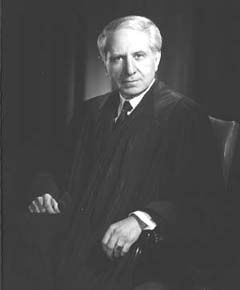 Justice Michael Musmanno, a Lawhaha.com Hall of Famer Any fan of judicial opinion writing needs to study the opinions of the Honorable Michael A. Musmanno (1897-1968). He led a remarkable life. Before joining the Pennsylvania Supreme Court, Justice Musmanno enjoyed an illustrious career as a lawyer, U.S. Congressman and author. Highlights of his career include serving as the presiding judge at the Nuremberg war crime trials and as a defense lawyer in the Sacco & Vanzetti trial.
His opinions are marvelous concoctions of deep-hearted passion and brutal common sense, delivered in highly literate and often hilarious prose.
U.S. Ninth Circuit Court of Appeals Judge Alex Kozinski, another notable opinion-writer, reported to Lawhaha.com that Musmanno has been his model since law school and that he consciously tries to emulate Musmanno’s writing. He laments that today’s law school graduates have never heard of Musmanno and return only blank stares when his name is mentioned.
Here are a couple samples of Musmanno’s writing sent by Chris Nace:
In Bosley v. Andrews, a woman sued a neighbor whose cows trespassed on her farmland to eat her crops. After being chased away in the morning, the “bovine buccaneers,” as Musmanno called them, returned for lunch. “This time they came, eight of them, with reinforcements. They brought along their boy friend, a 1500-pound Hereford white-faced bull.” The bull took chase after the plaintiff, causing her to suffer a heart attack.
A majority of the Pennsylvania Supreme Court rejected the woman’s claim for negligent infliction of emotional distress damages, following the traditional rule that such a claim cannot be maintained in the absence of a “physical impact” with the plaintiff (the bull never actually touched the plaintiff).
In dissent, Musmanno skewered the majority for what he saw as an unjust result, closing his opinion by stating that the majority’s approach “is unsupportable in law, logic, and elementary justice – and I shall continue to dissent from it until the cows come home.”
In Pennsylvania Society for the Prevention of Cruelty to Animals v. Bravo Enterprises, Inc., the plaintiff sought to enjoin a bullfight, but the majority held that the organization lacked standing. Musmanno began his impassioned dissent:
If there is one commodity of which there is no need for a further supply, it is violence. If there is one school that the world can afford to miss, it is one for the tutoring of methods of violence, brutality and cruelty. … [W]e can well do without a bullfight which is nothing less than an open air lyceum in the art of torturing helpless animals.
Add Justice Musmanno to your list of “four dead people with whom you would most like to have dinner.”
— Bosley v. Andrews, 142 A. 2d 263, 267–68, 280 (Pa. 1958) (Musmanno, J., dissenting); Pa. Soc’y for the Prevention of Cruelty to Animals v. Bravo Enterprises, Inc., 237 A. 2d 342 (Pa. 1968) (Musmanno, J., dissenting). Thanks to Chris Nace.
|
Funny Law School Stories
For all its terror and tedium, law school can be a hilarious place. Everyone has a funny law school story. What’s your story?
|
Product Warning Labels
A variety of warning labels, some good, some silly and some just really odd. If you come encounter a funny or interesting product warning label, please send it along.
|
Tortland

Tortland collects interesting tort cases, warning labels, and photos of potential torts. Raise risk awareness. Play "Spot the Tort." |
Weird Patents
Think it’s really hard to get a patent? Think again.
|
Legal Oddities
From the simply curious to the downright bizarre, a collection of amusing law-related artifacts.
|
Spot the Tort
Have fun and make the world a safer place. Send in pictures of dangerous conditions you stumble upon (figuratively only, we hope) out there in Tortland.
|
Legal Education
Collecting any and all amusing tidbits related to legal education.
|
Harmless Error
McClurg's twisted legal humor column ran for more than four years
in the American Bar Association Journal.
|
|
|
 U.S. District Judge Steven “Not So” Merryday denied an Assistant U.S. Attorney’s (AUSA) motion to delay a trial because a witness employed by the Bureau of Alcohol, Tobacco, Firearms and Explosives (ATF) had prepaid for a trip to view the August 21, 2017 solar eclipse in totality.
U.S. District Judge Steven “Not So” Merryday denied an Assistant U.S. Attorney’s (AUSA) motion to delay a trial because a witness employed by the Bureau of Alcohol, Tobacco, Firearms and Explosives (ATF) had prepaid for a trip to view the August 21, 2017 solar eclipse in totality. Can’t take issue with the result, but instead of just saying that, the magistrate–perhaps seeking his own two minutes and forty-two seconds of fame–penned a silly too-cute-for-words order built around Carly Simon’s 1972 hit “You’re So Vain.”
Can’t take issue with the result, but instead of just saying that, the magistrate–perhaps seeking his own two minutes and forty-two seconds of fame–penned a silly too-cute-for-words order built around Carly Simon’s 1972 hit “You’re So Vain.”





























































